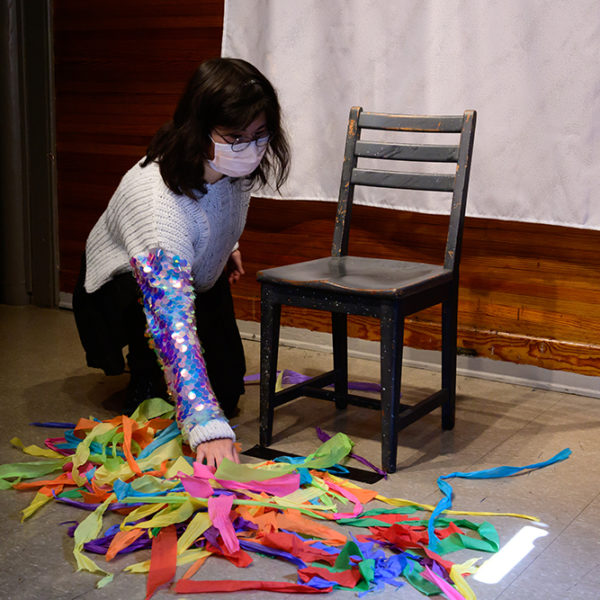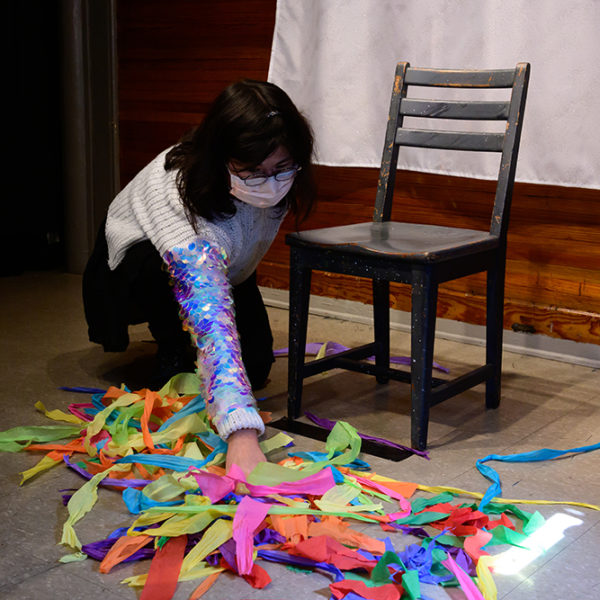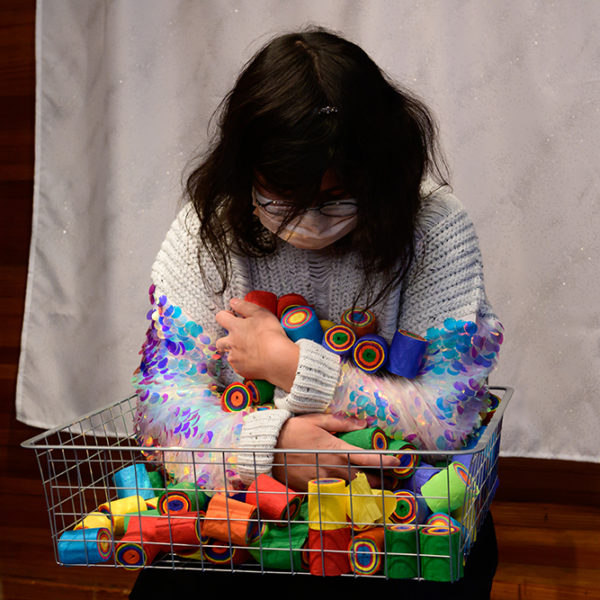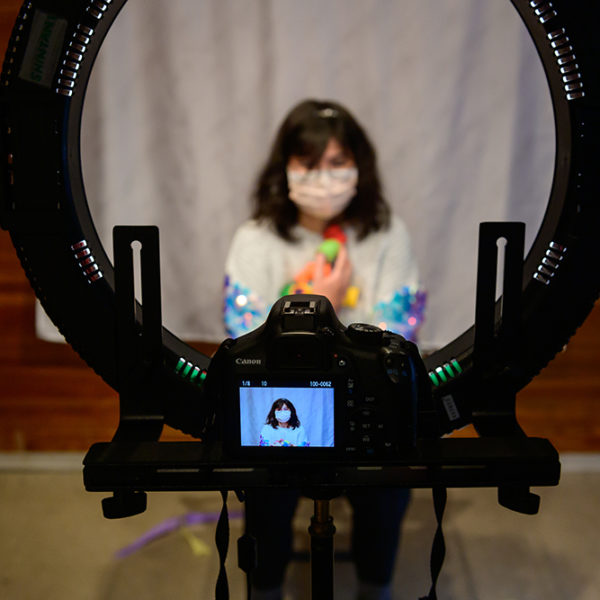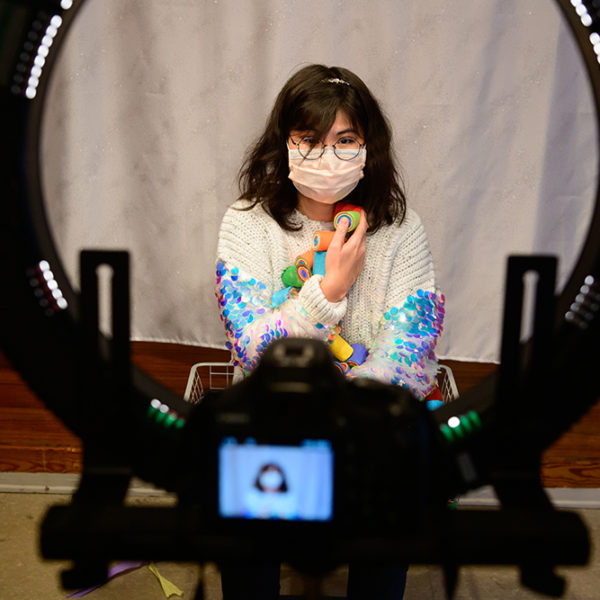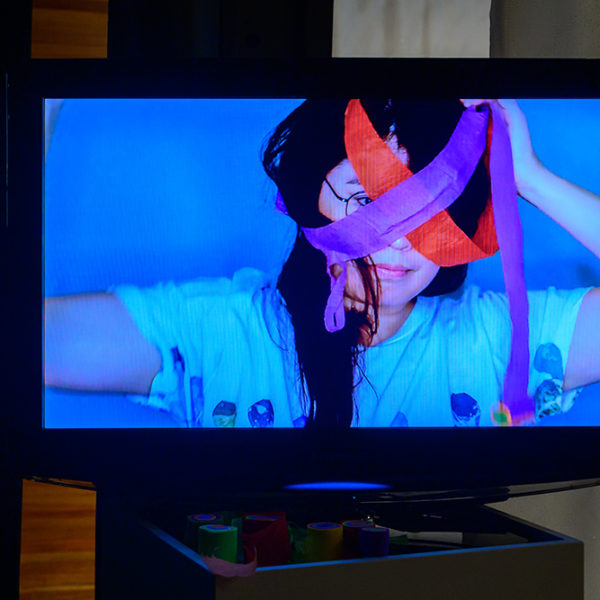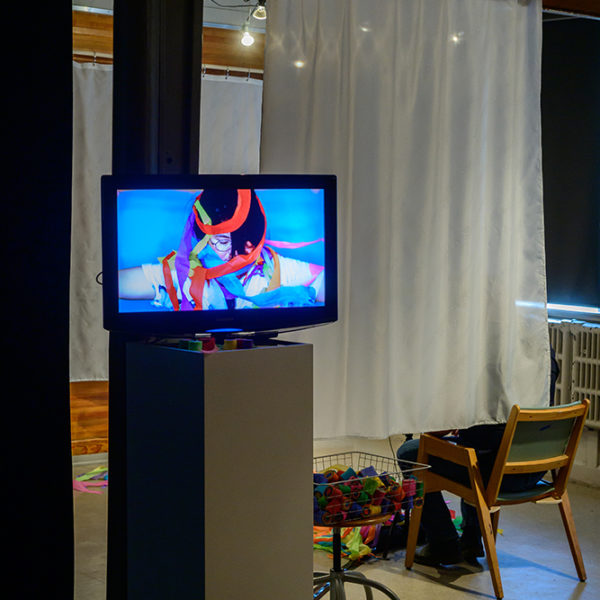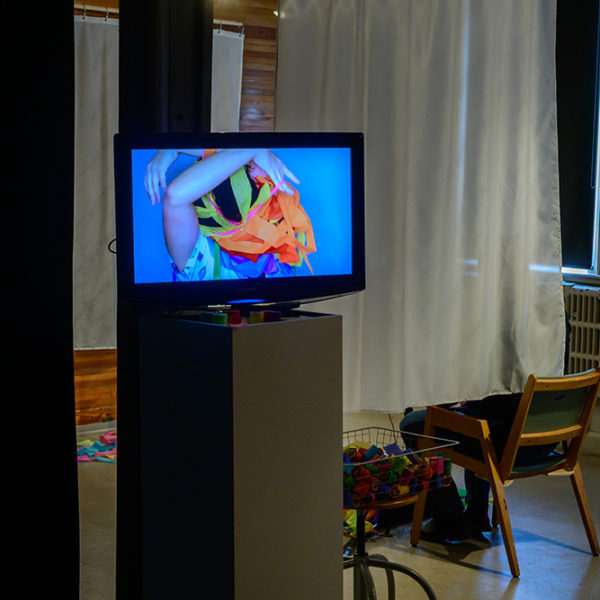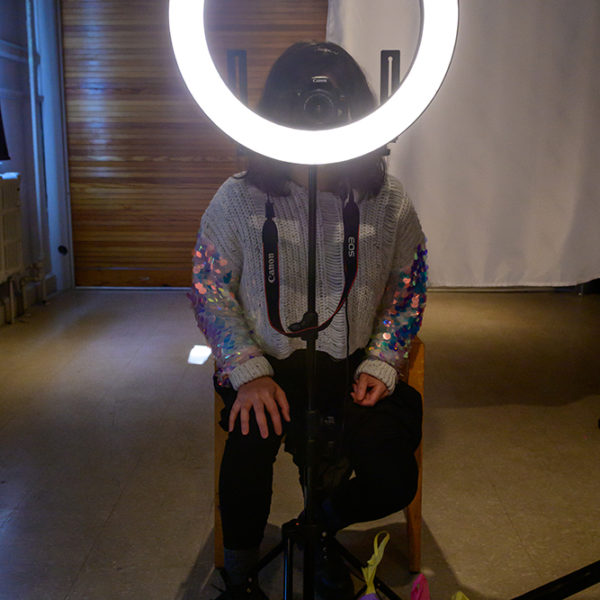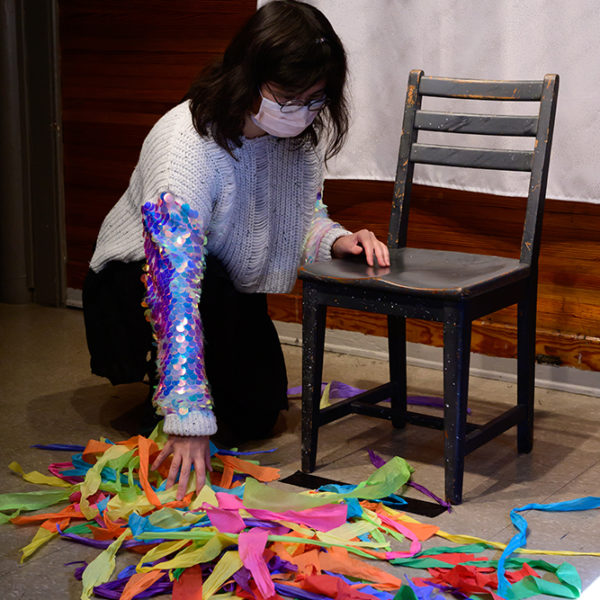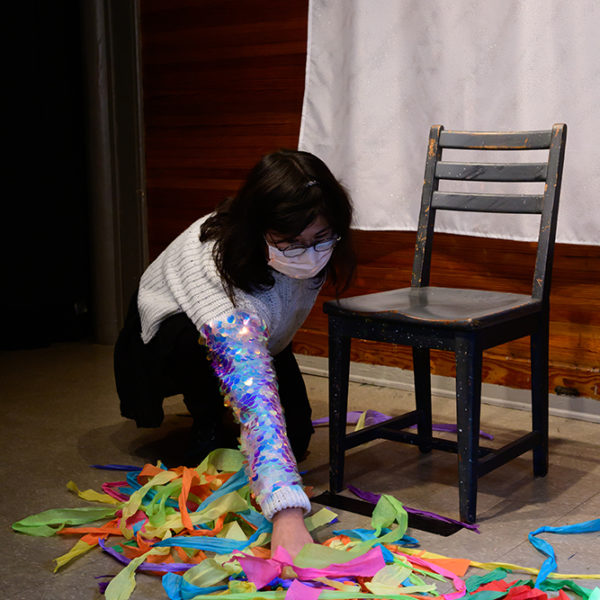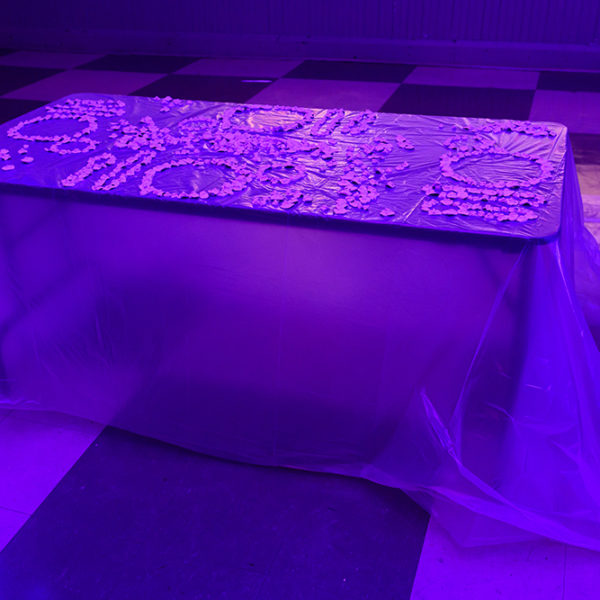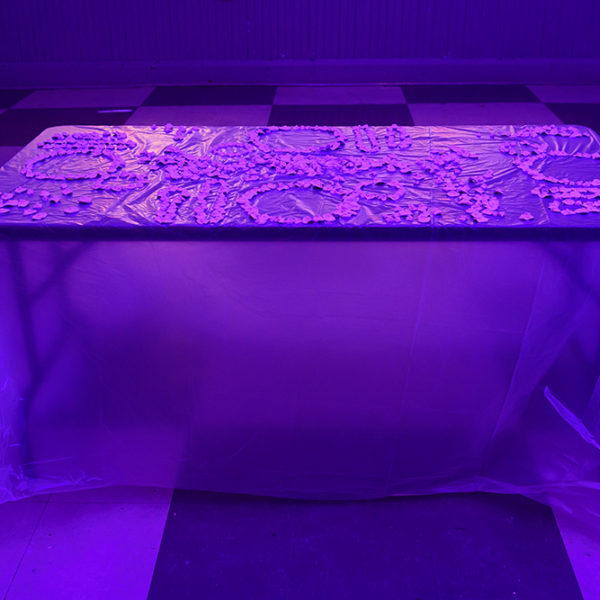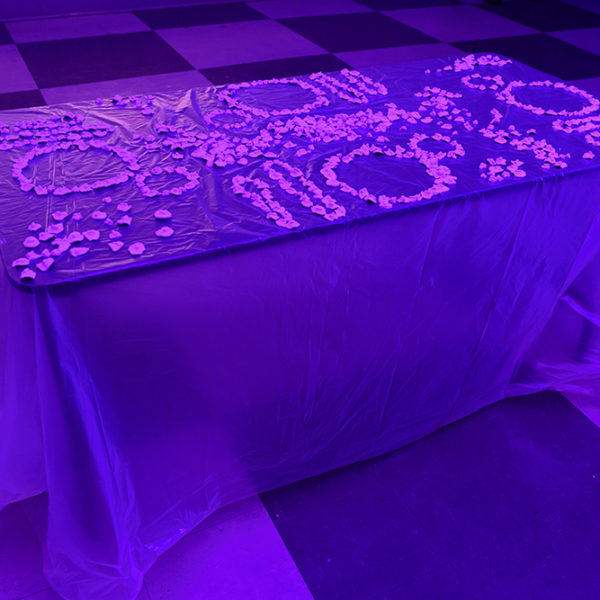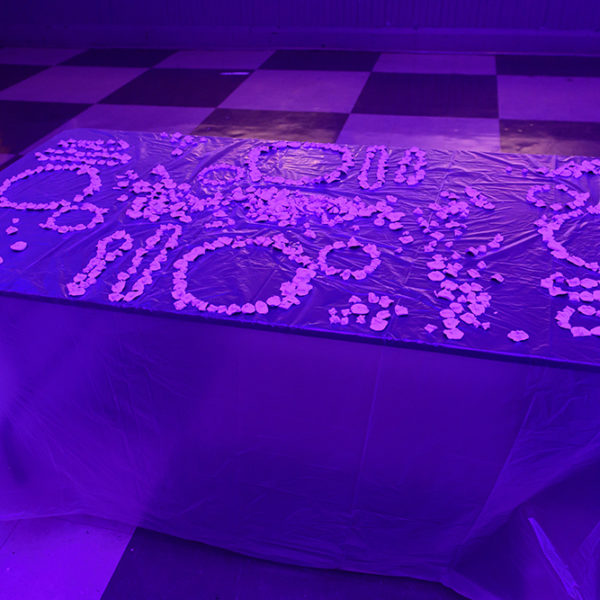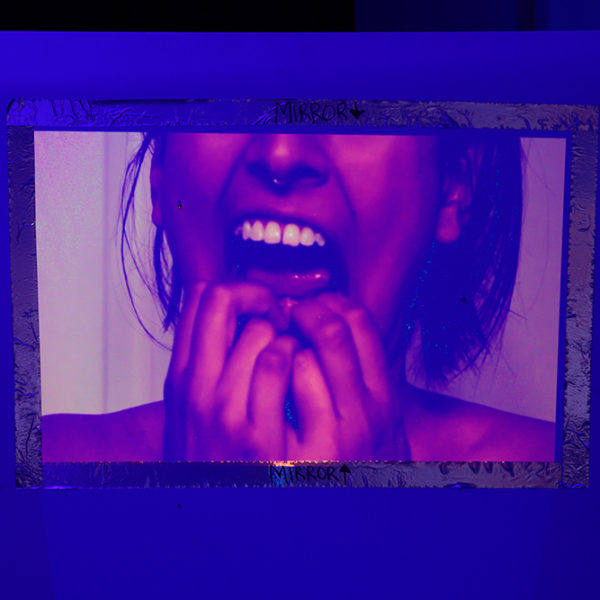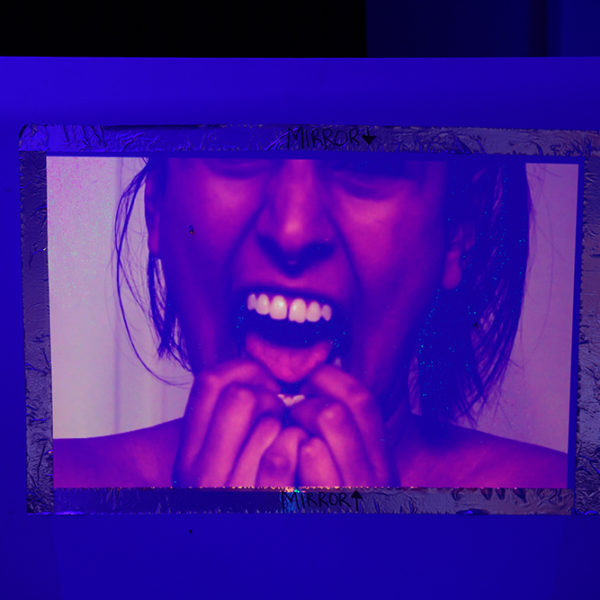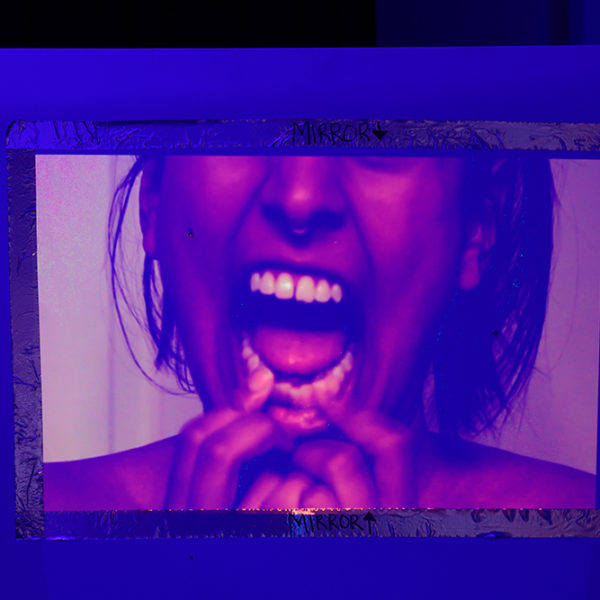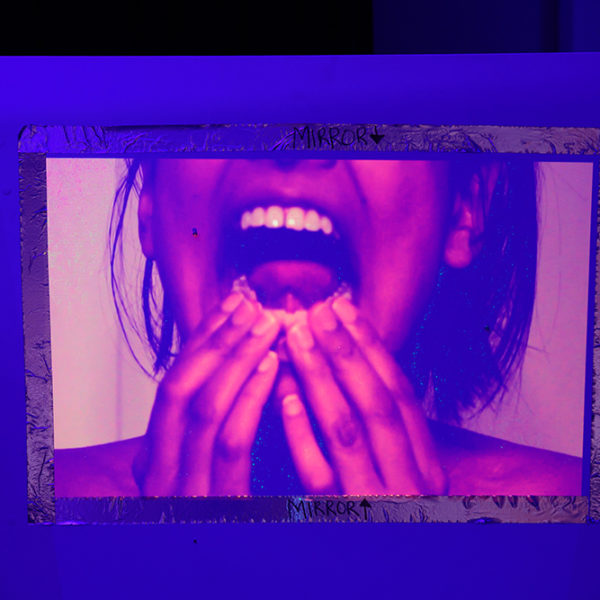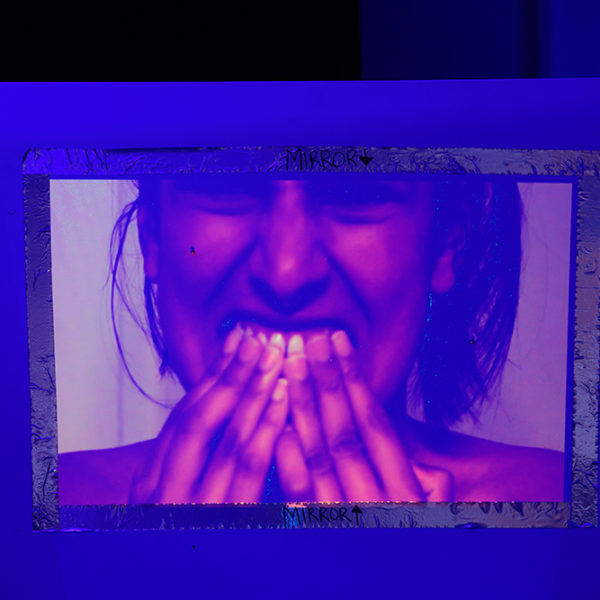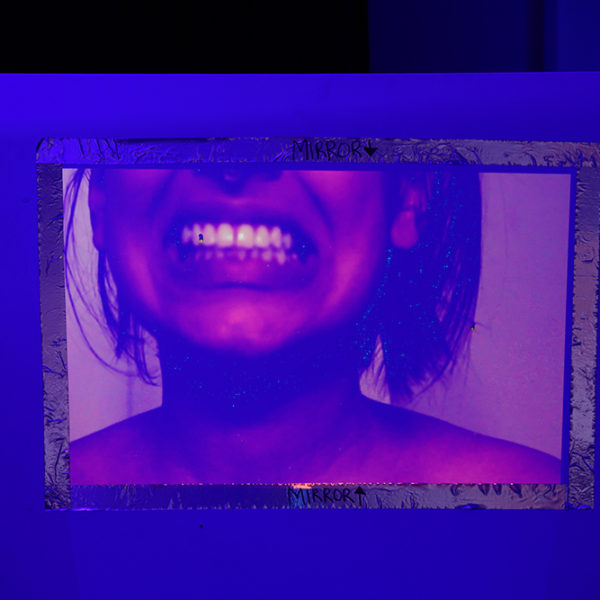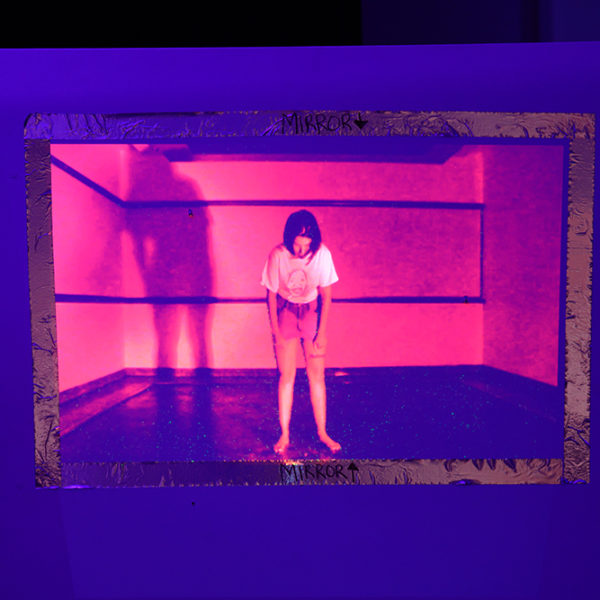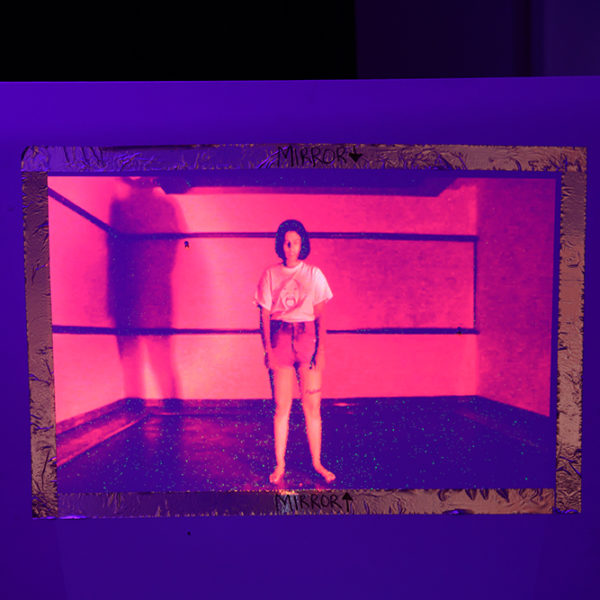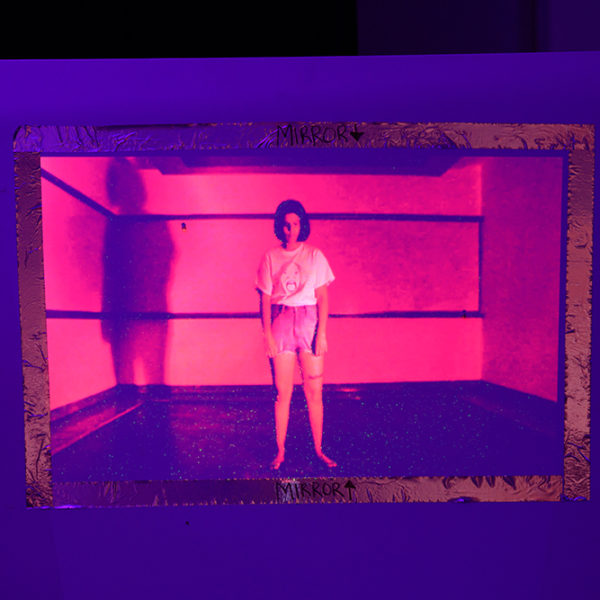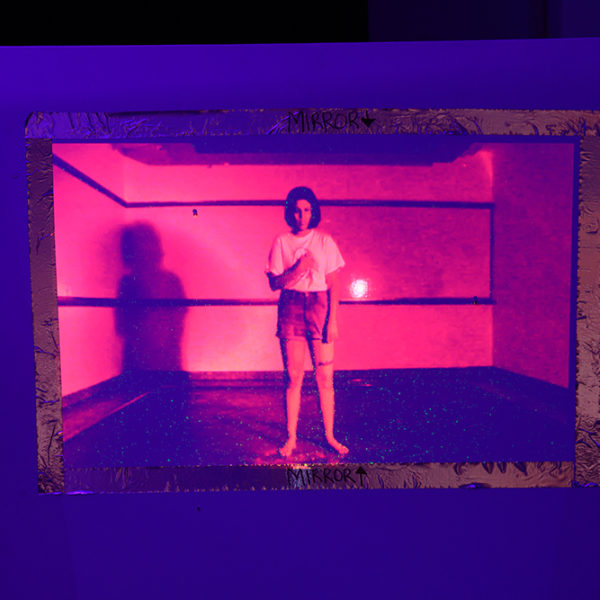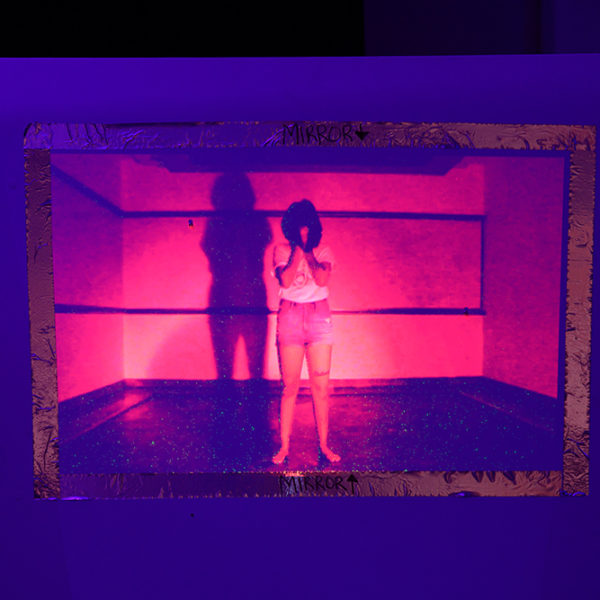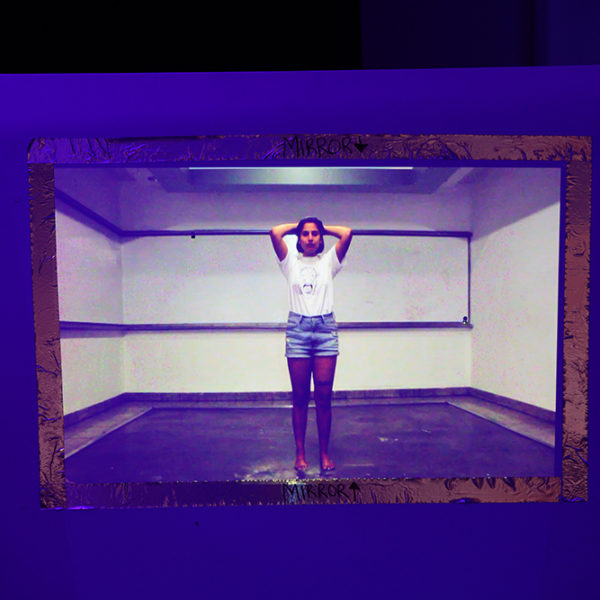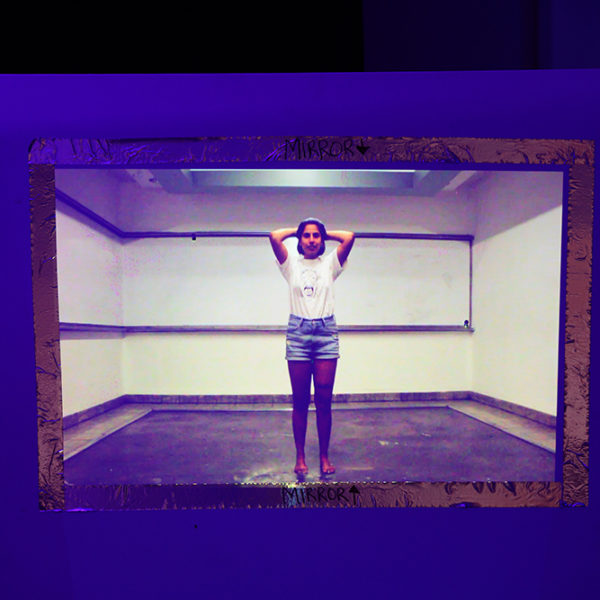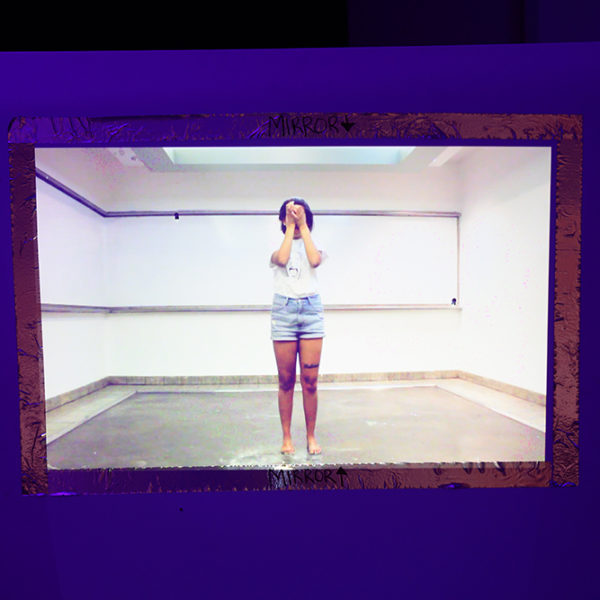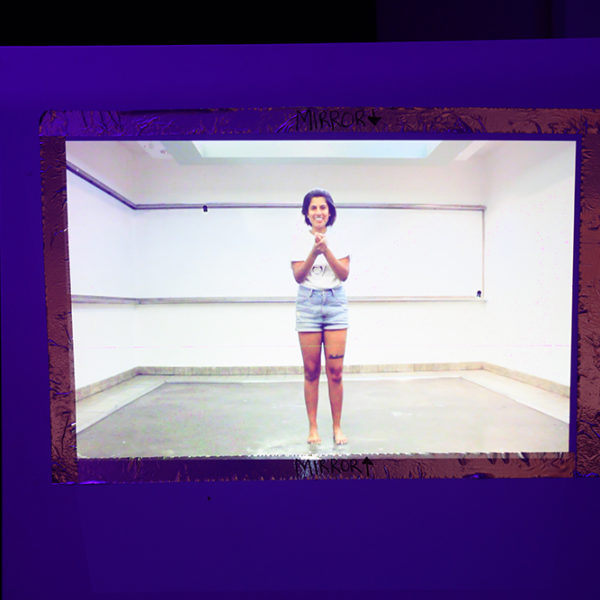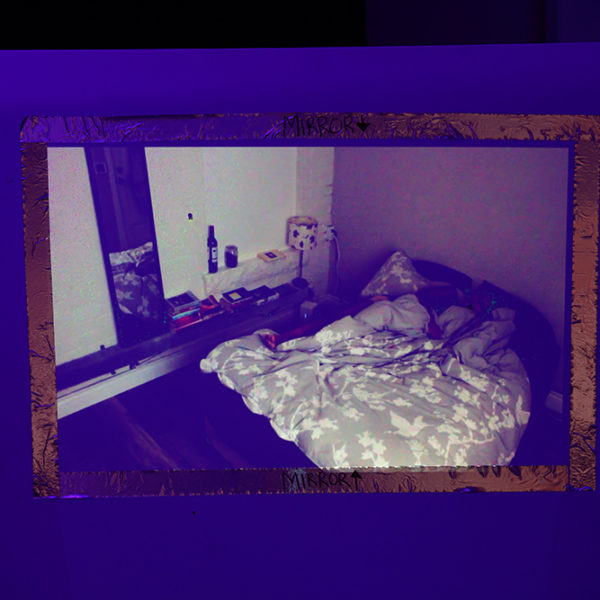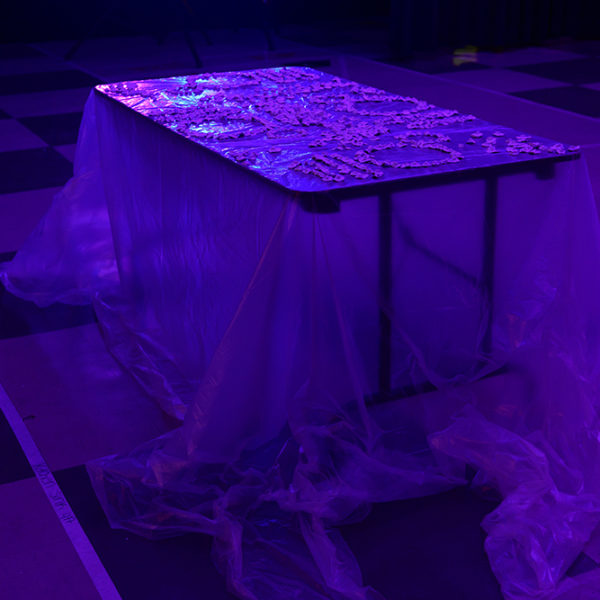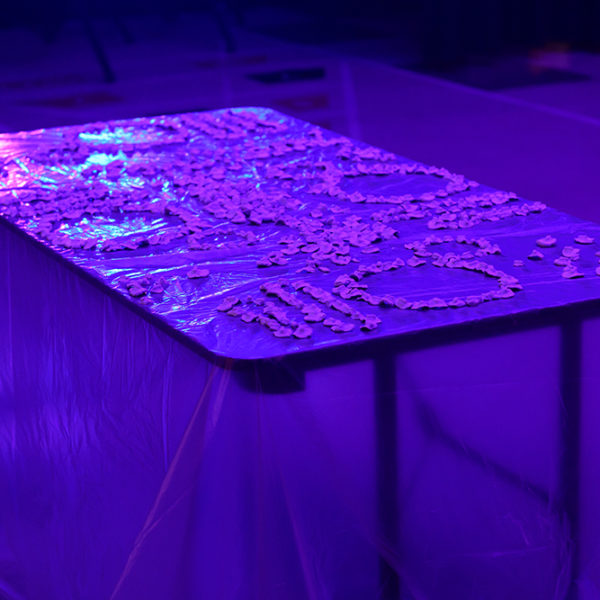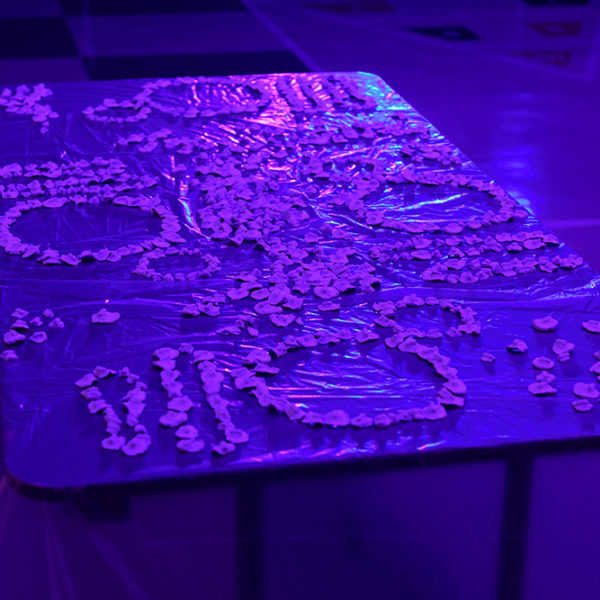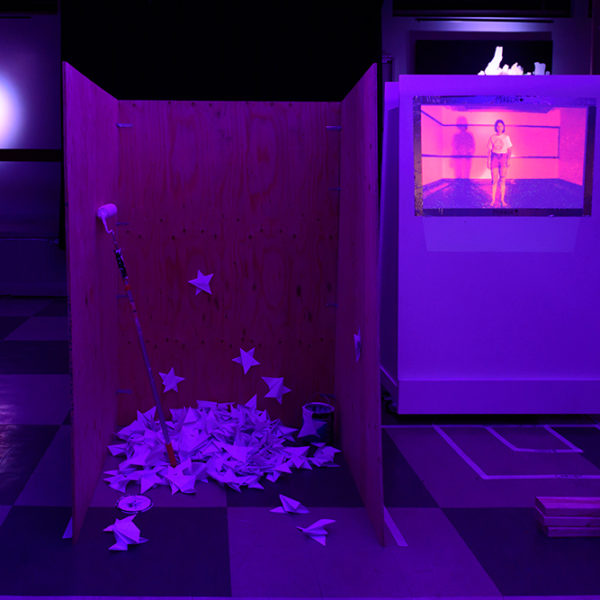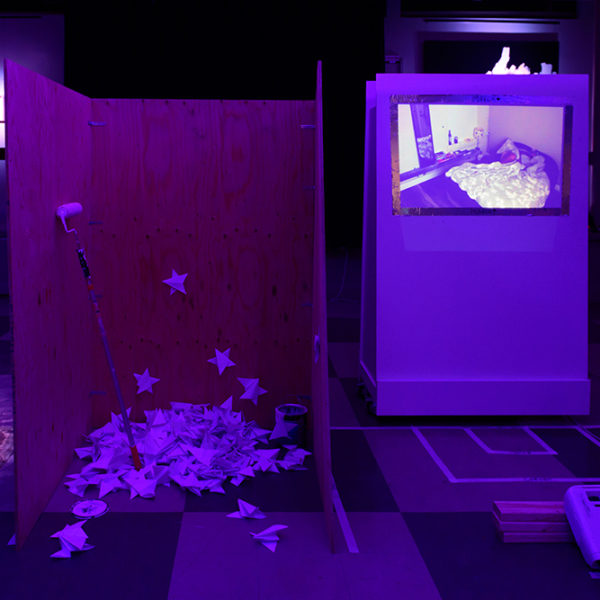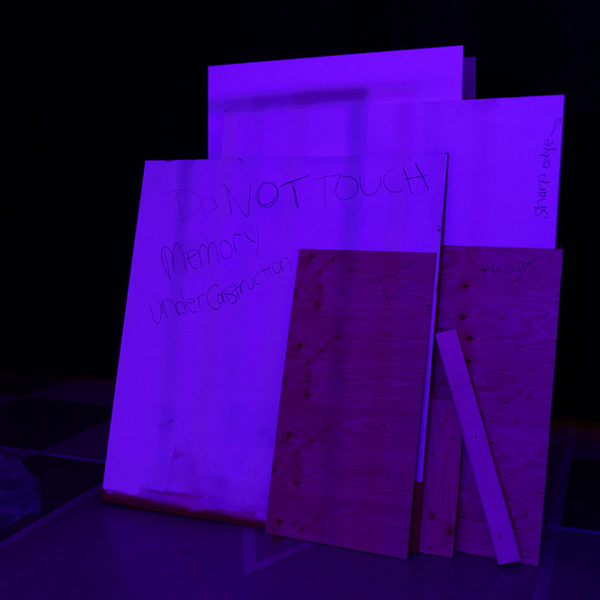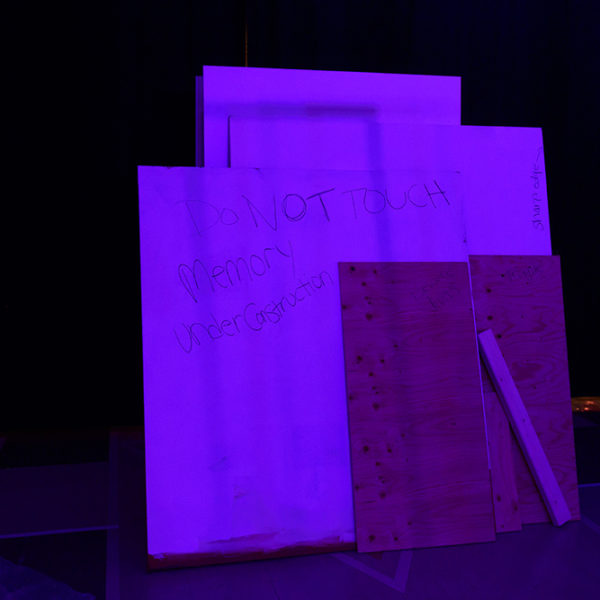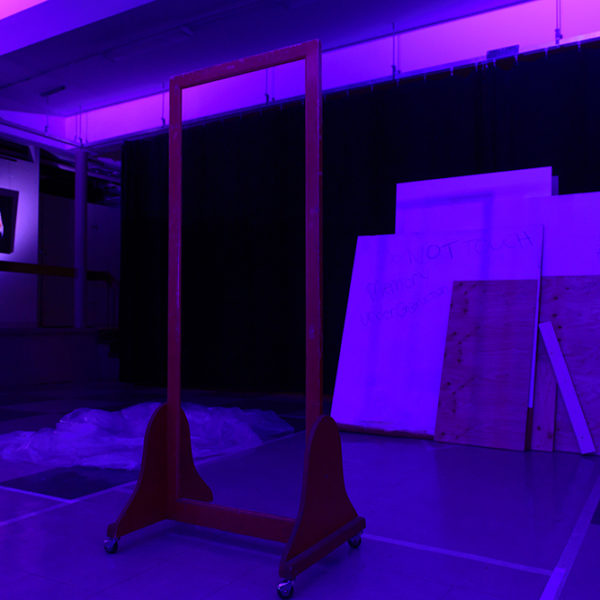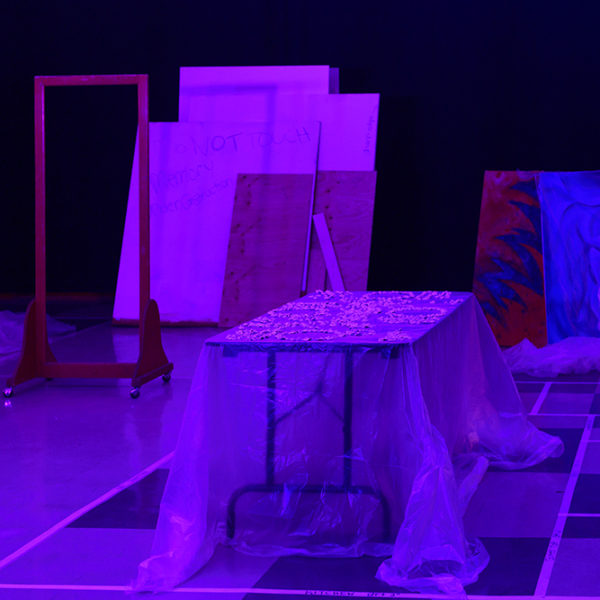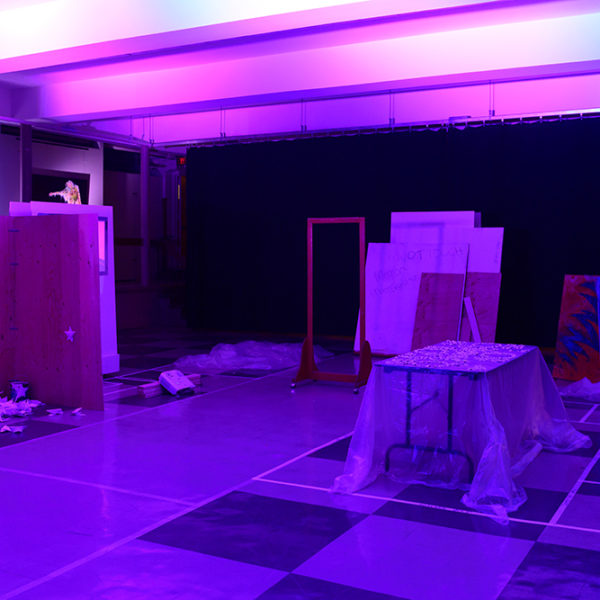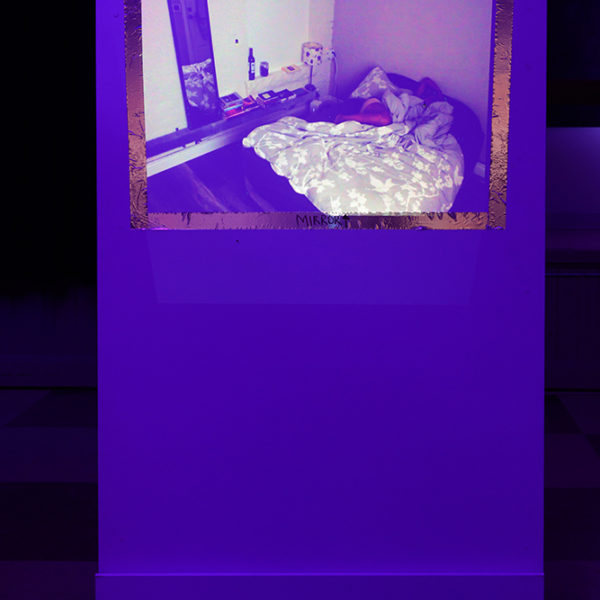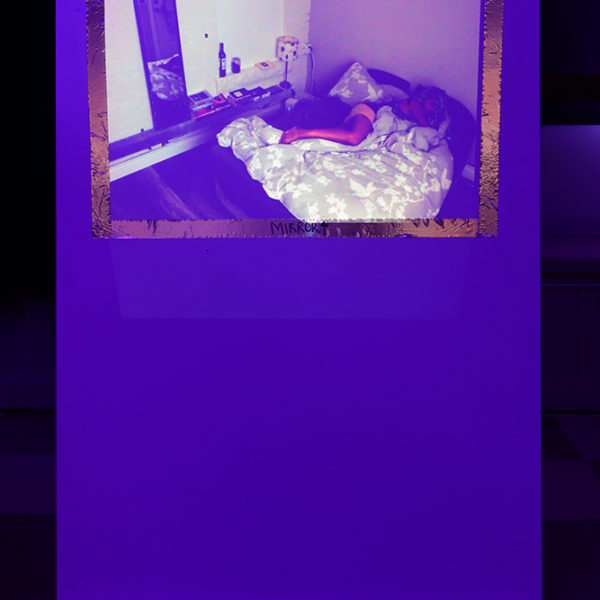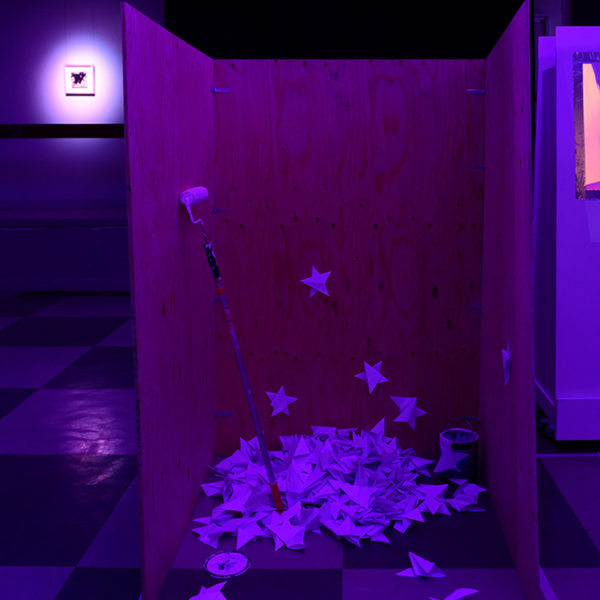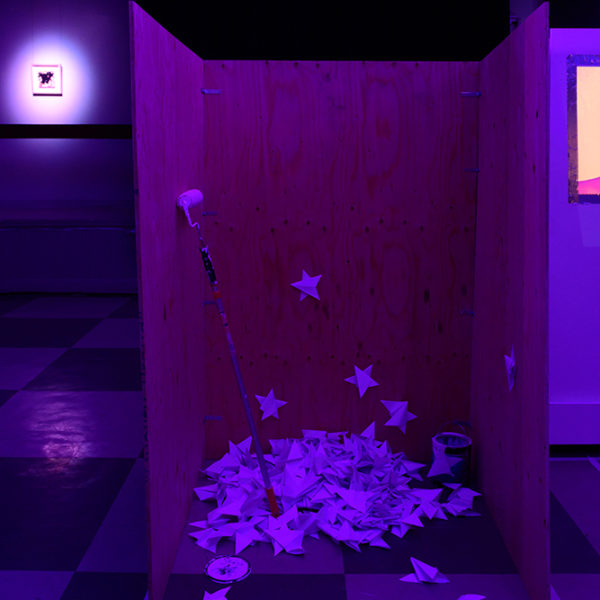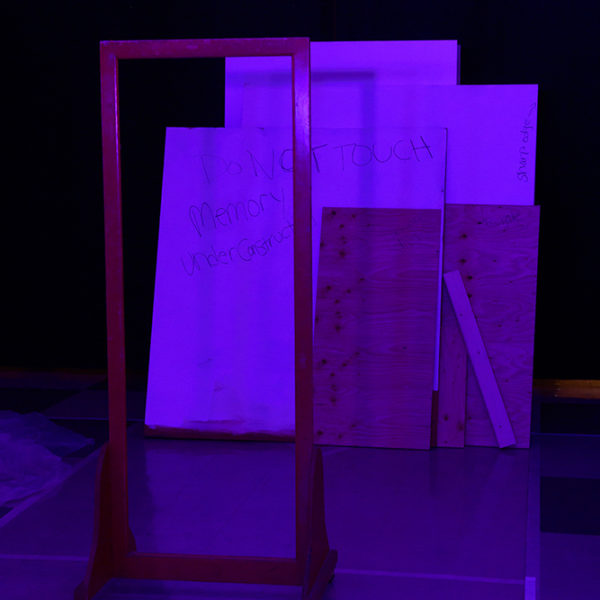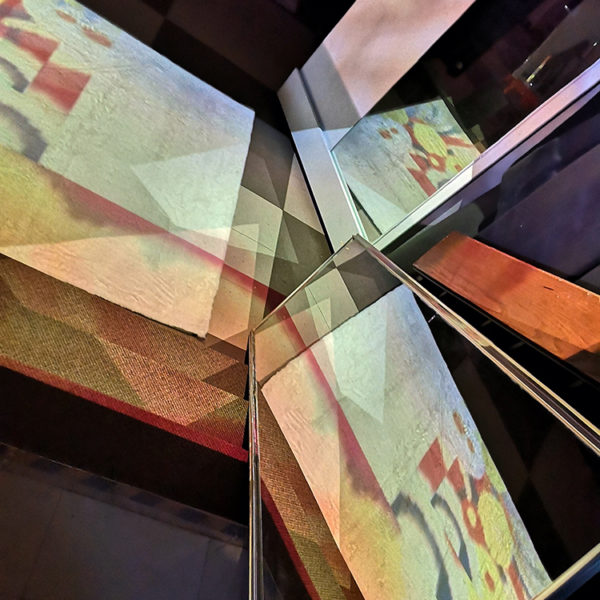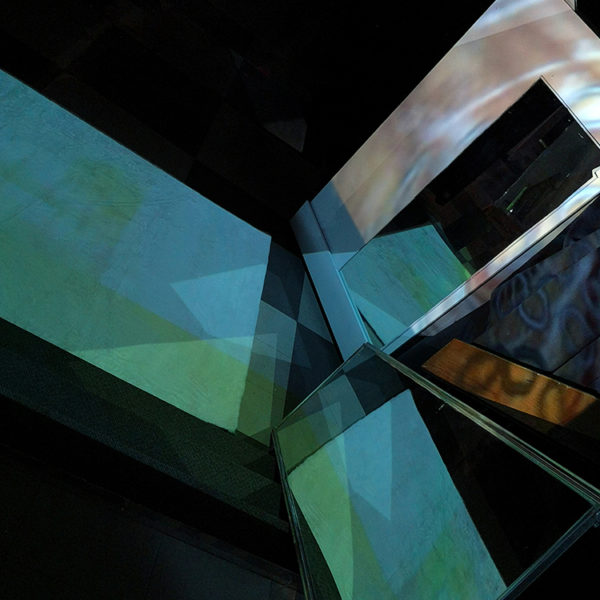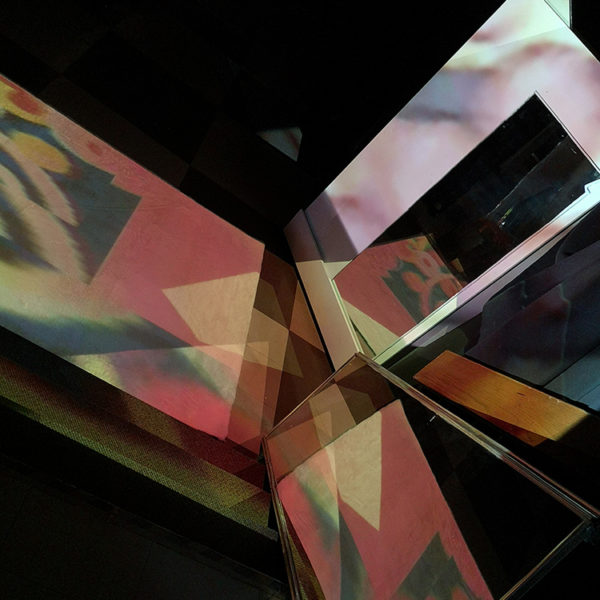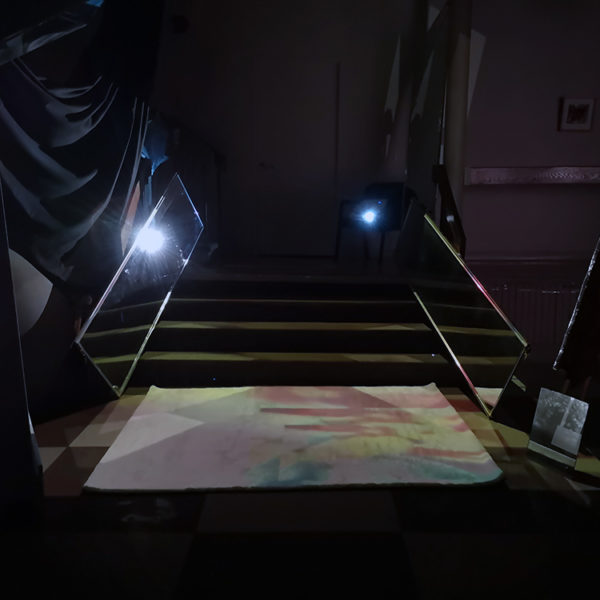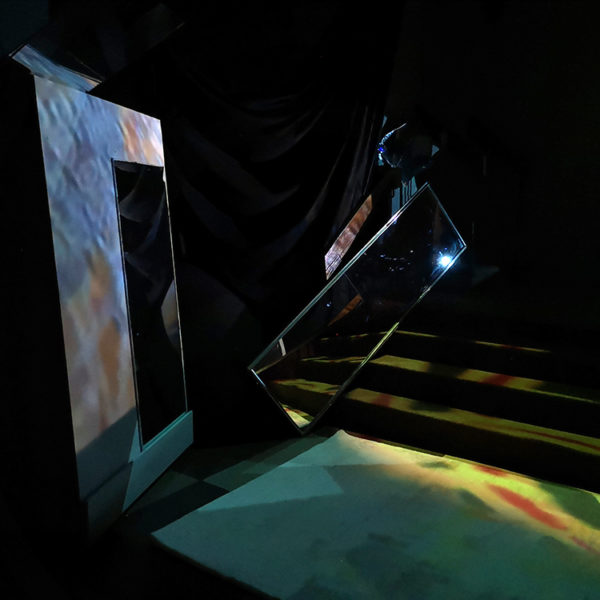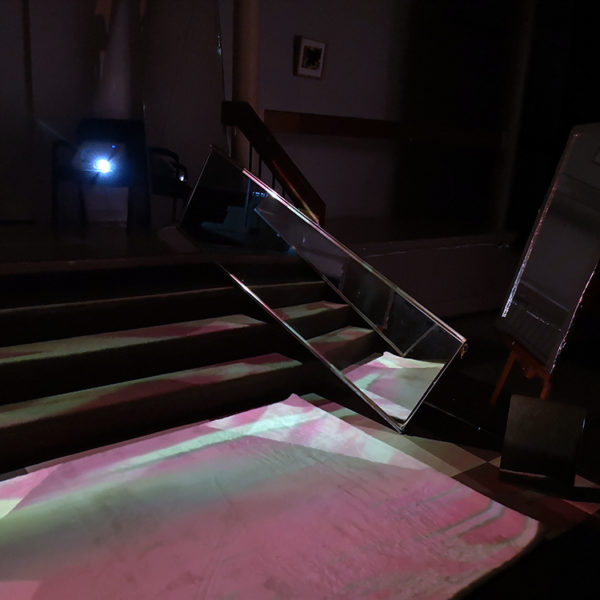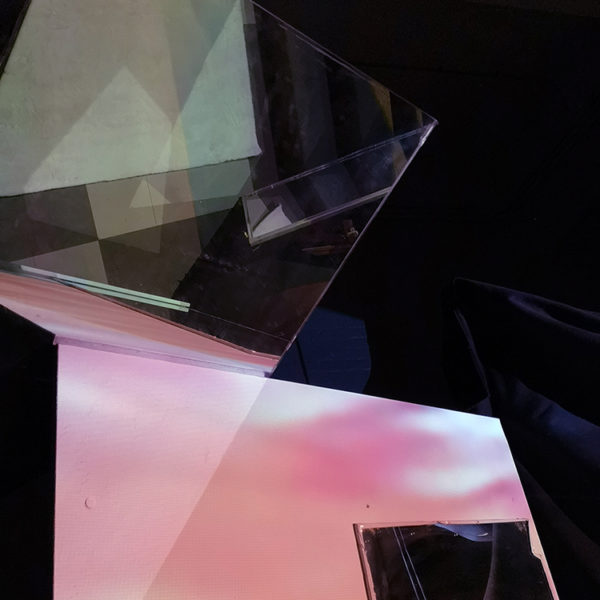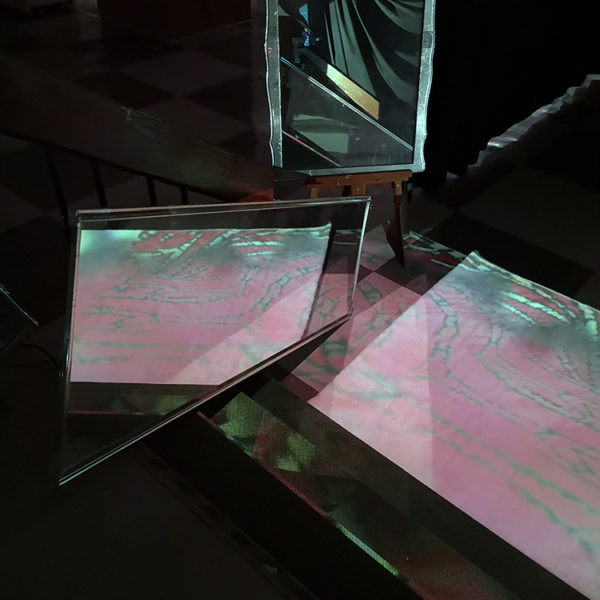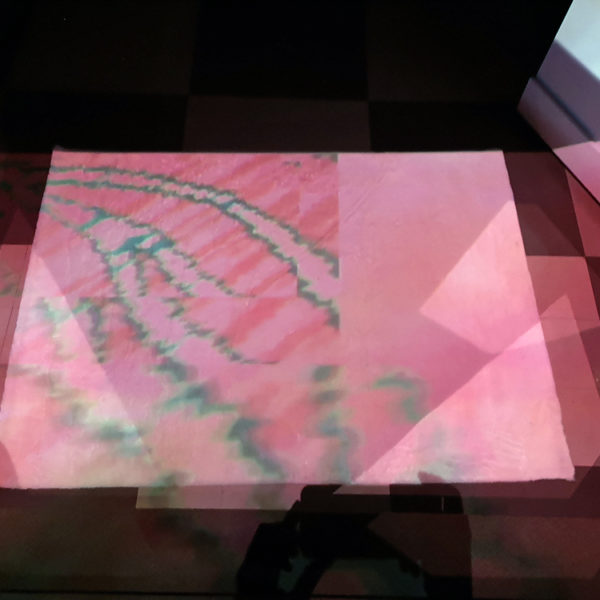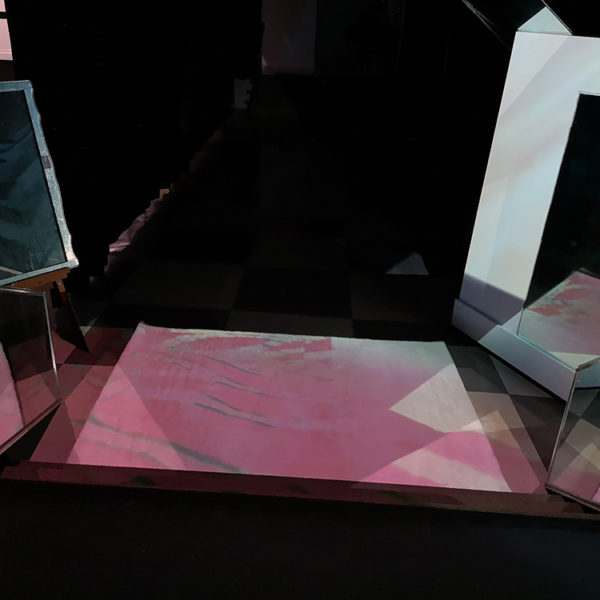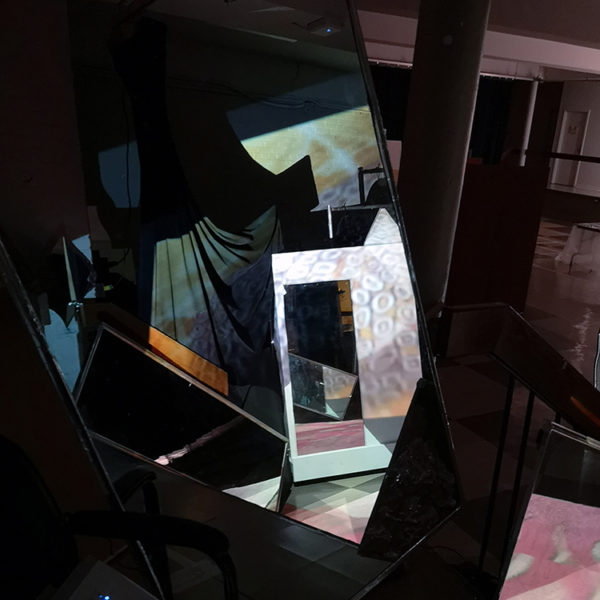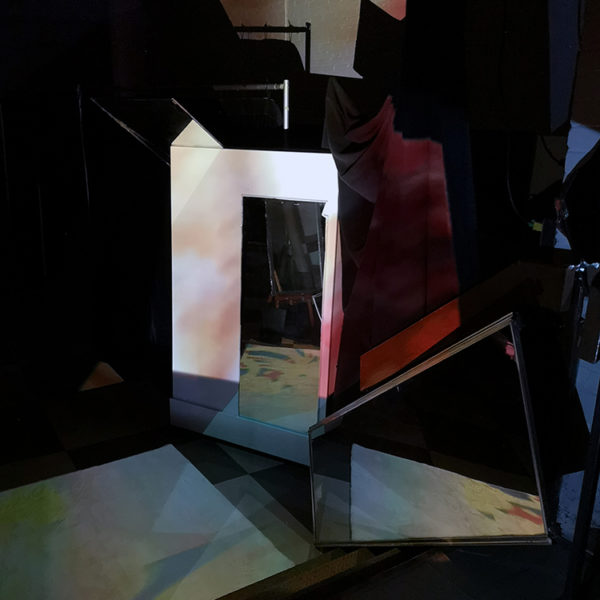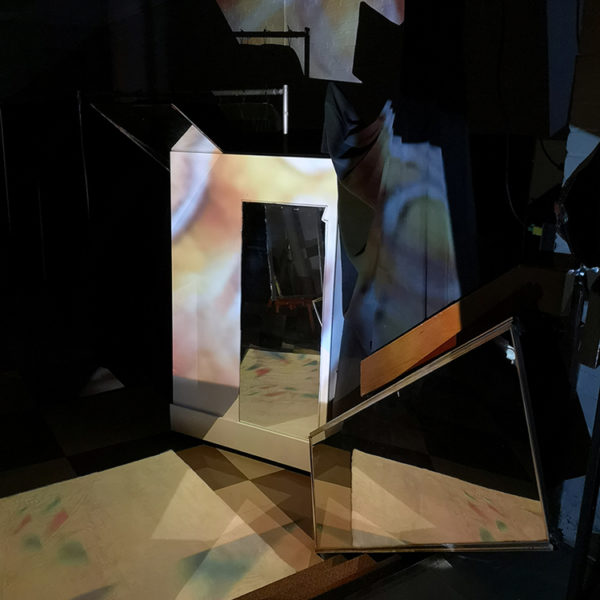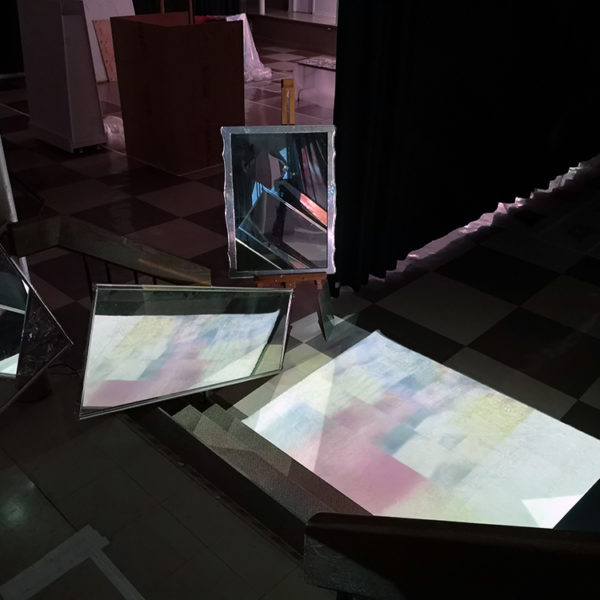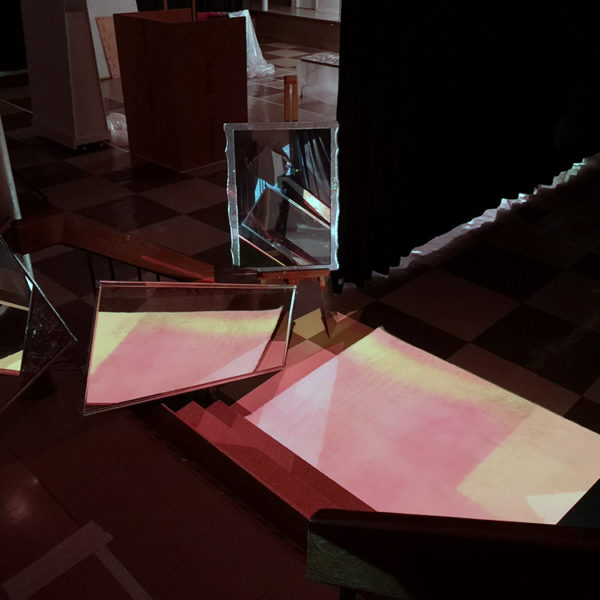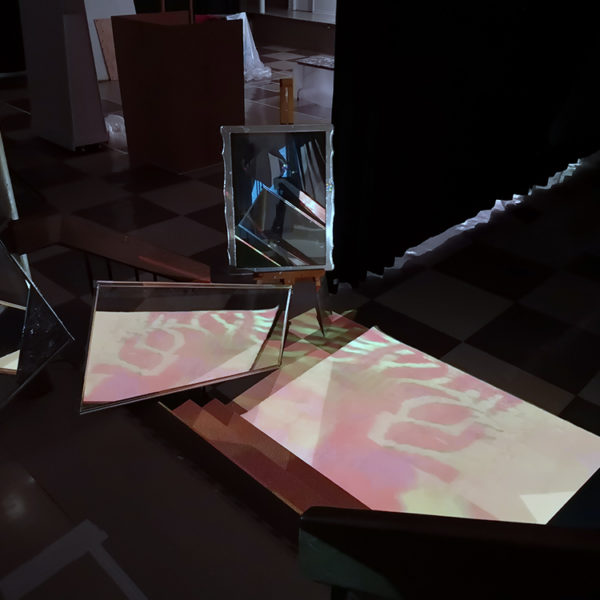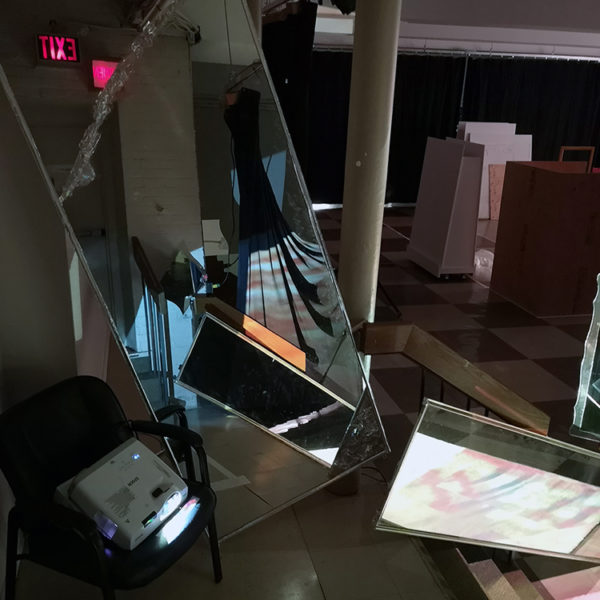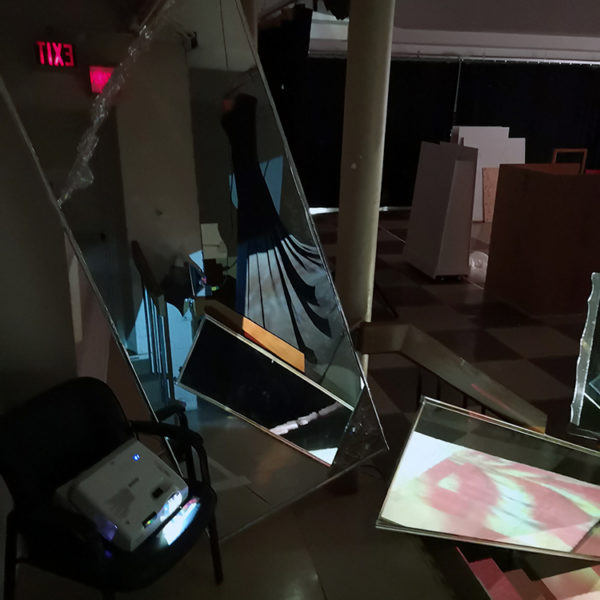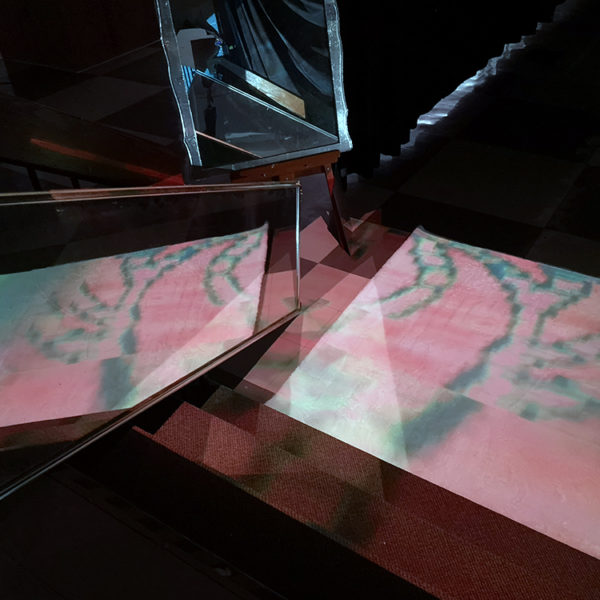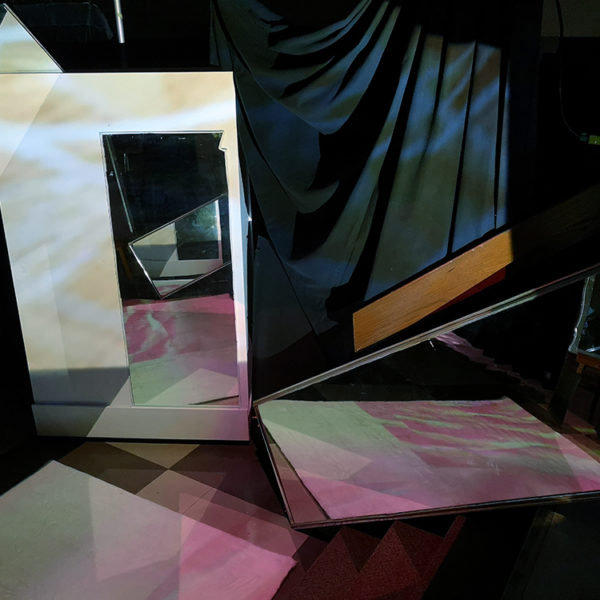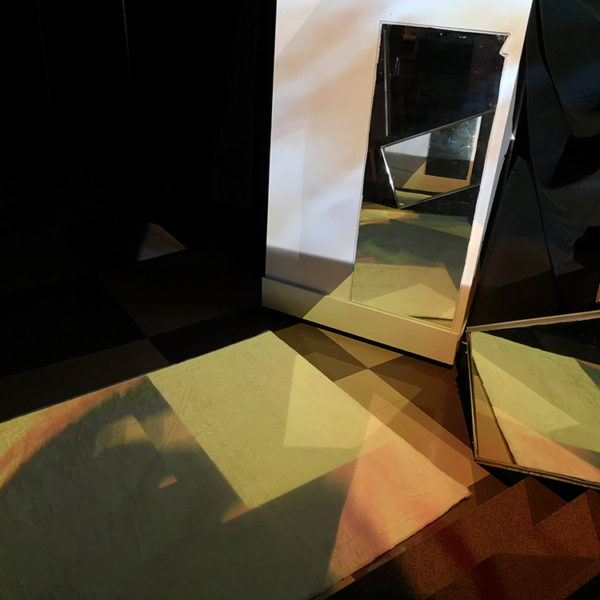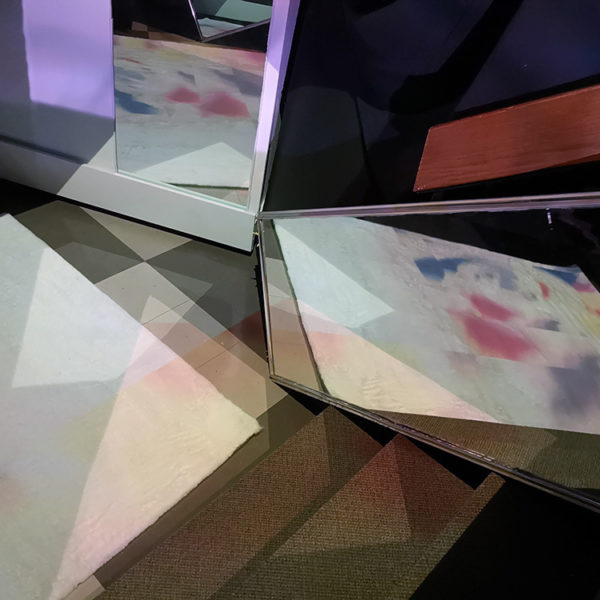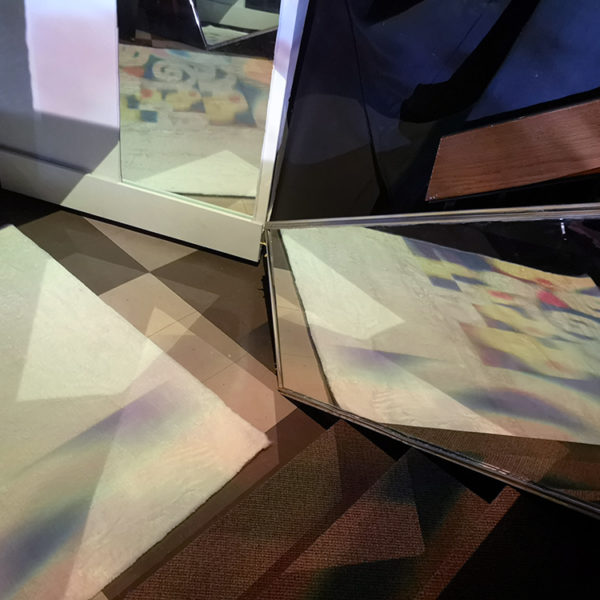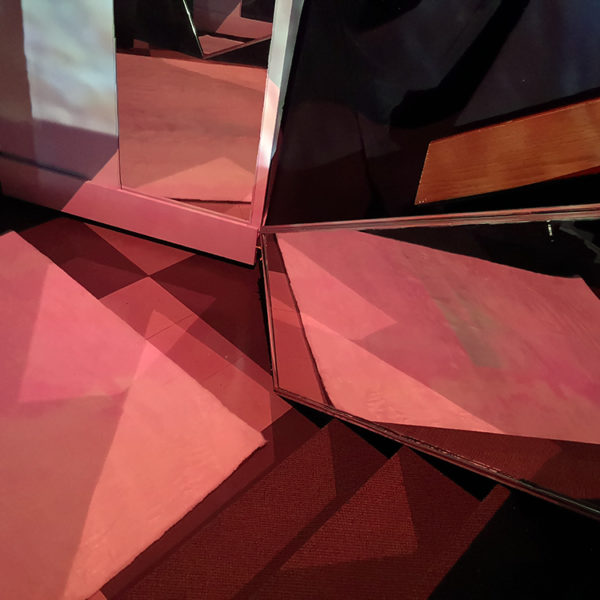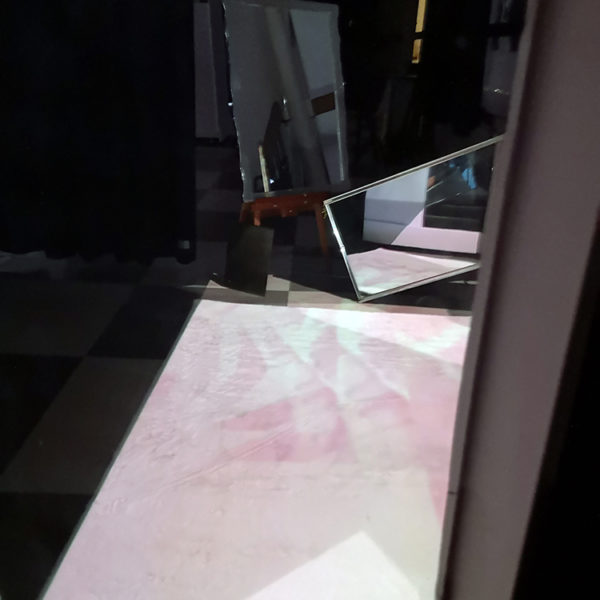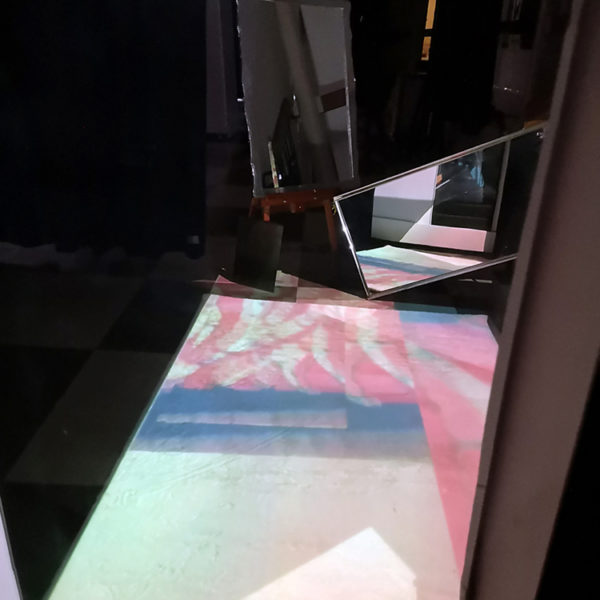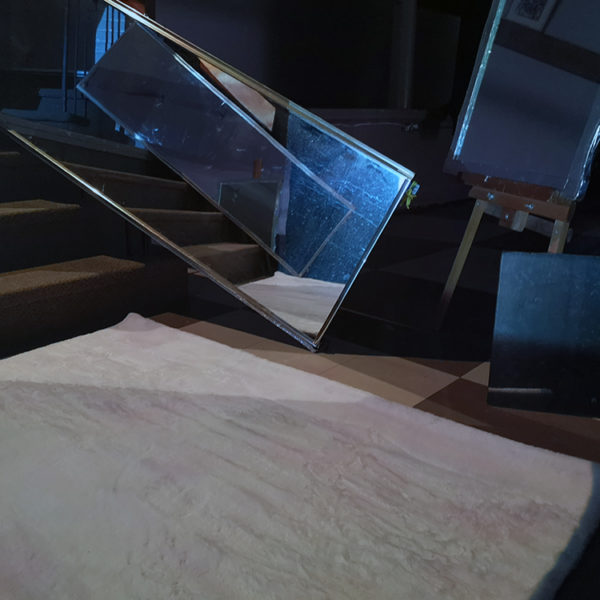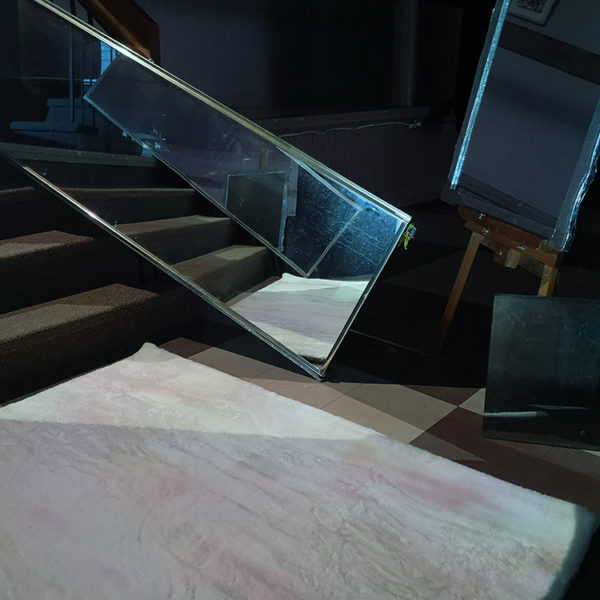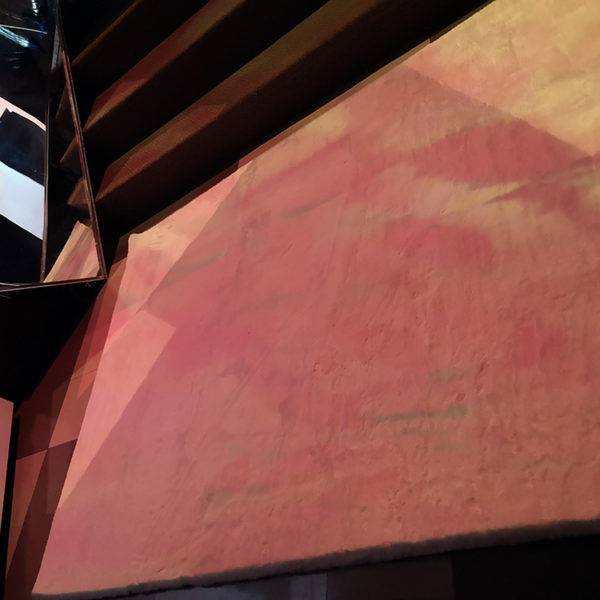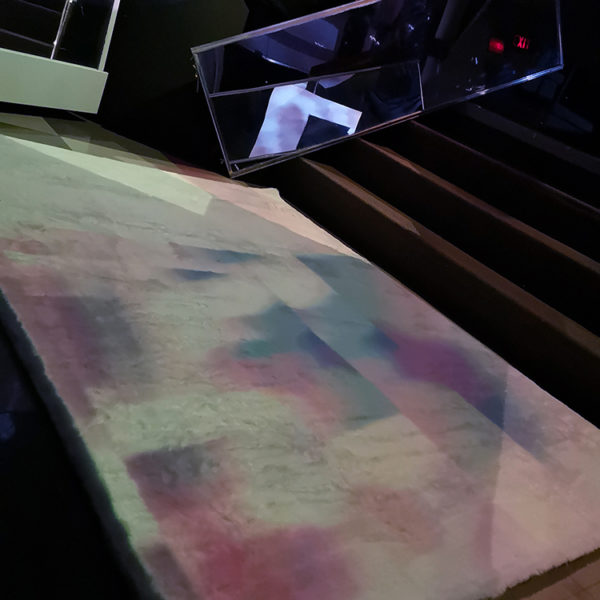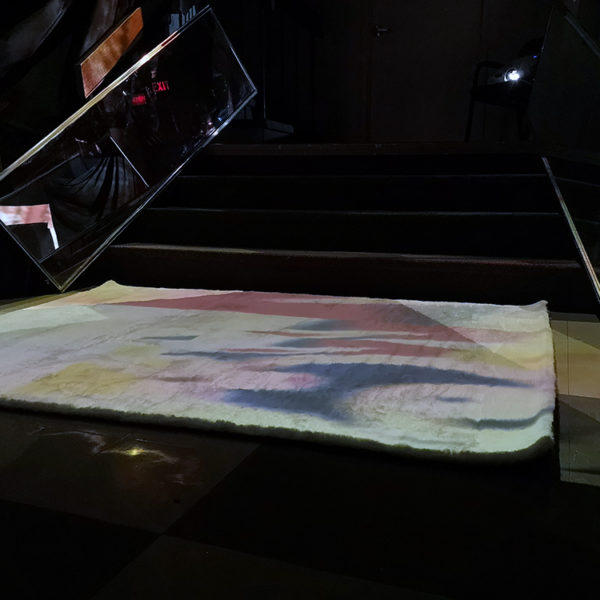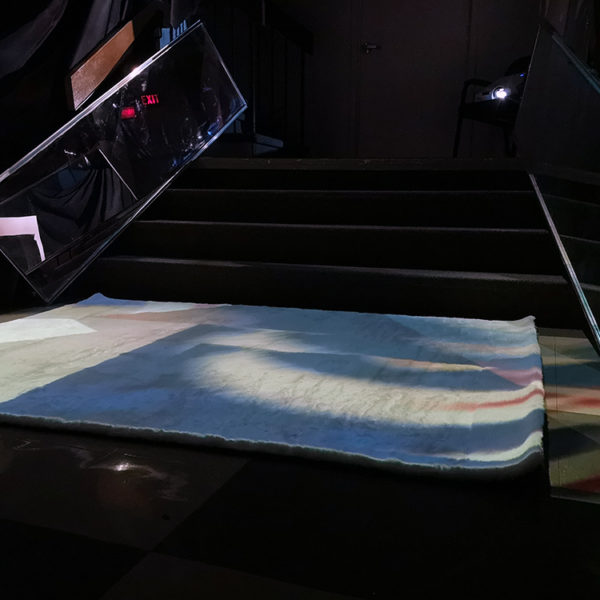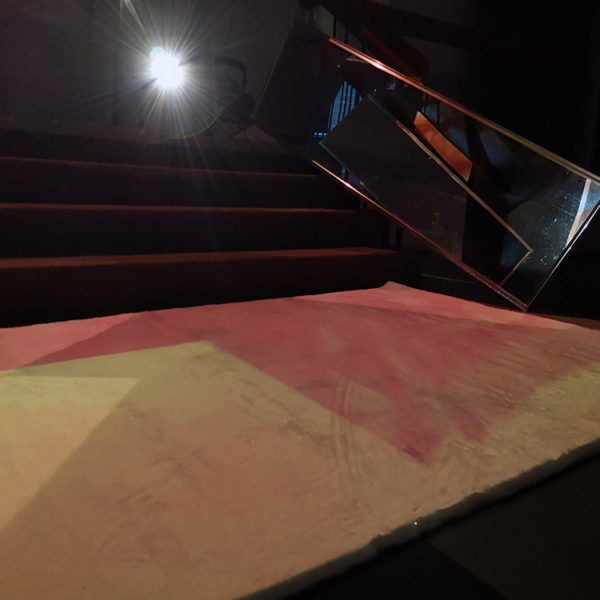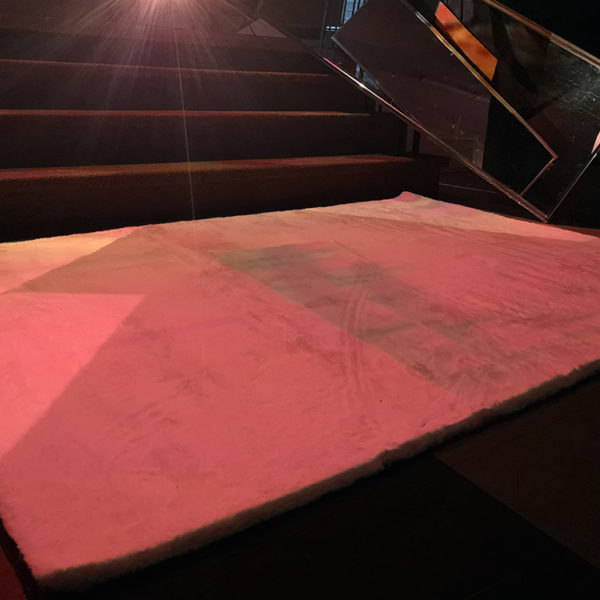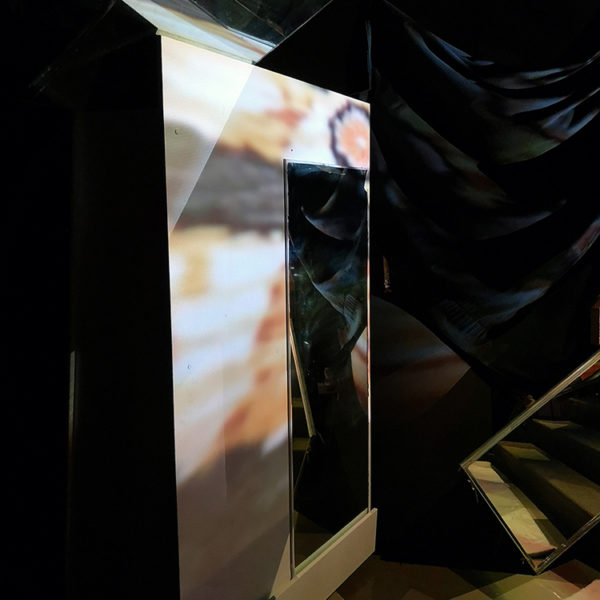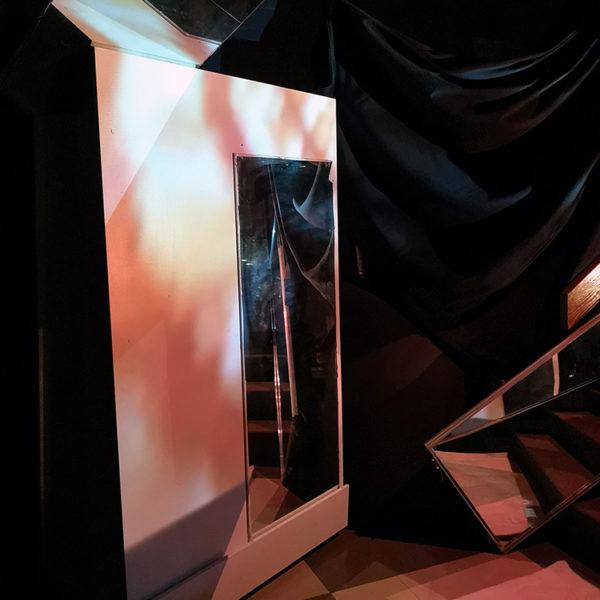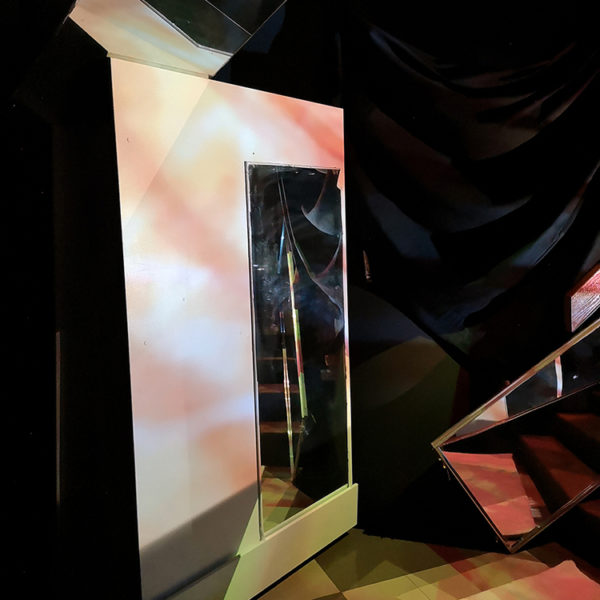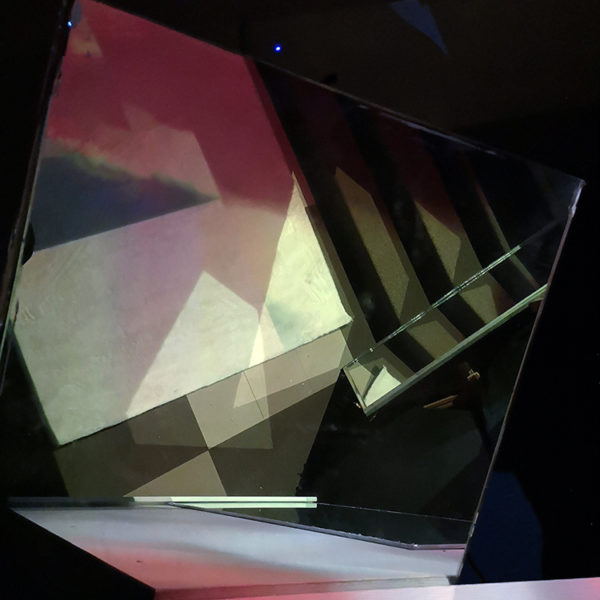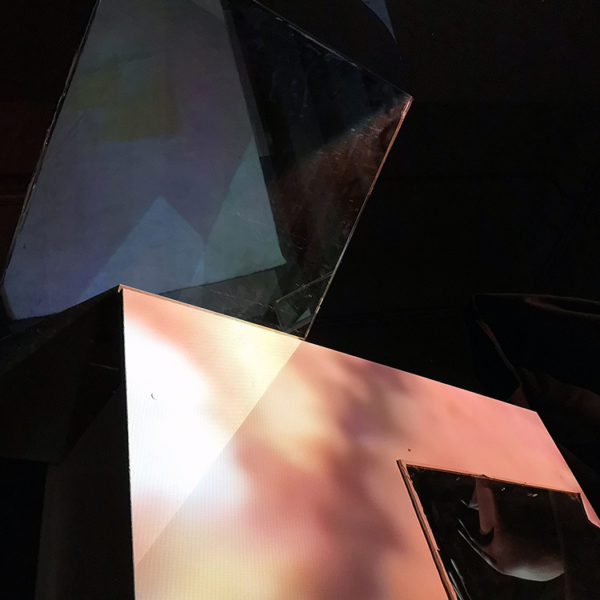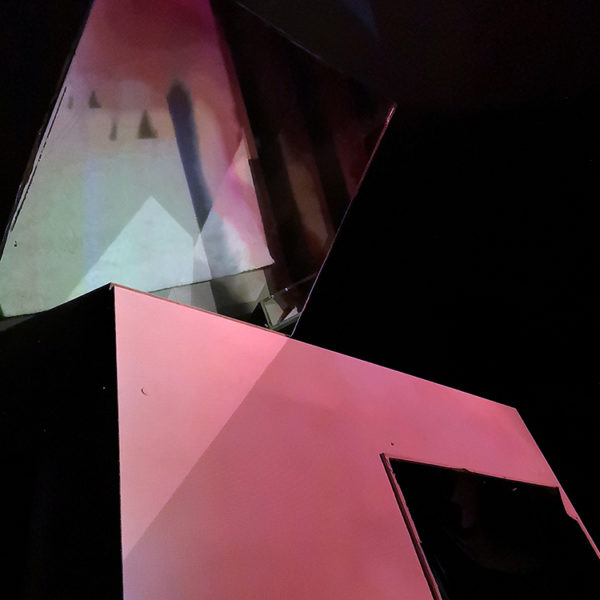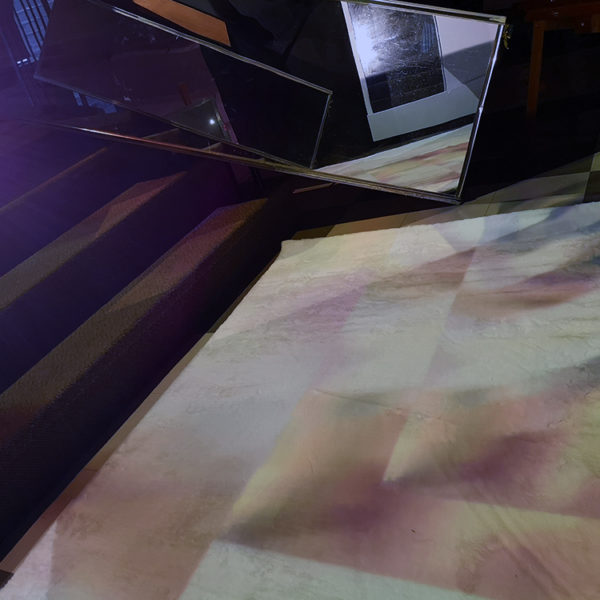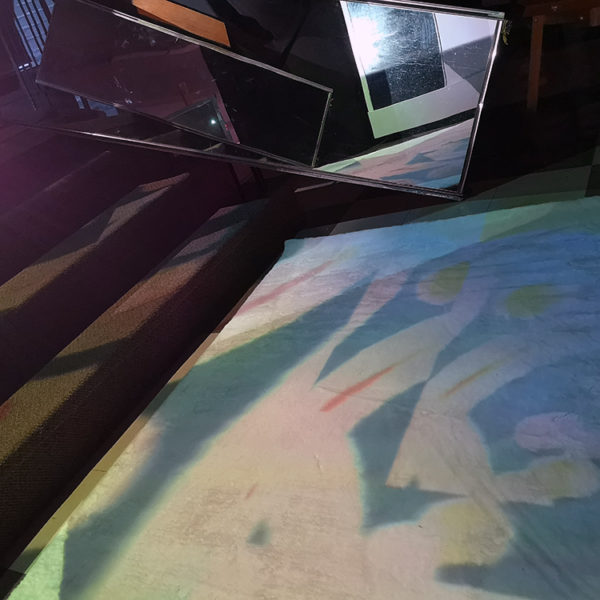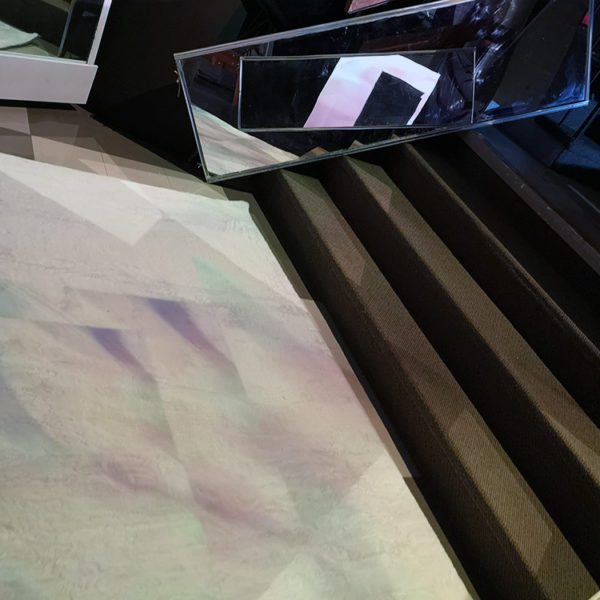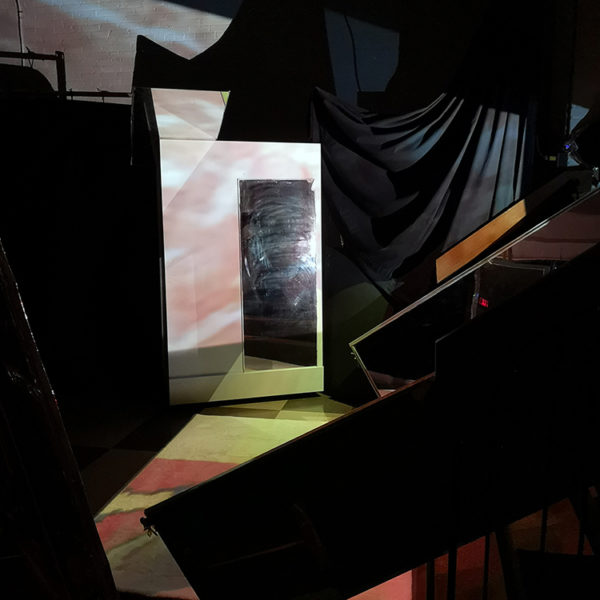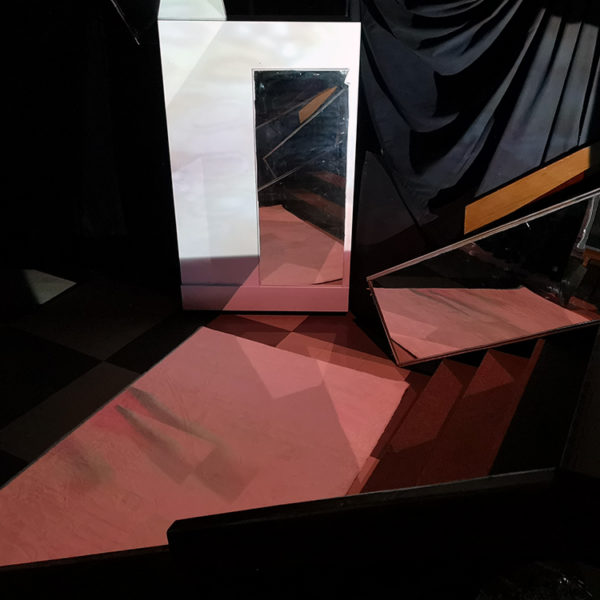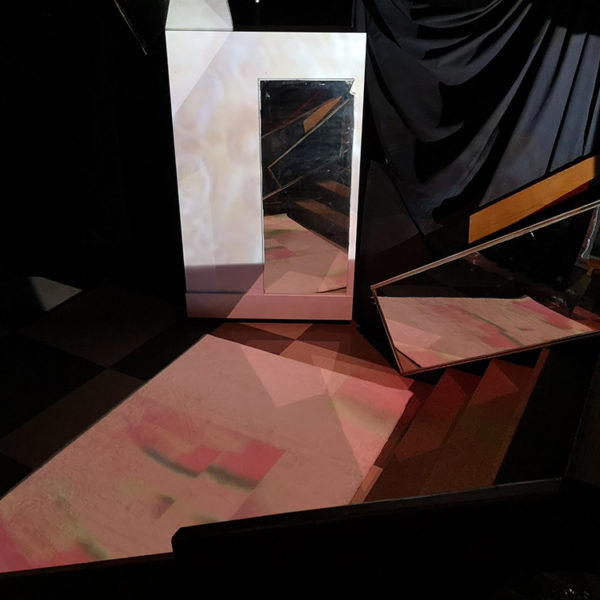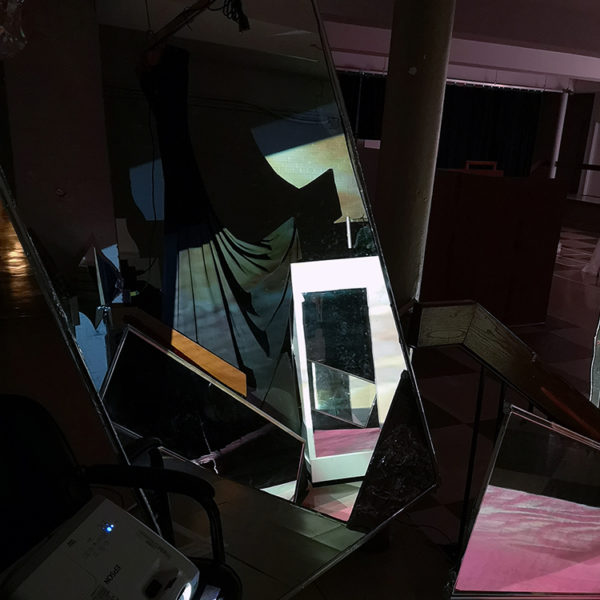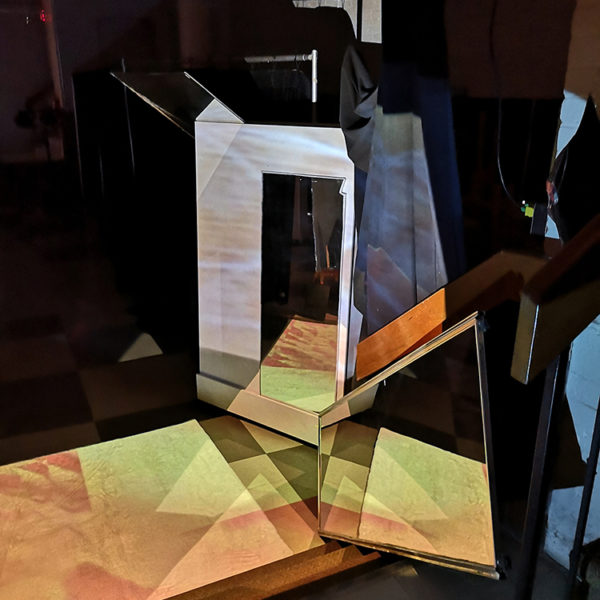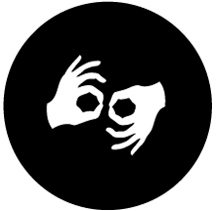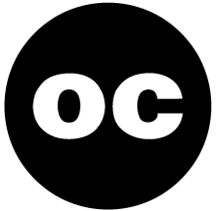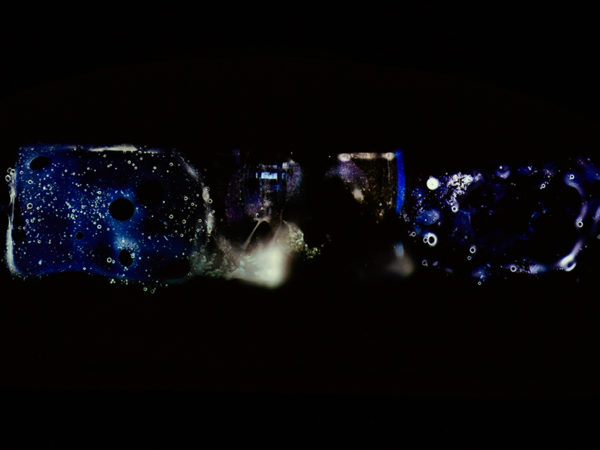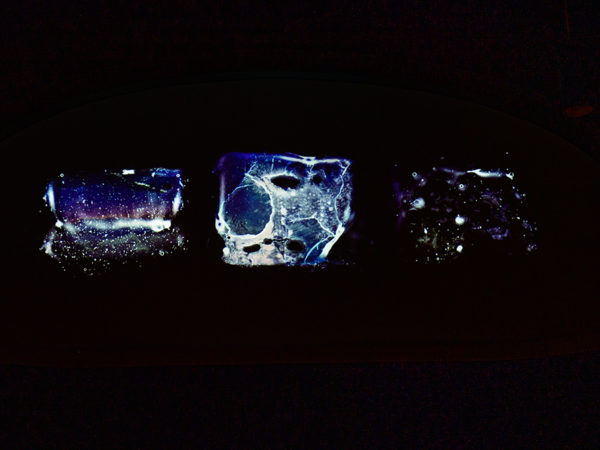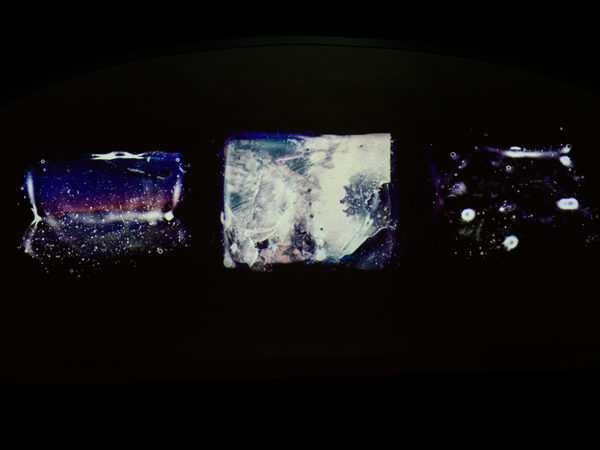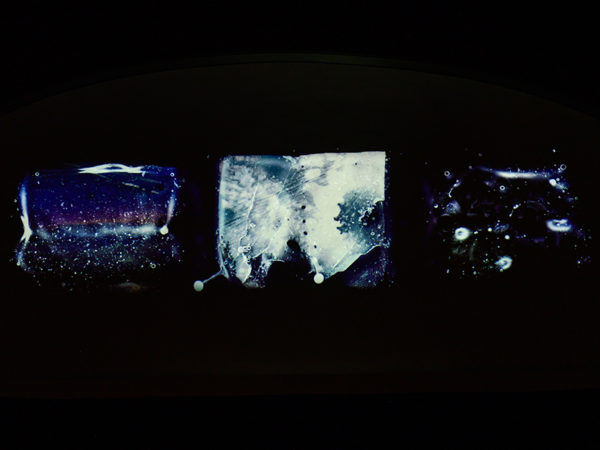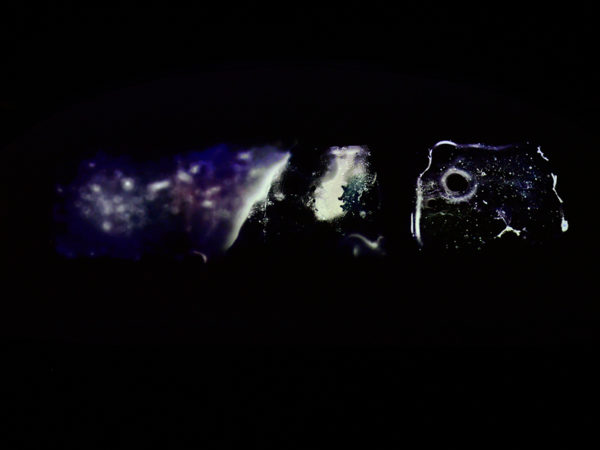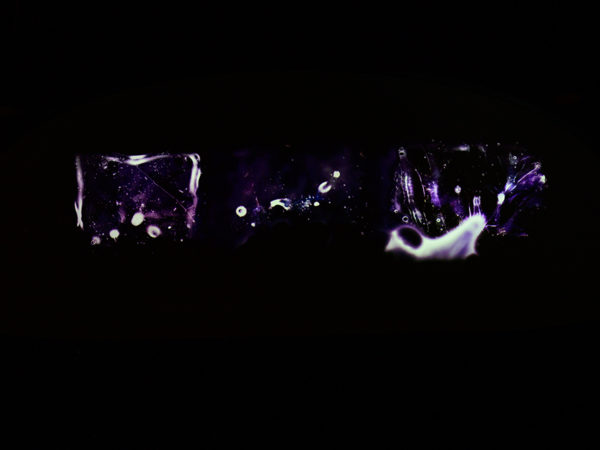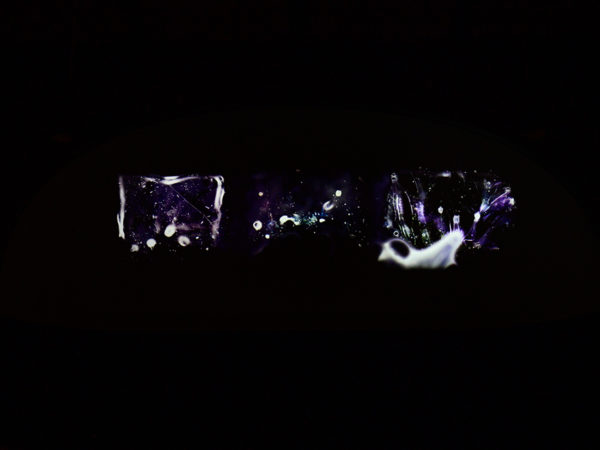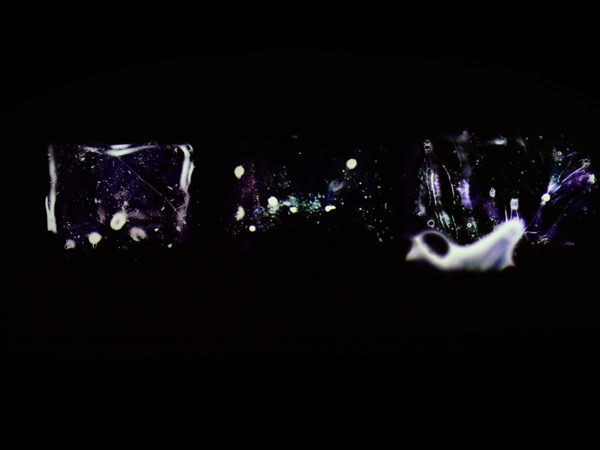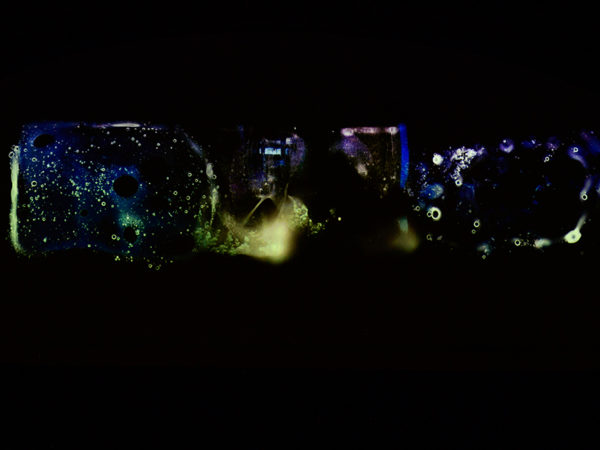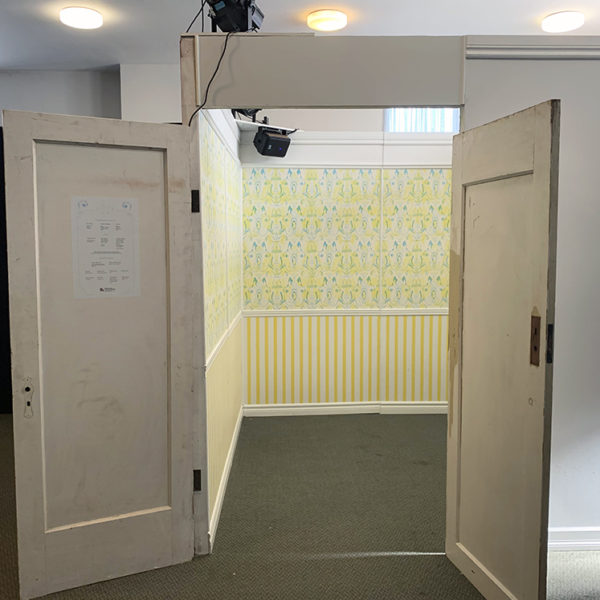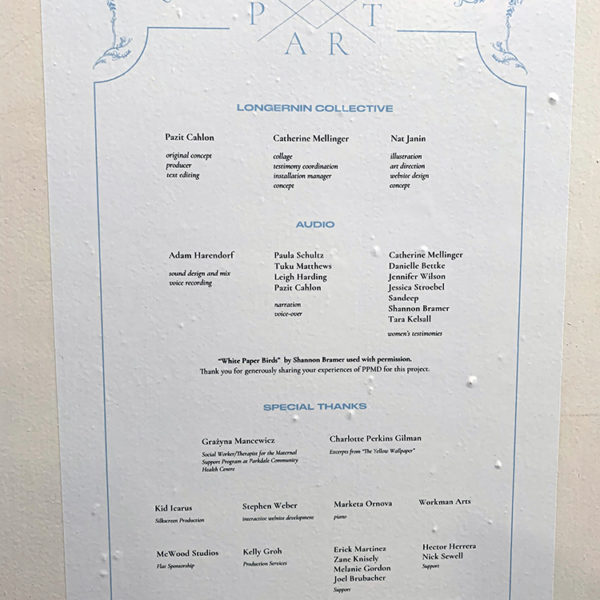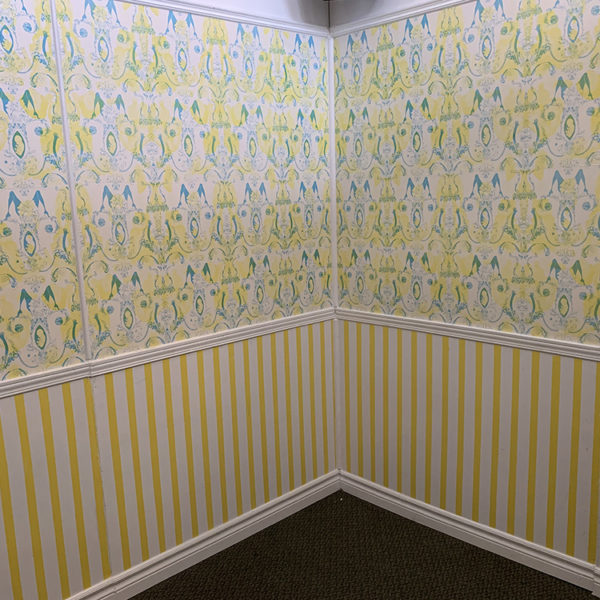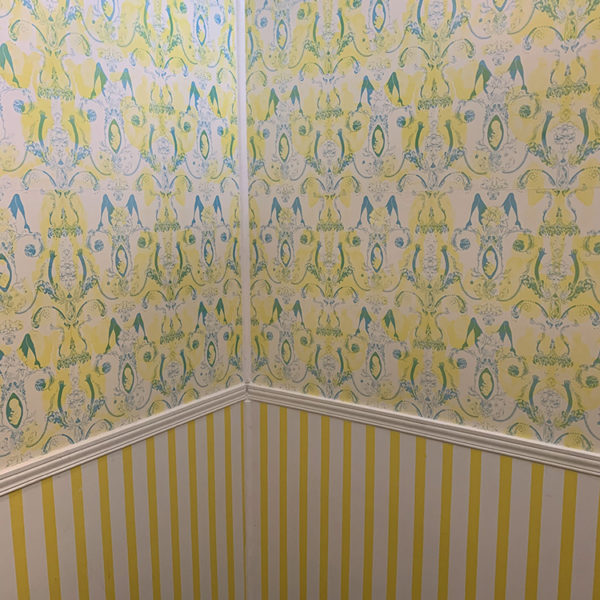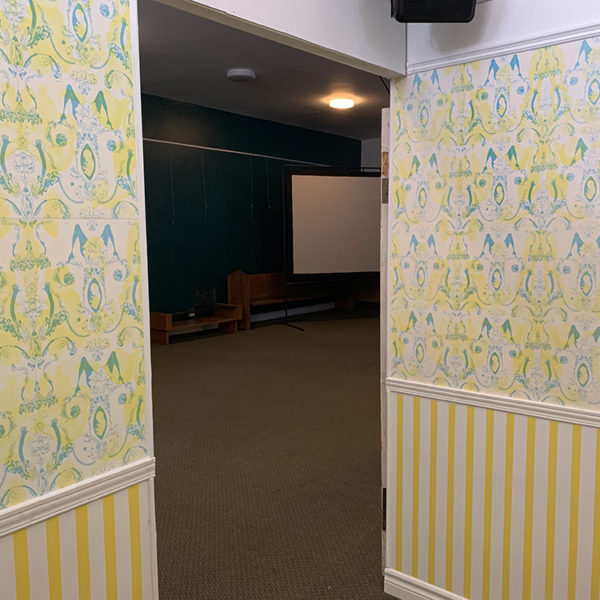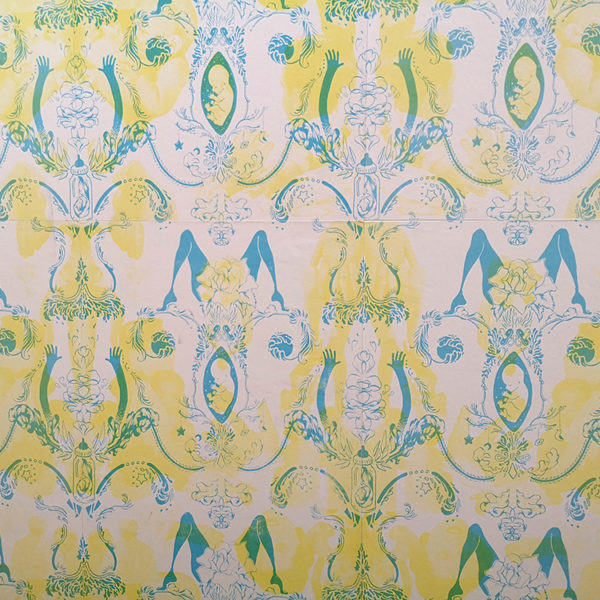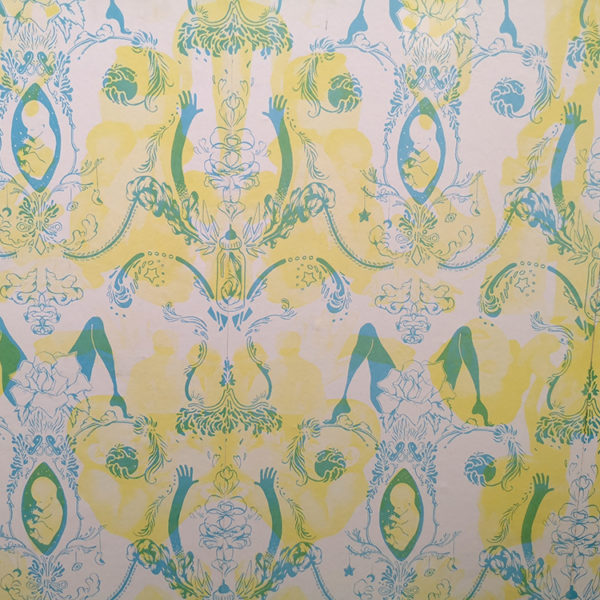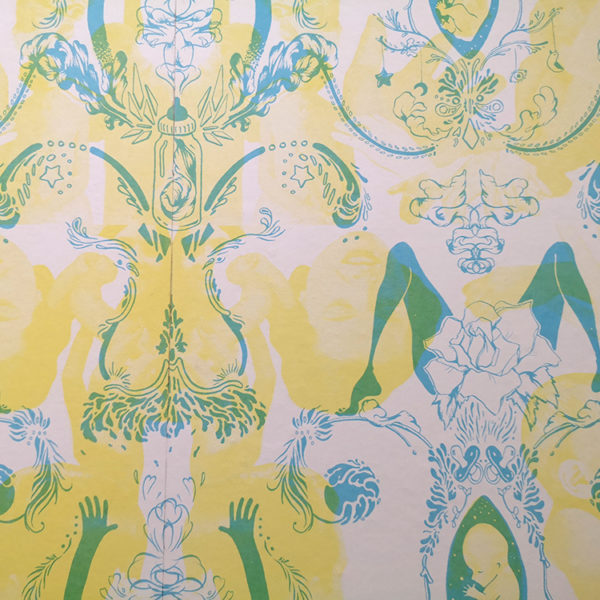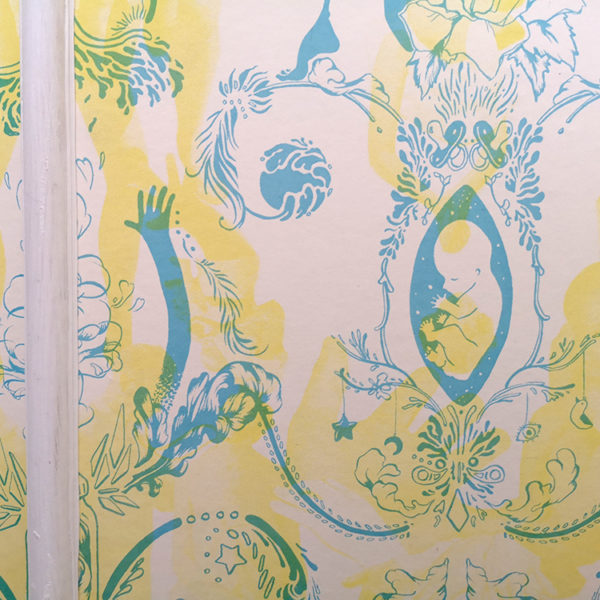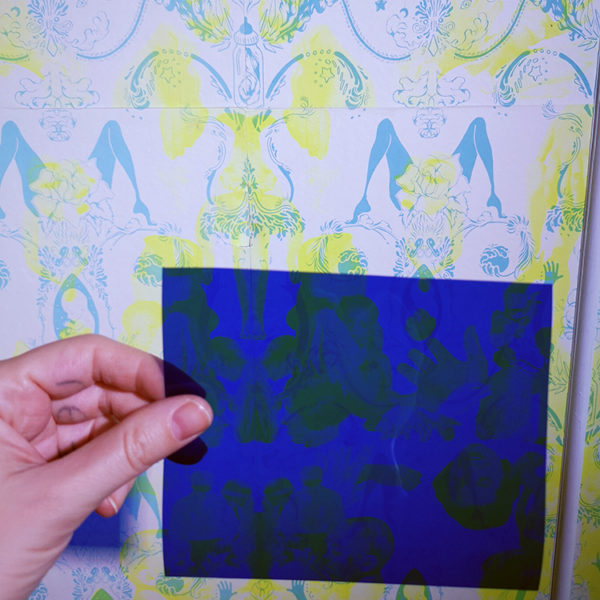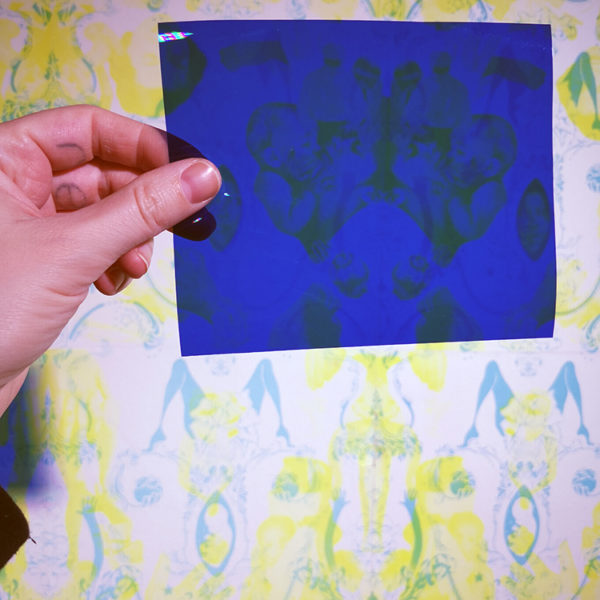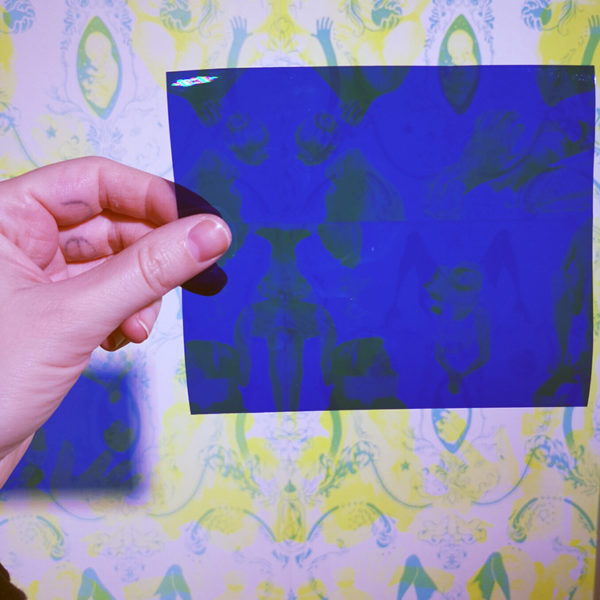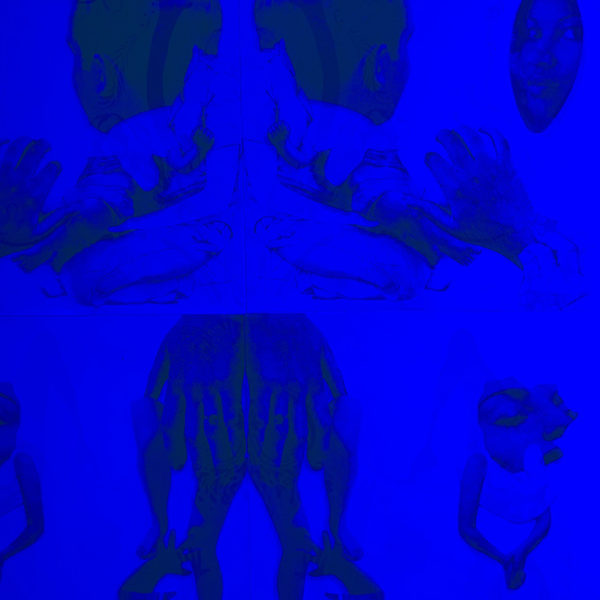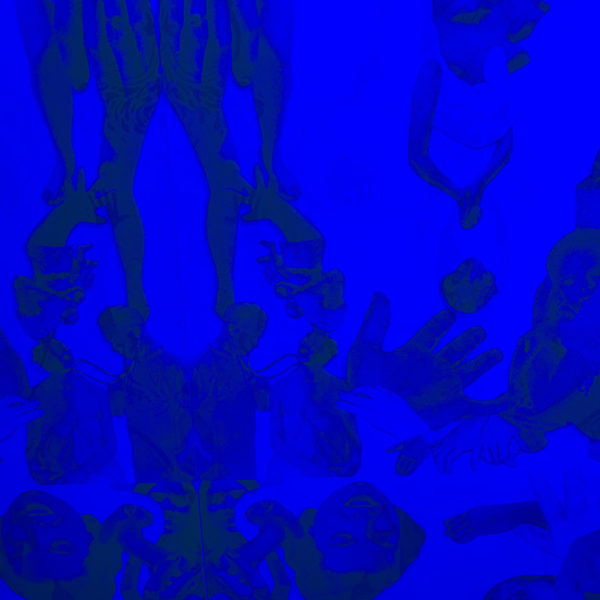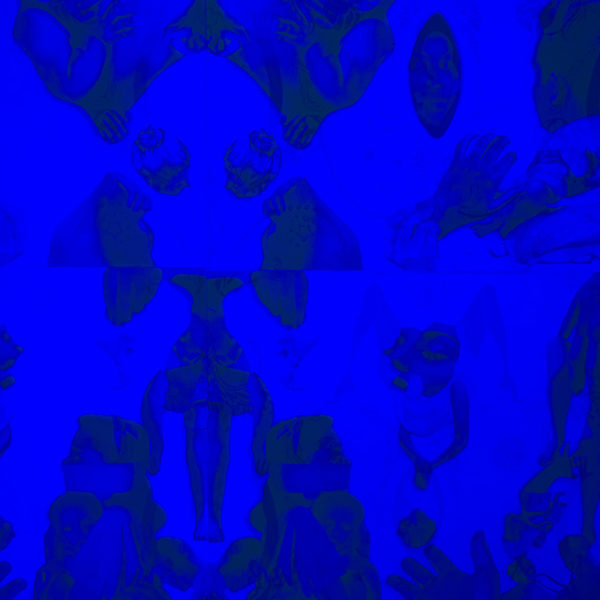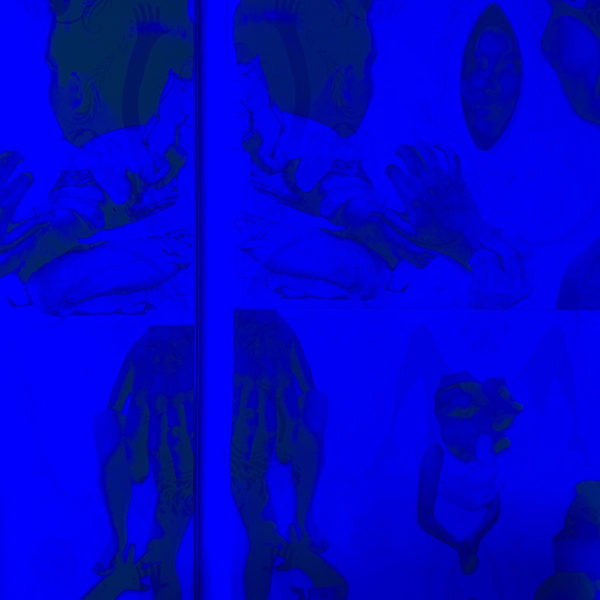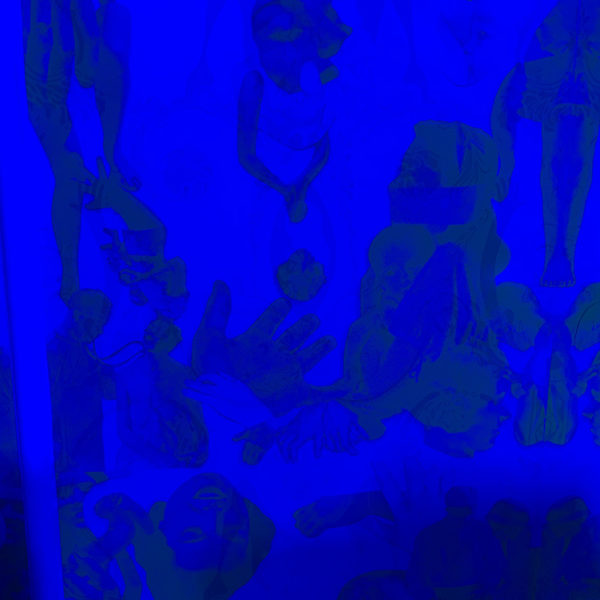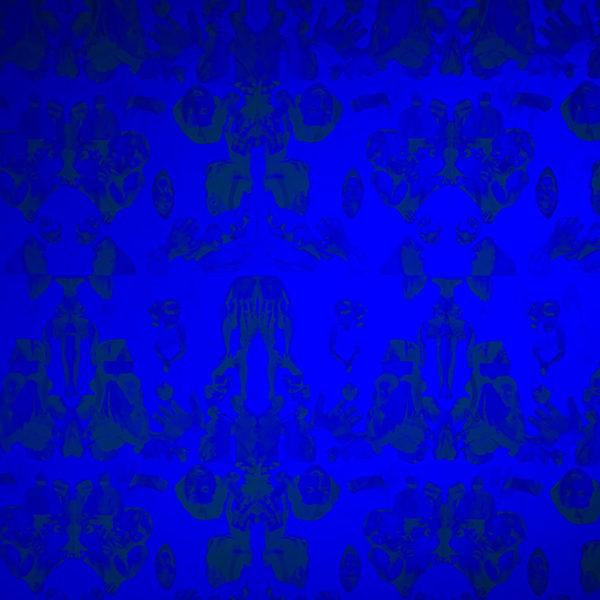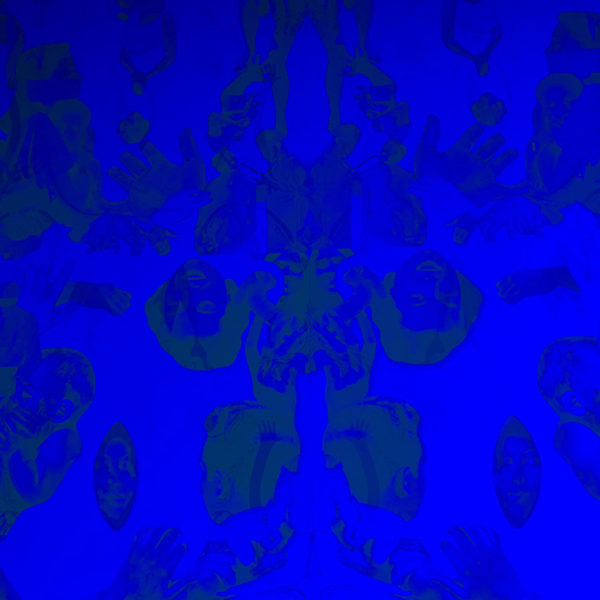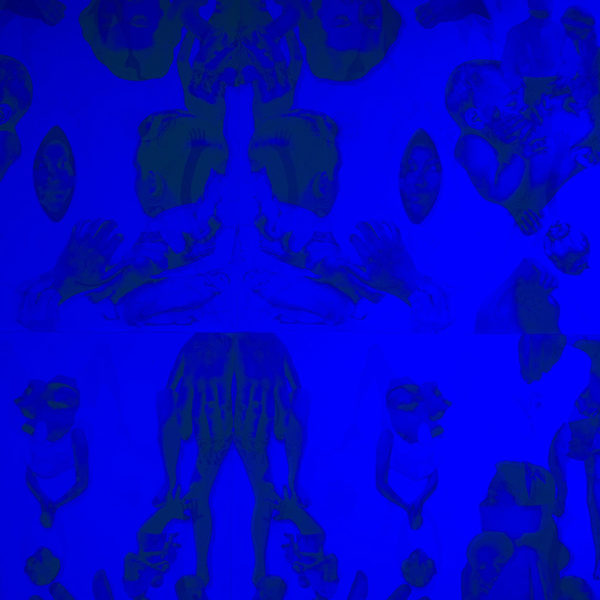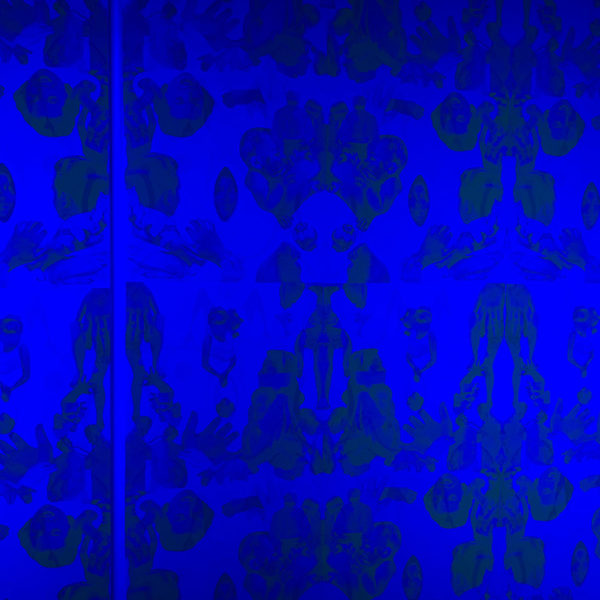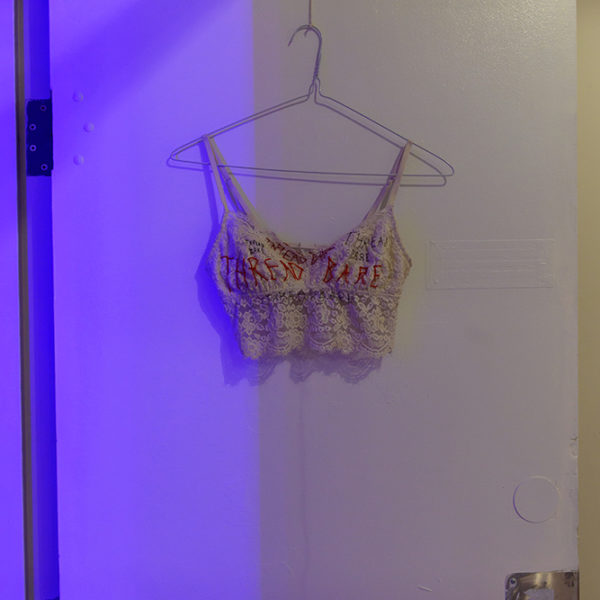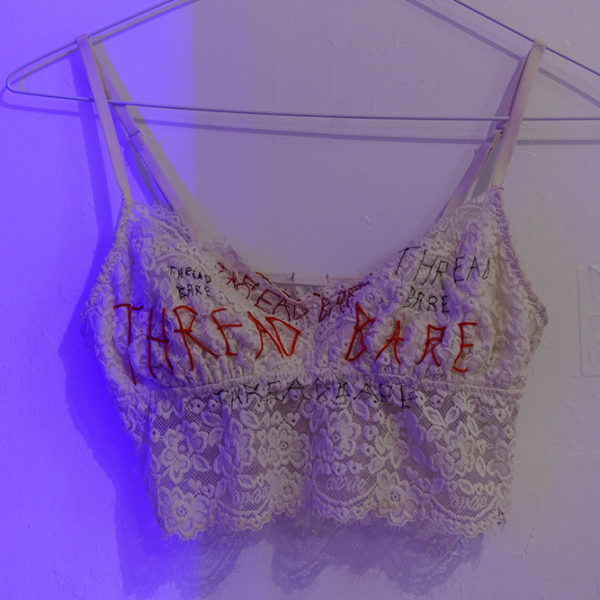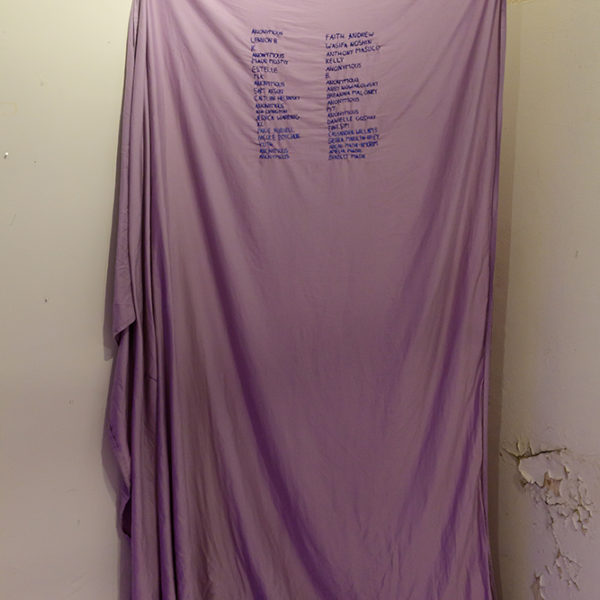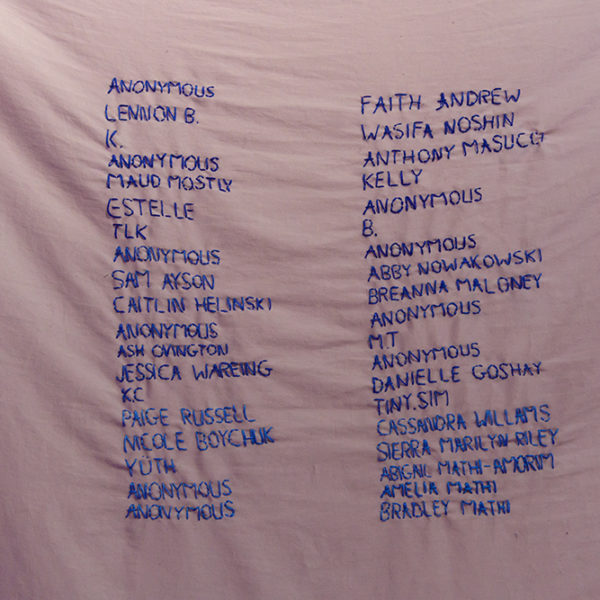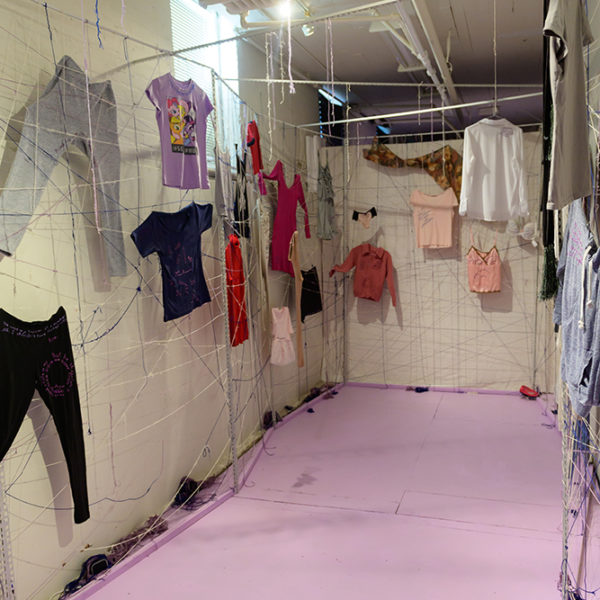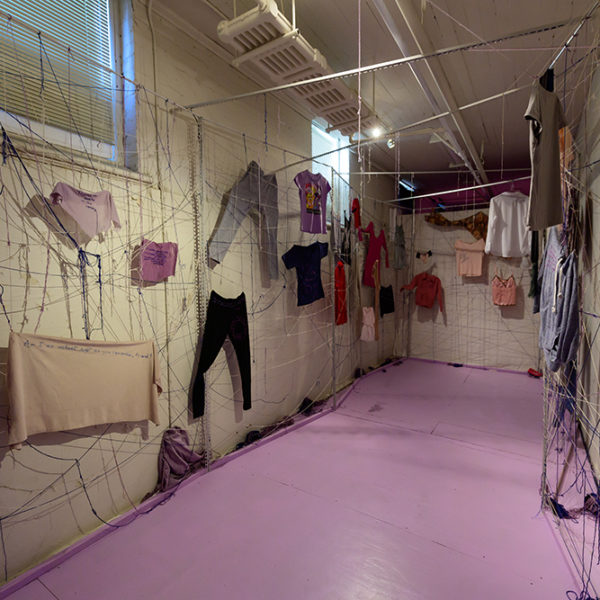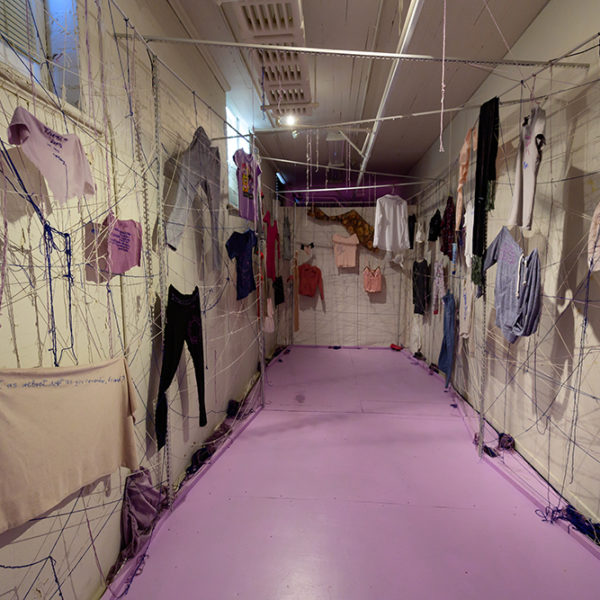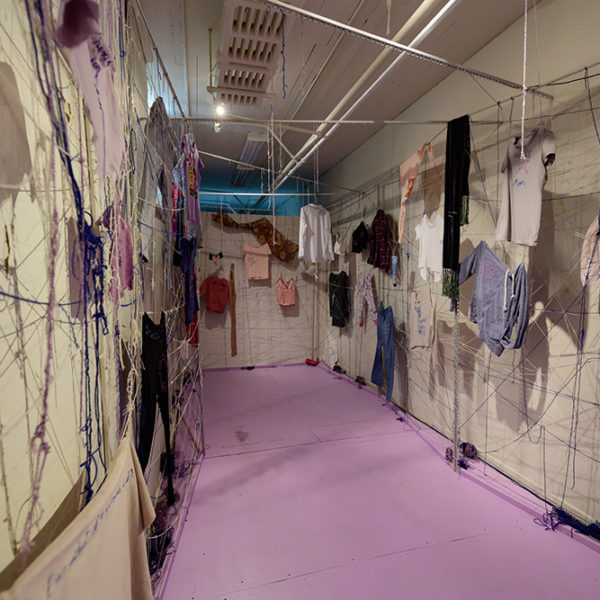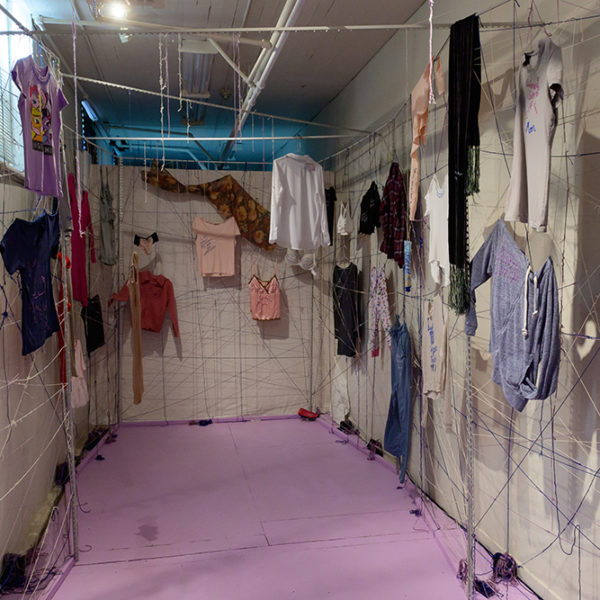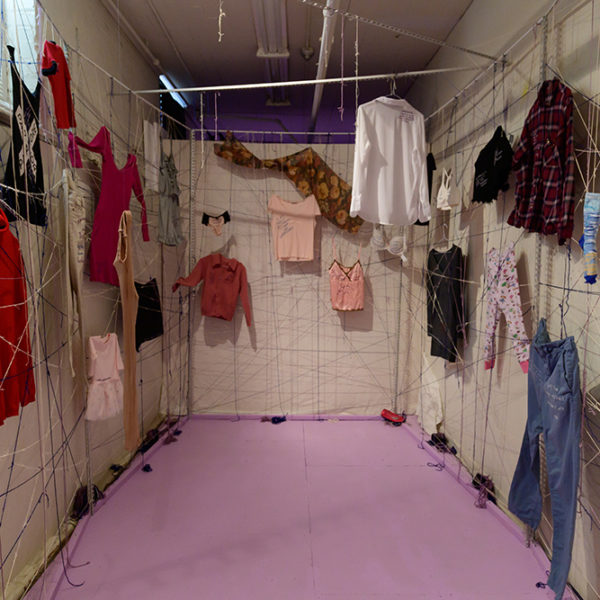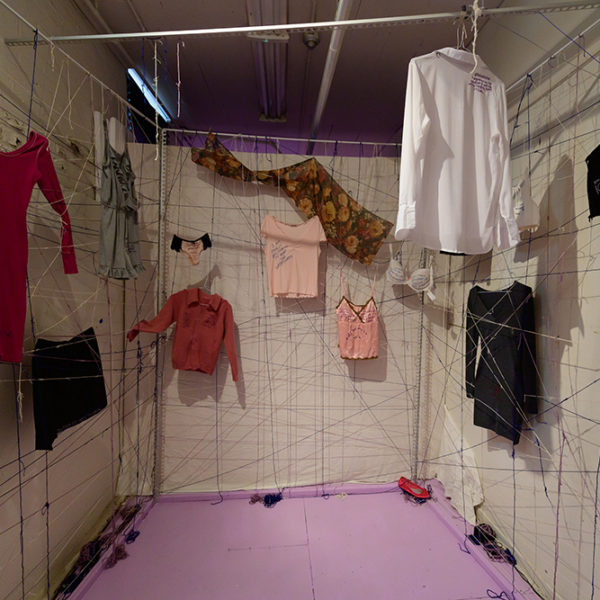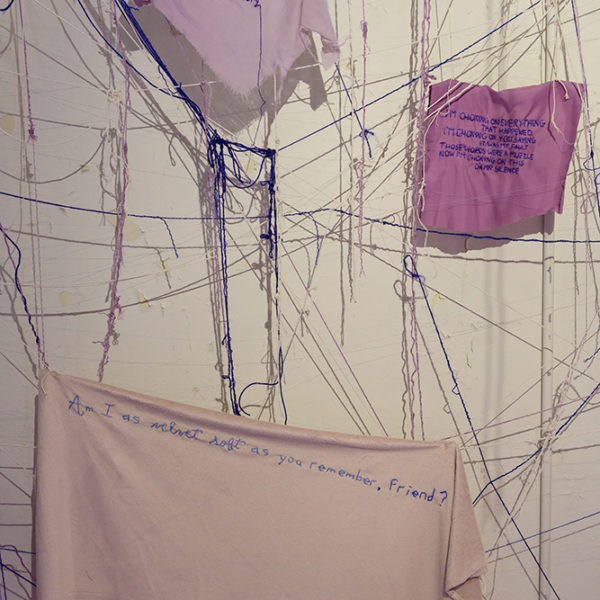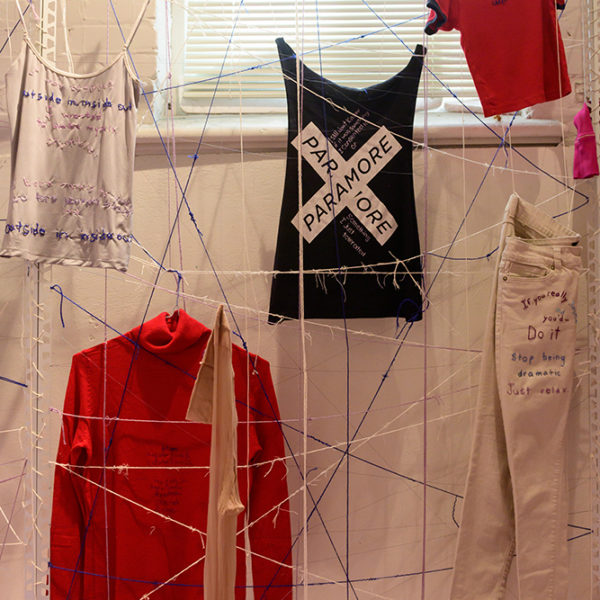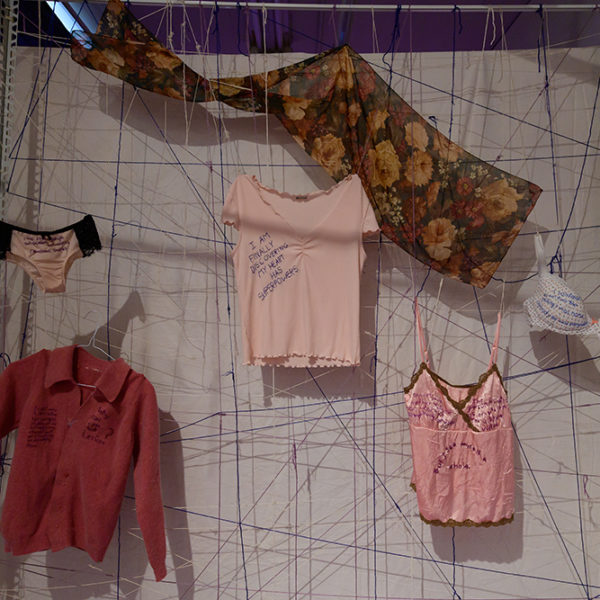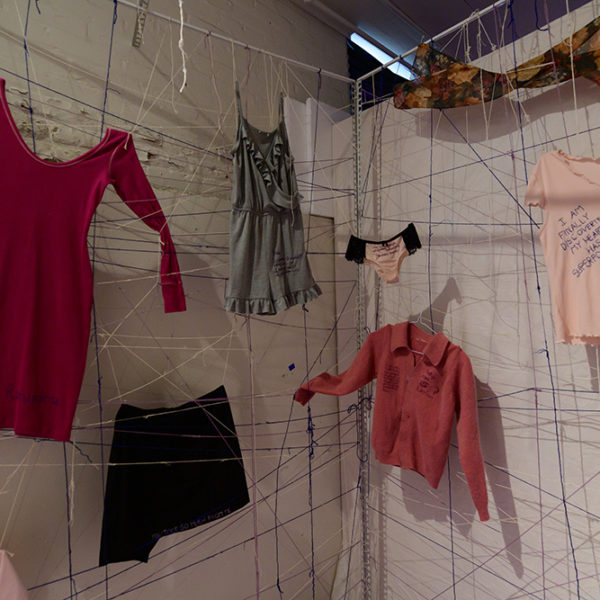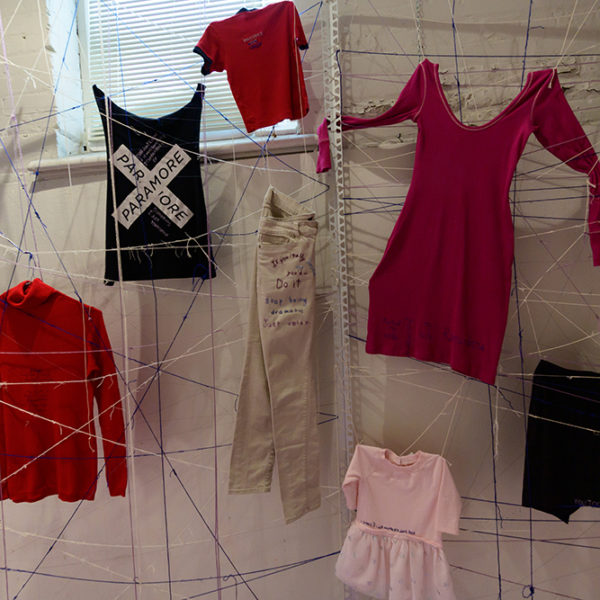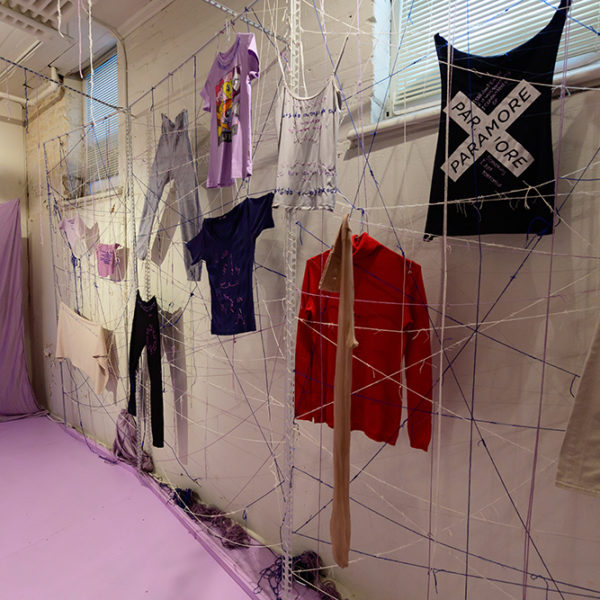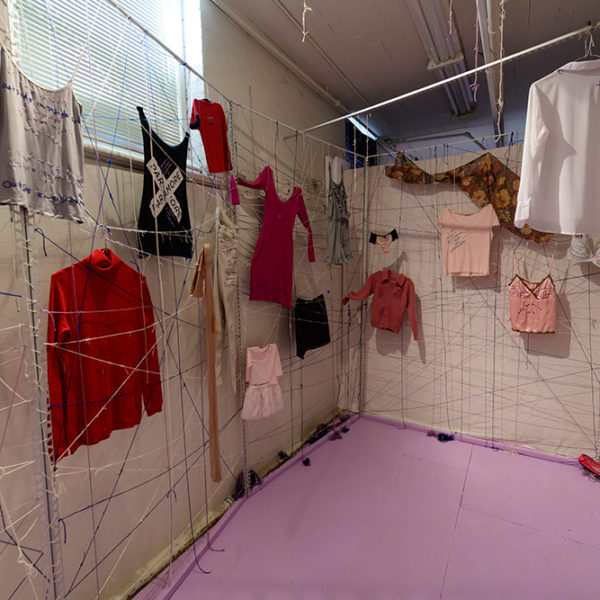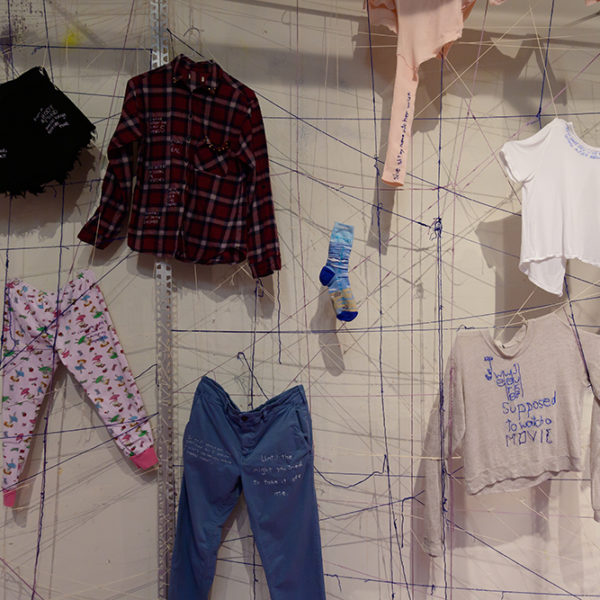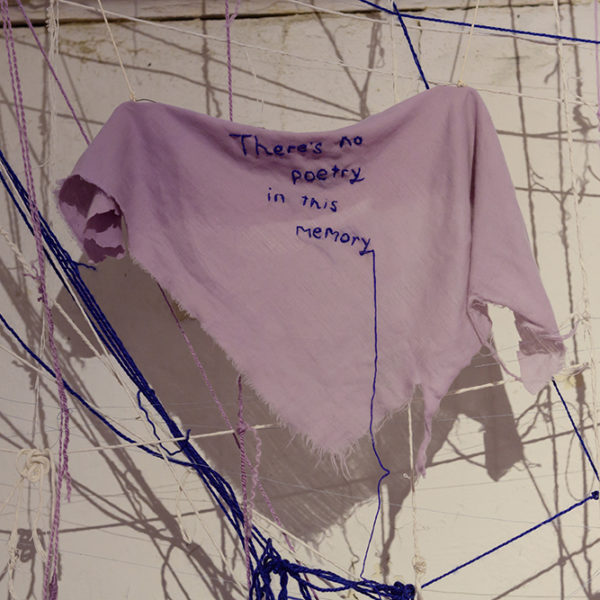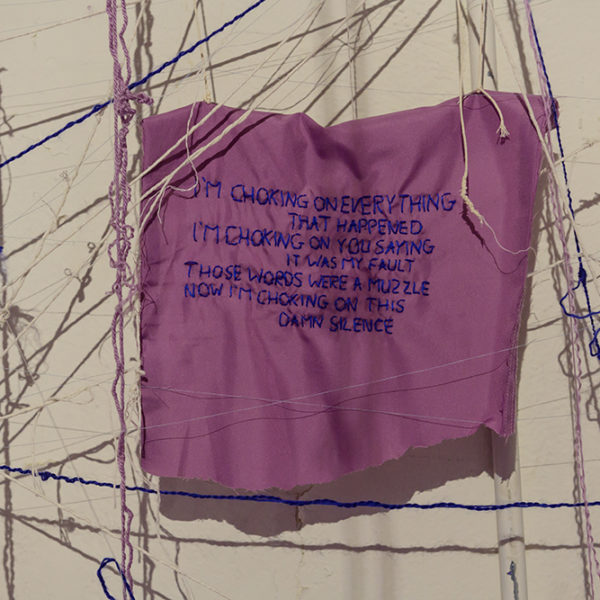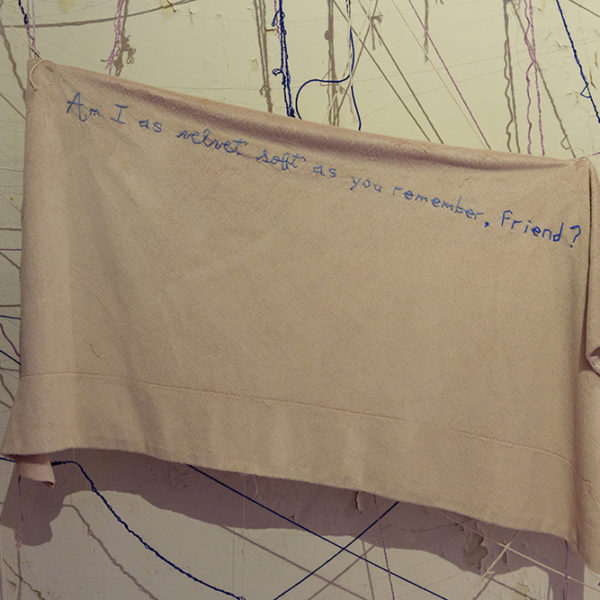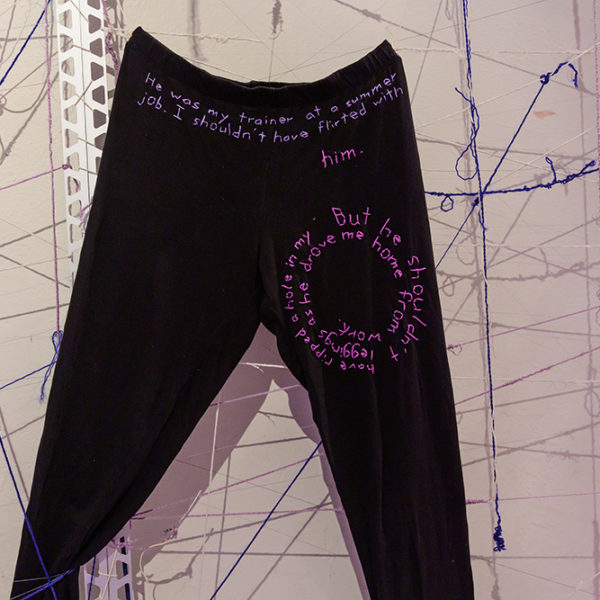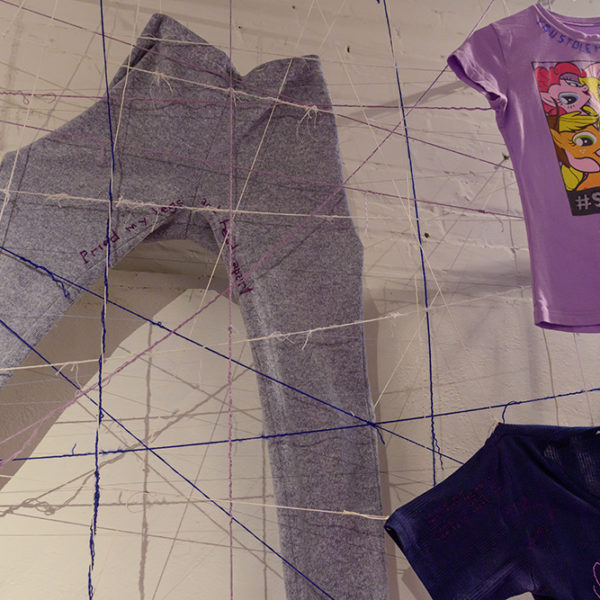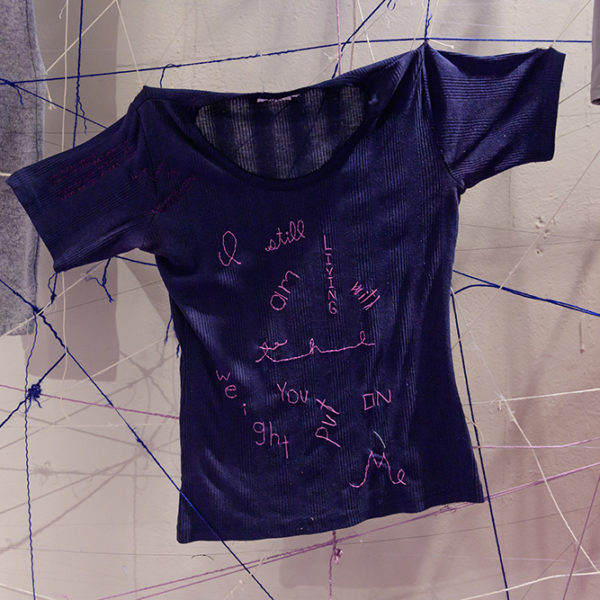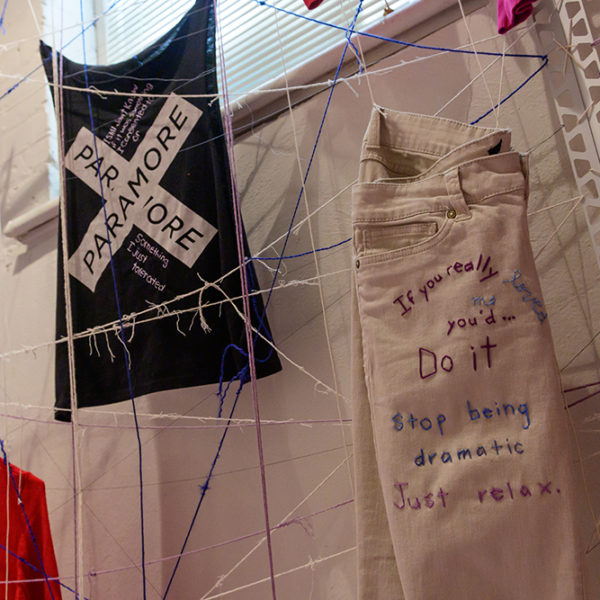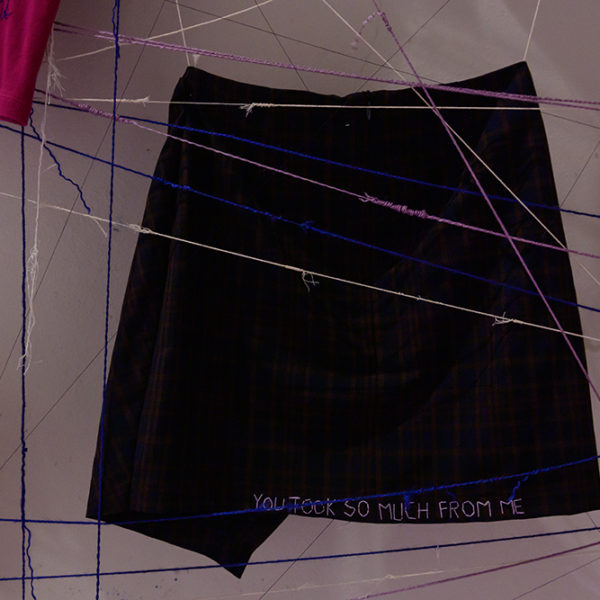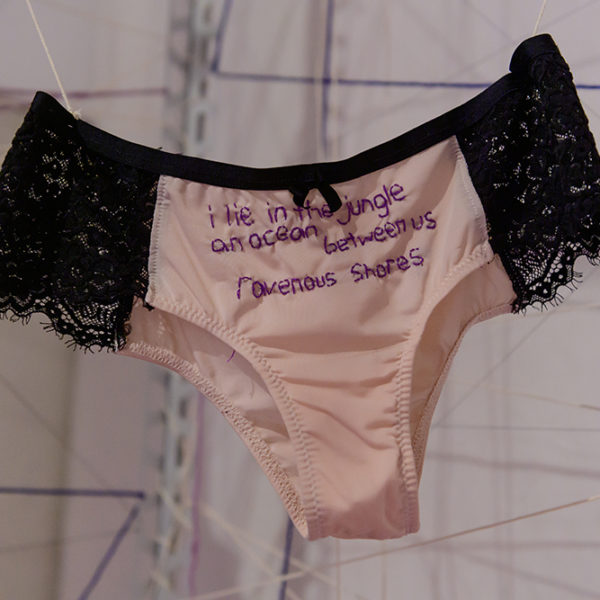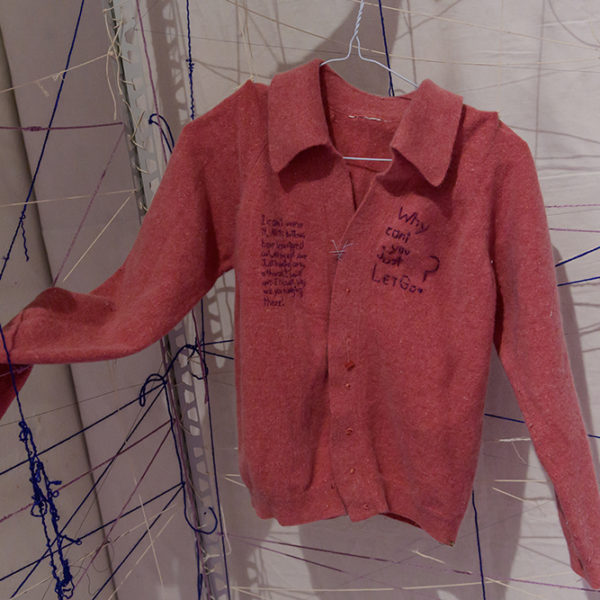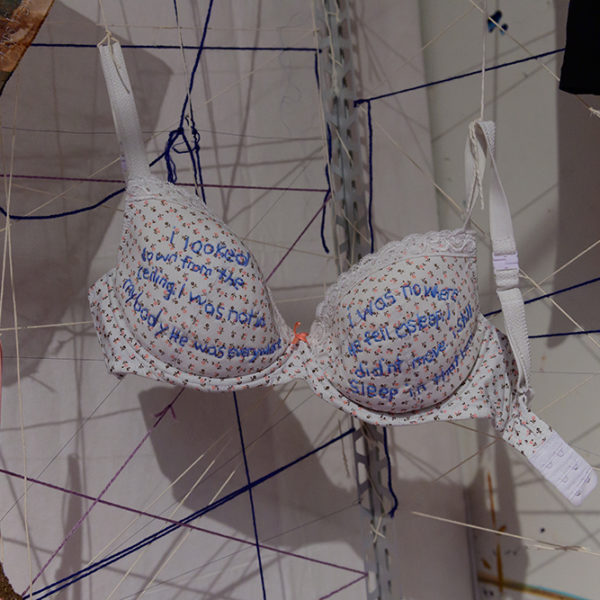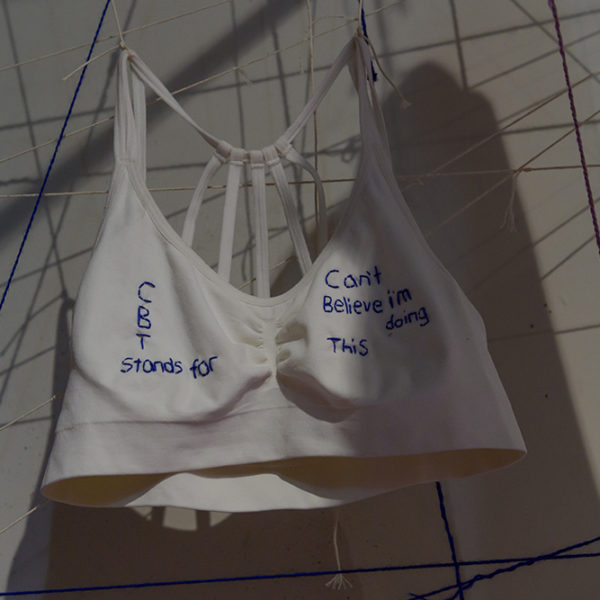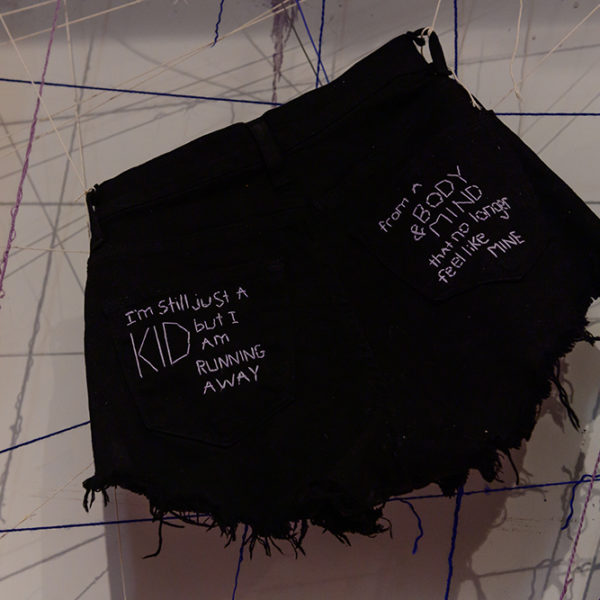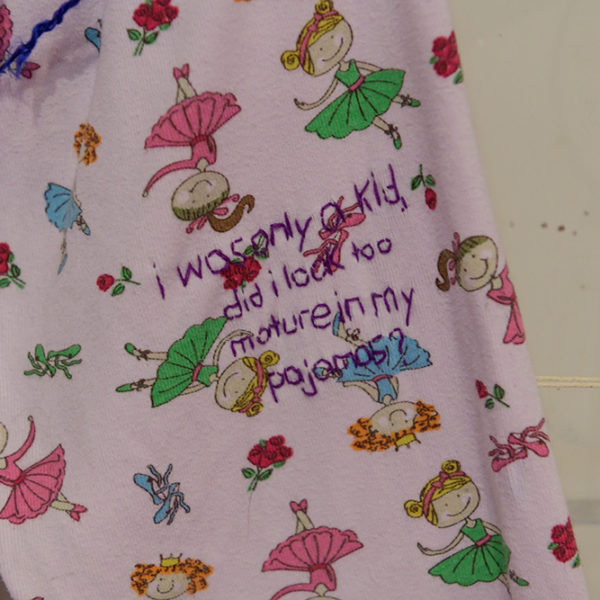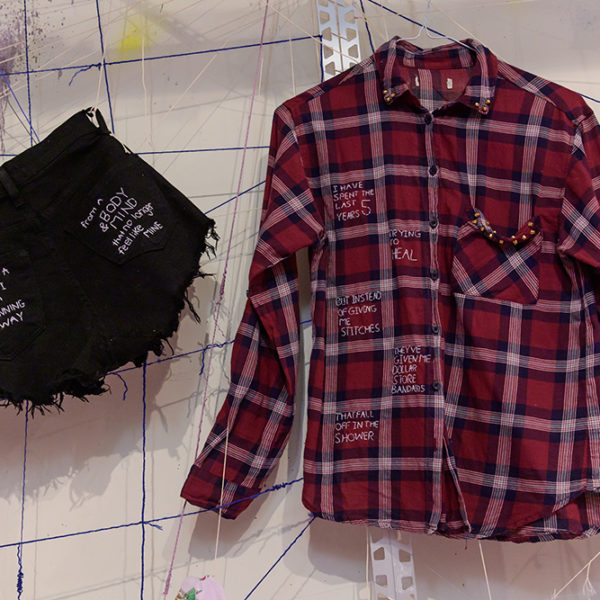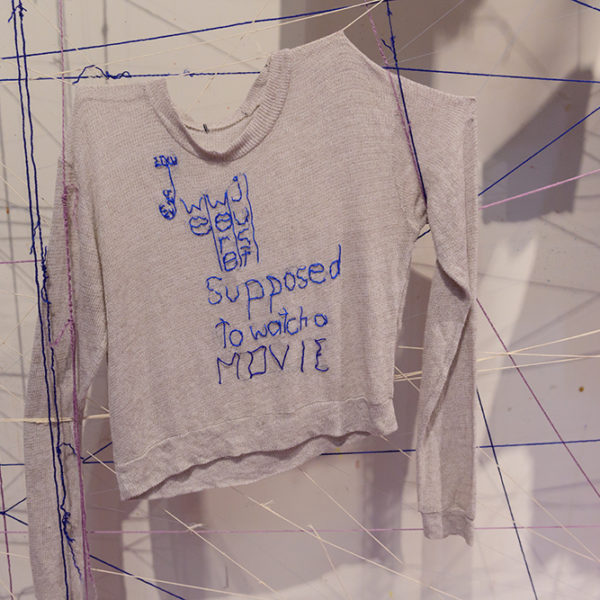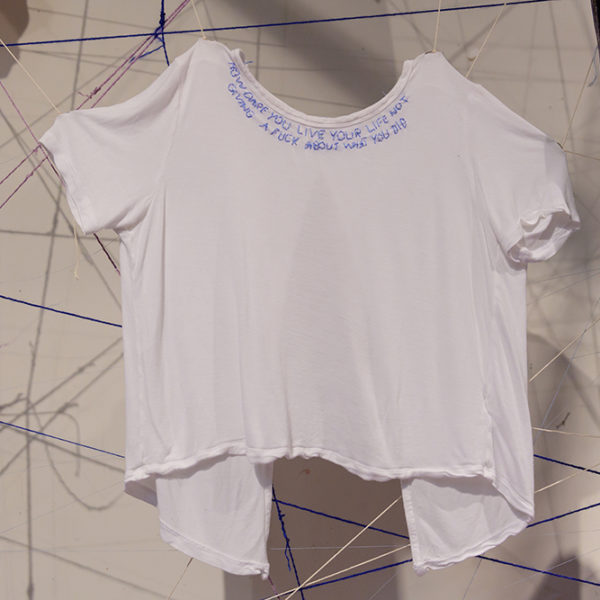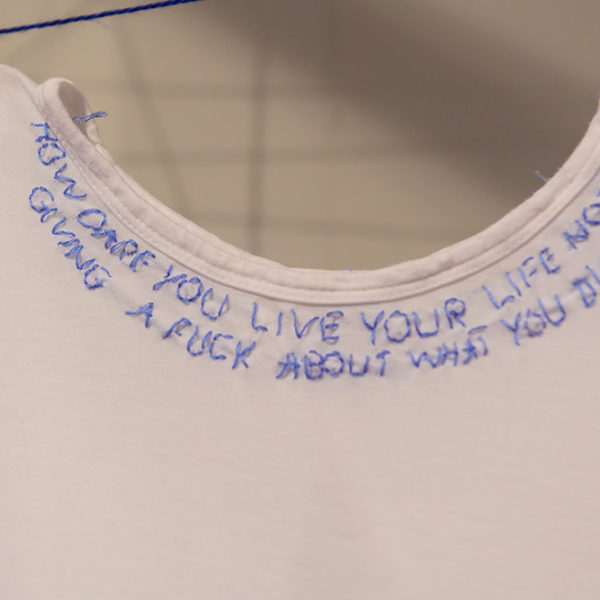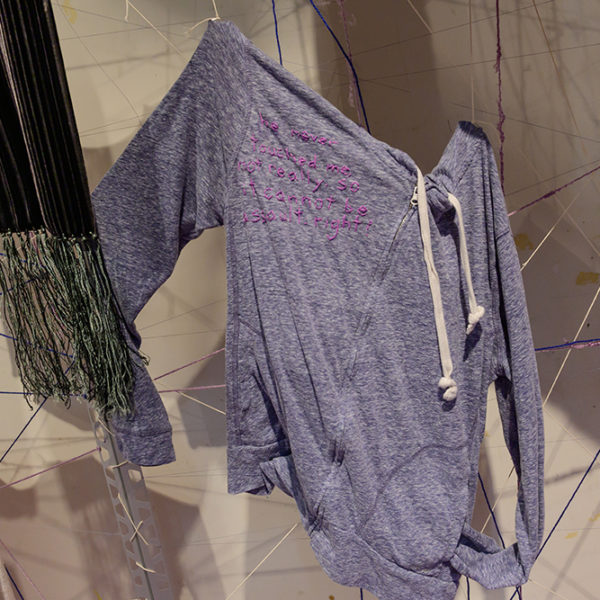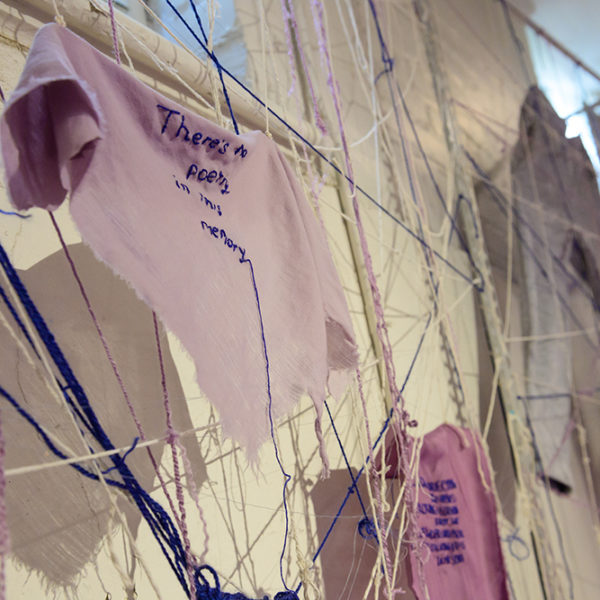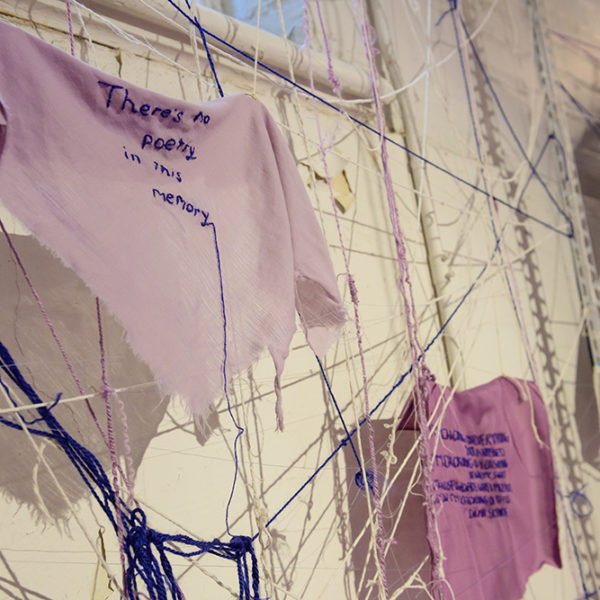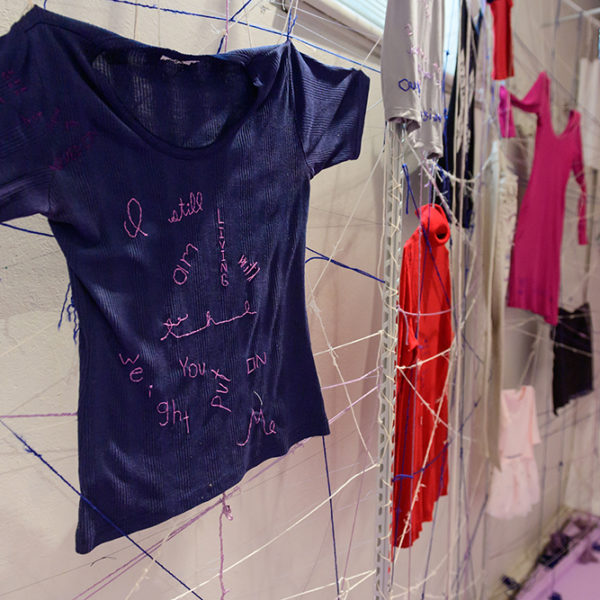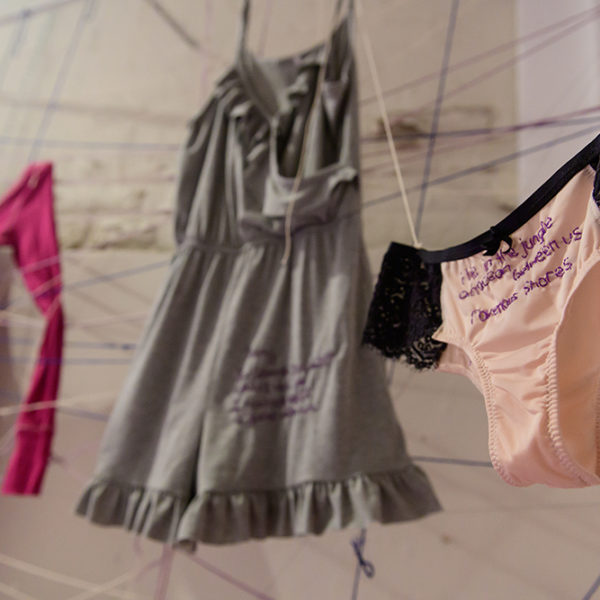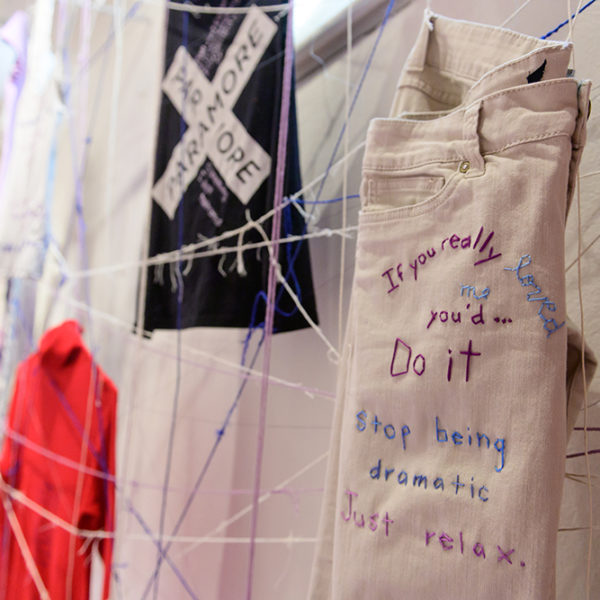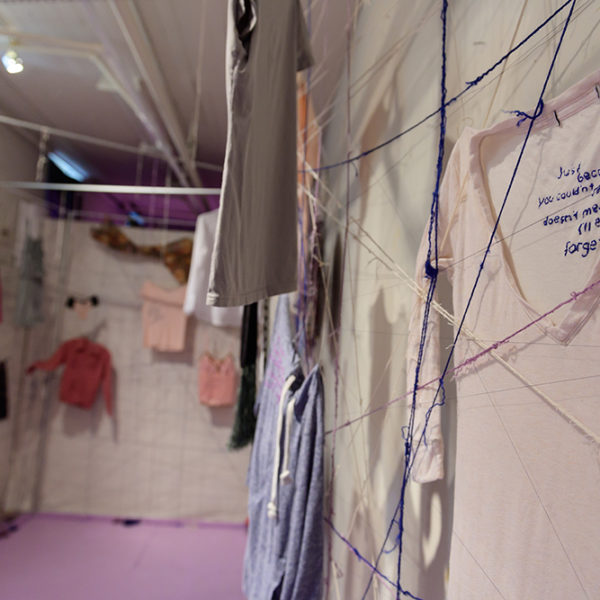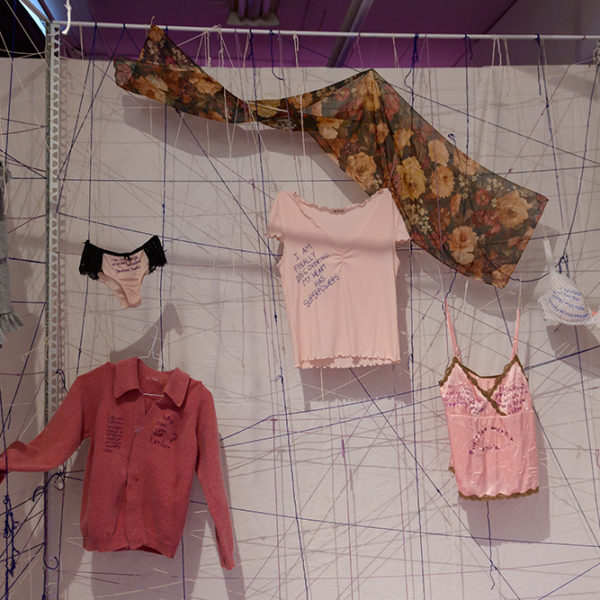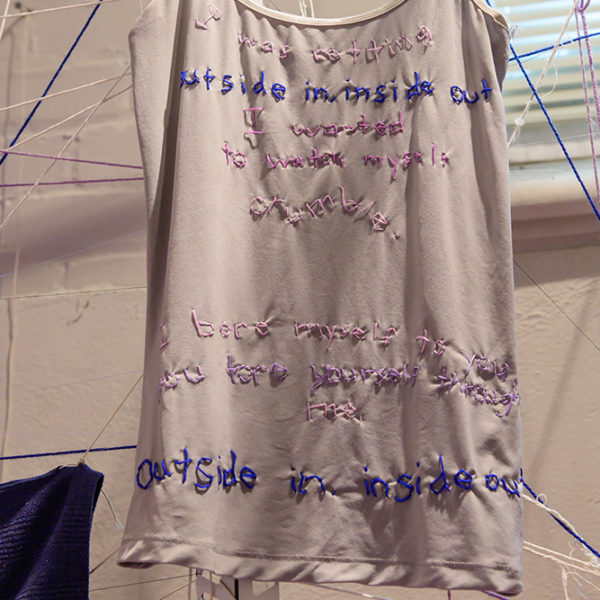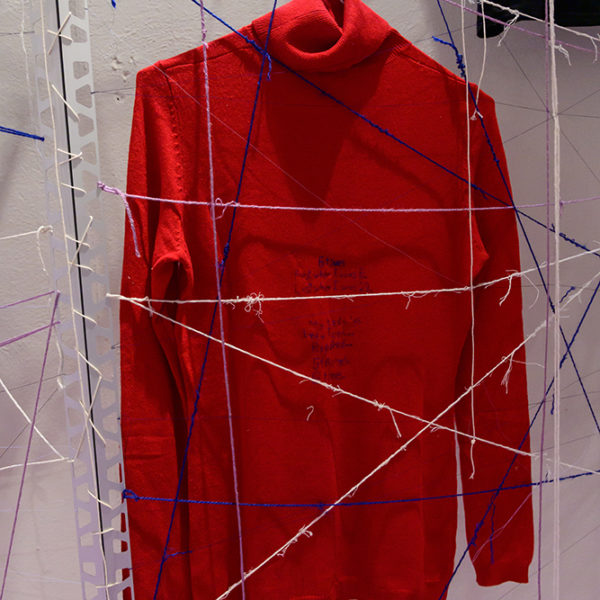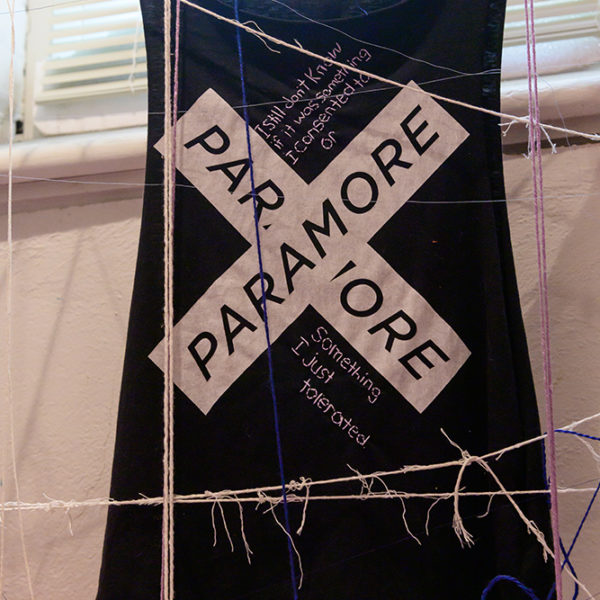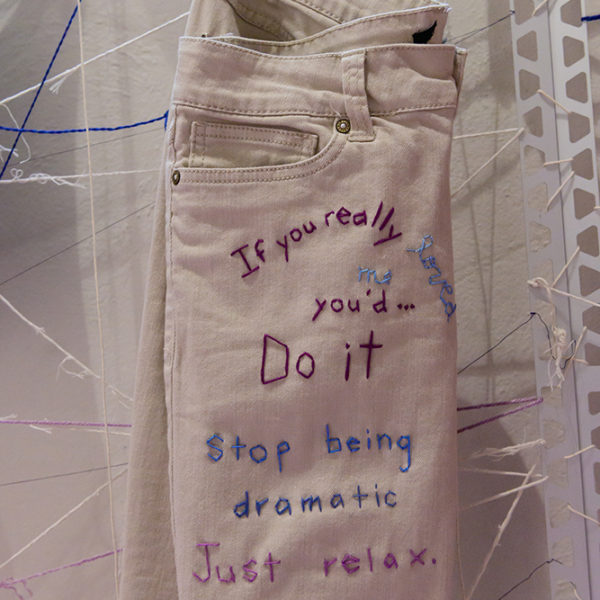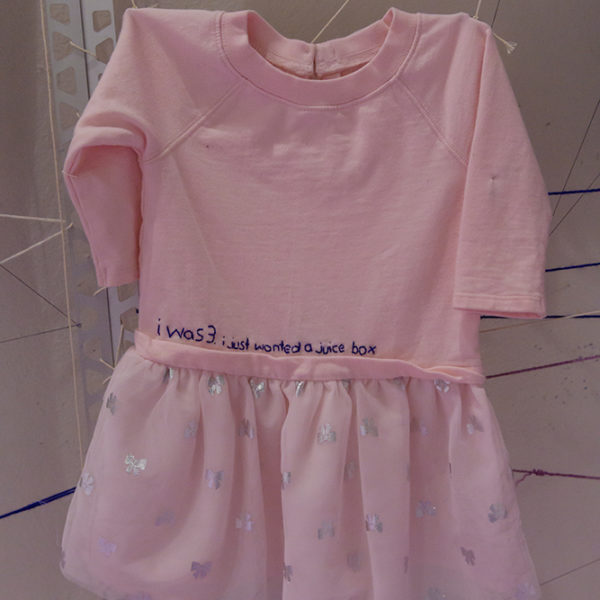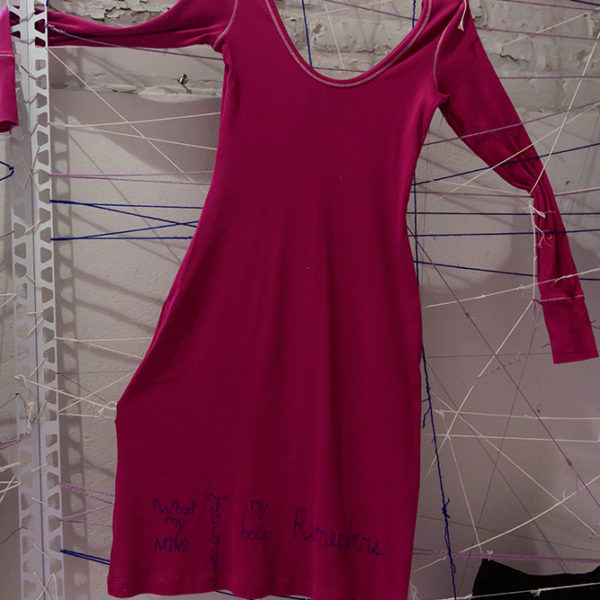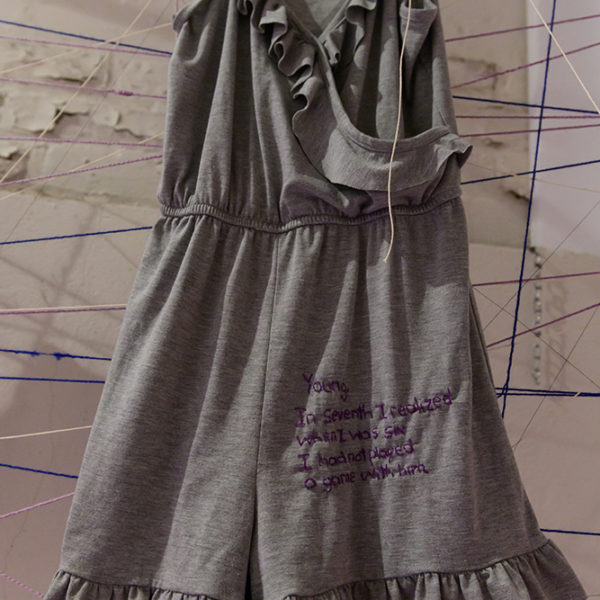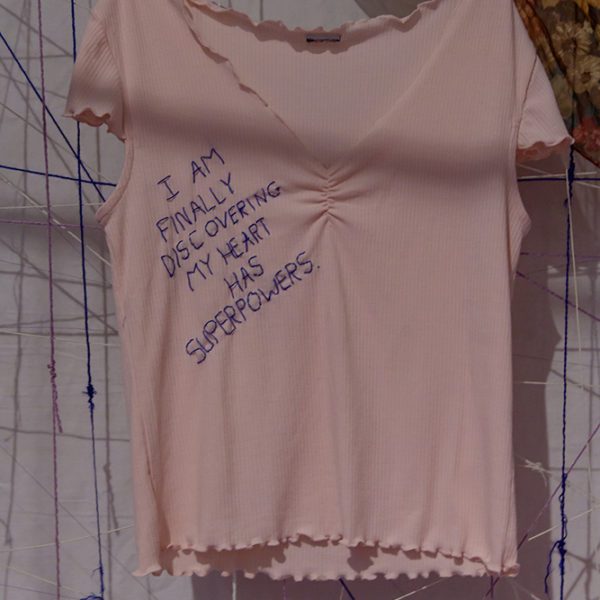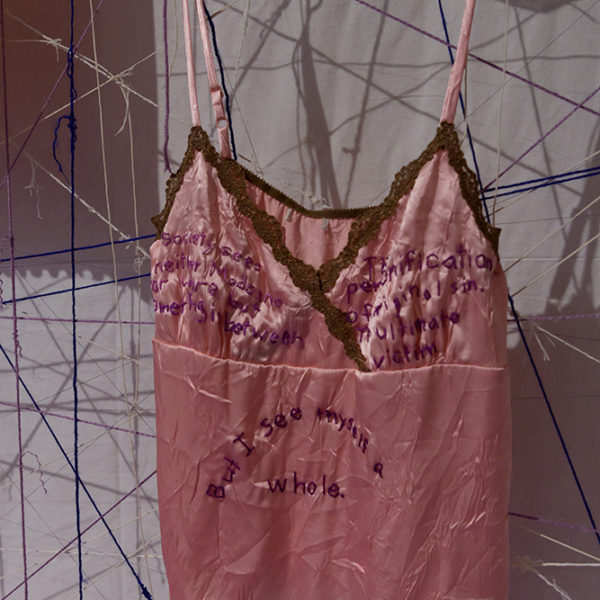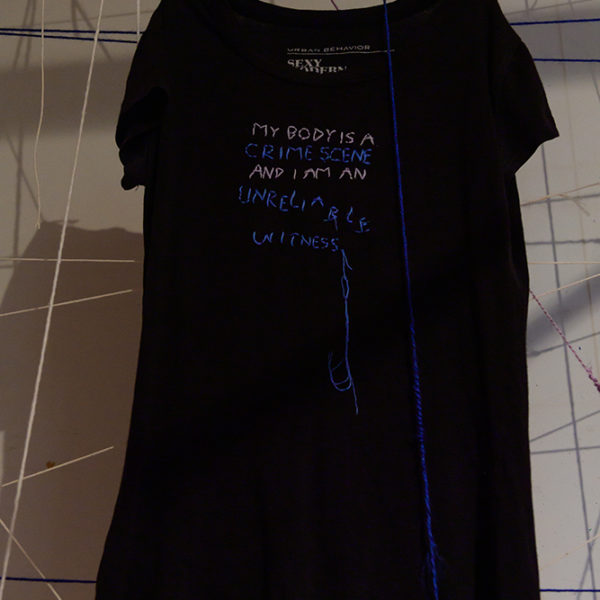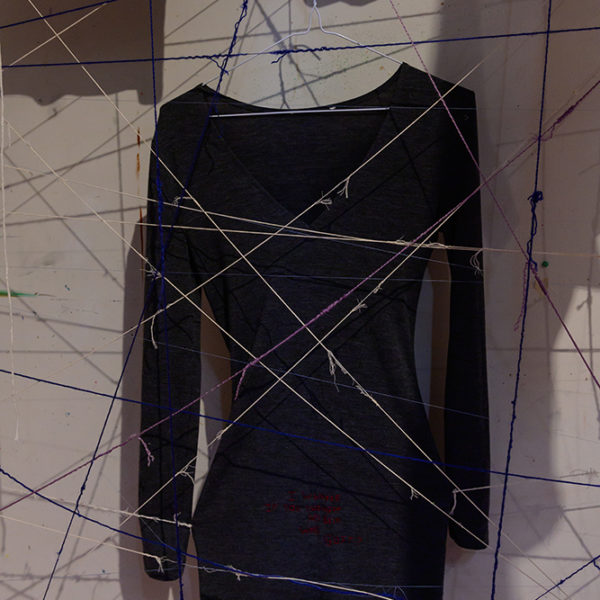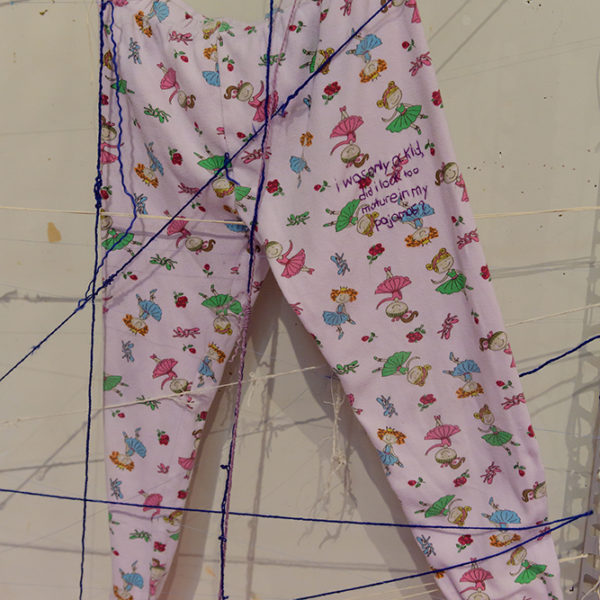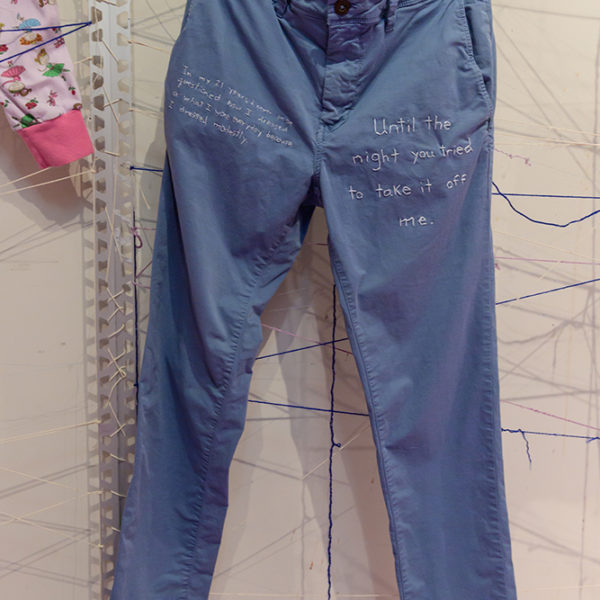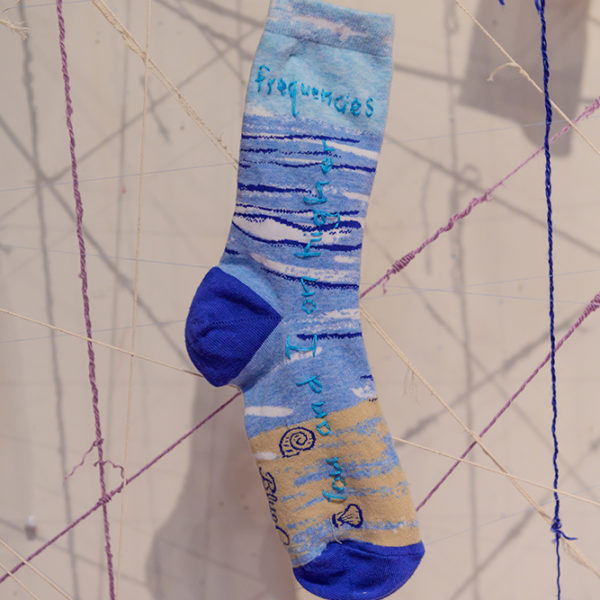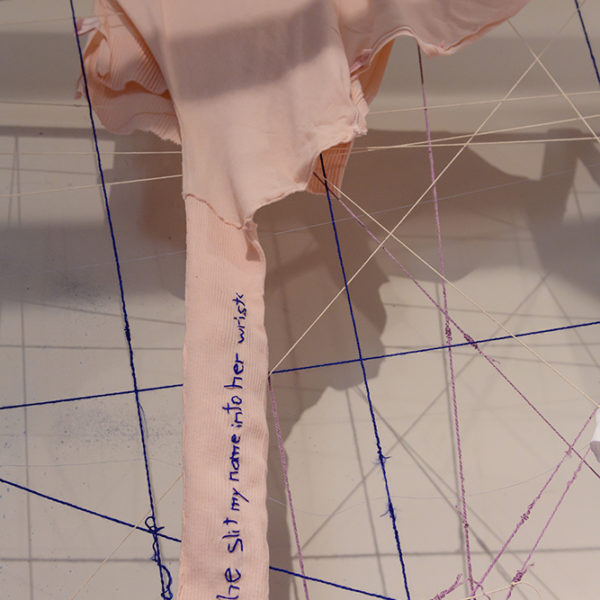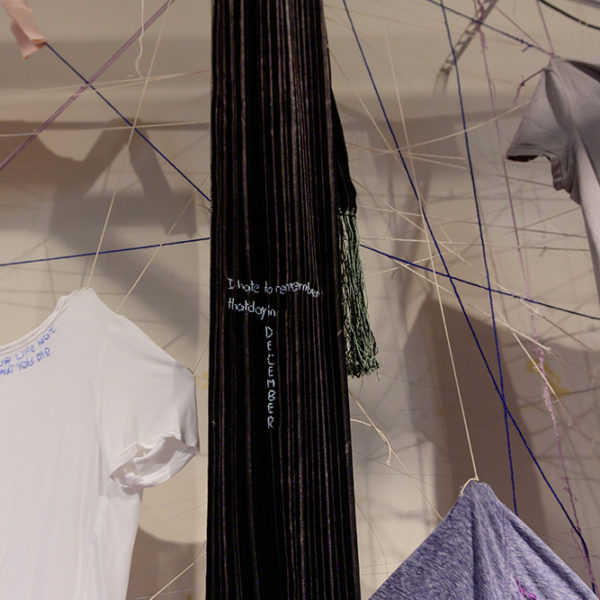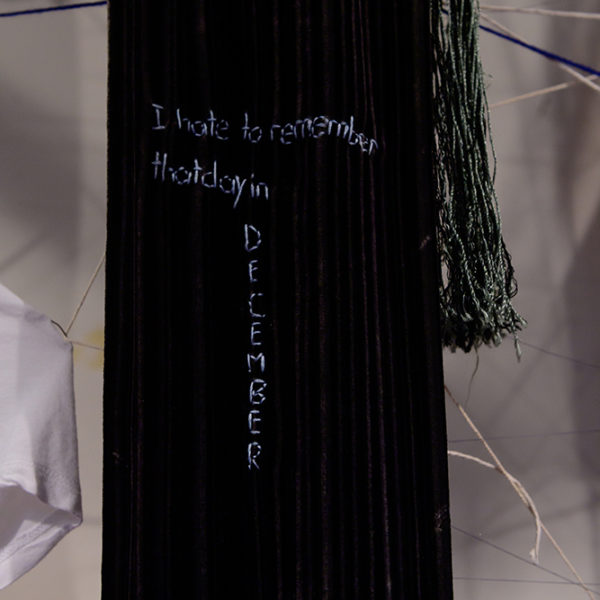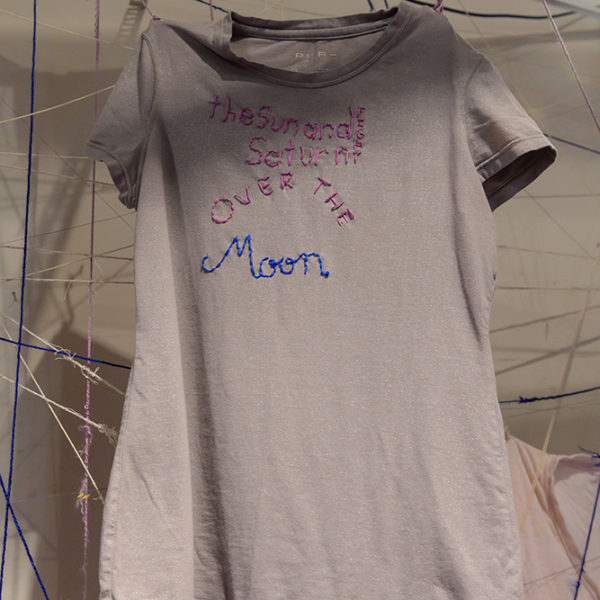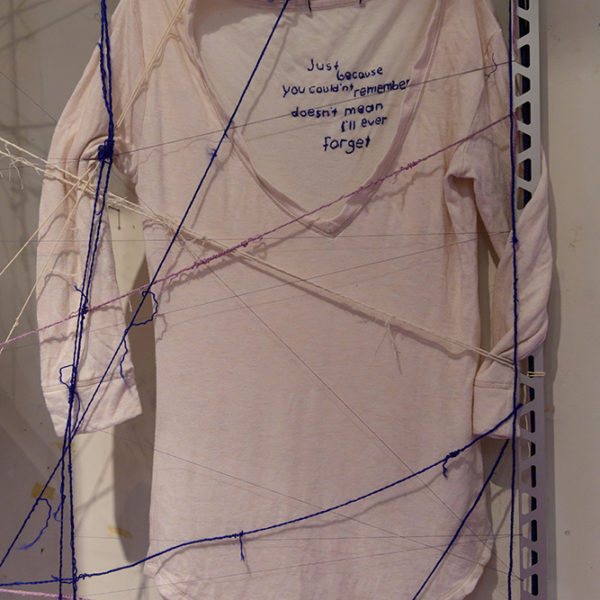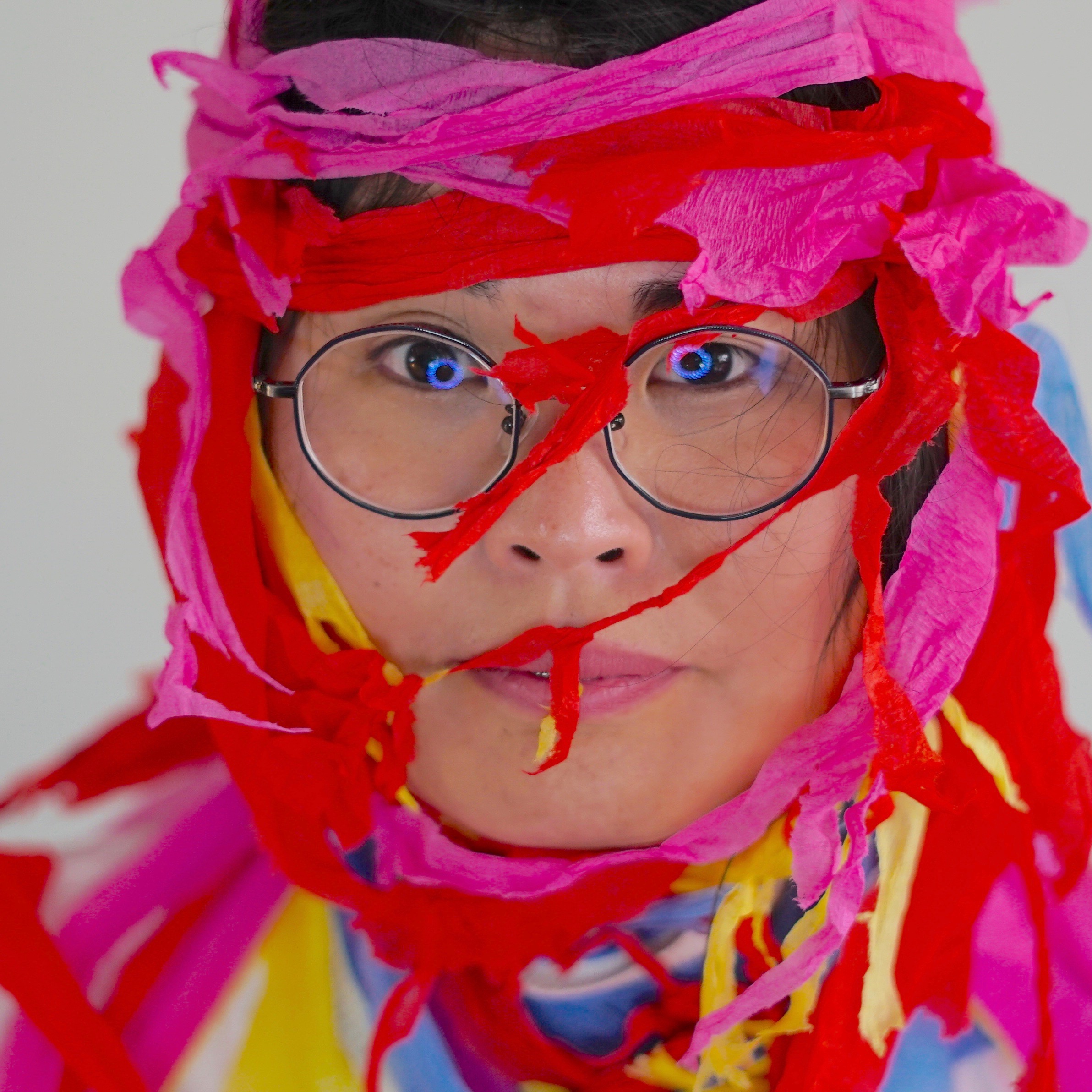
Creator: Laura Shintani / A/V: Grant Padley
GENRE: INSTALLATION, INTERACTIVE
TOPIC: ACTIVISM, ADDICTION, ANXIETY, BI-POLAR DISORDER(S), BIPOC EXPERIENCE, COMMUNITY, DEPRESSION, DISABILITY, FAMILY, HARM REDUCTION, LGBTQ2S+, PSYCHIATRY, SCHIZOPHRENIA, SEXUAL ASSAULT, SEXUAL VIOLENCE, SUICIDE, TRAUMA, YOUTH
Neuroelastic is a self-activated artistic performance. Taking a cue from the well-known concept of Dr. Norman Doidge’s neuroplasticity, it is inspiring that the mind can adapt in new ways. The artist imagined an idea; by wrapping oneself in streams of coloured synaptic “bandages” this symbolic act can allow thoughts and feelings to show on the outside. Using photography as documentation, a capture of the moment reveals what is hidden. This artwork of self-permission reflects on not only the unseen being seen, but that it can be changed. This collection of images I hope can read as a zany family album of the mind. Neuroelastic is an interior selfie and an invitation to an altered way of being.
Laura Shintani is a Toronto-based multimedia artist who creates work in order to provoke questions in artistic forms. Shintani represents a hybrid of work, art making, study and teaching. She is interested in seeing people embrace the cycle of creativity: playing, problem solving and reflecting. Raised in small-town Ontario, Shintani later studied fashion design at Ryerson University and received a degree from the University of Toronto. After personal discovery she made art a vocation and earned a Master of Fine Art from the University of Windsor. Shintani’s most significant exhibition was at the Royal Ontario Museum in 2019.
This artist has interactive materials which will be provided in the RWM swag bag in order to interact with their virtual content. All ticket holders will be invited to receive RWM swag bags available for free curbside pickup during festival hours.
Images of the Neuroelastic installation in Re:Building Resilience:
Photos by Henry Chang
Please Note: There is one virtual ticket available for the entire Re:Building Resilience Exhibition. Whether you’d like to see one project or all of them, you only need to book one ticket to access everything. The exhibition runs October 15-25, and all ticket purchasers will be sent a link to view the virtual content. Any ticket bought prior to October 15 will receive a follow up email on the 15th with the link.
ACCESSIBILITY
Self-Care Kits are available for free curbside pickup to ticket holders. Kits can be picked up from 651 Dufferin Street between the hours of 10AM-9PM, October 15-25. If pickup is not an accessible option for you, contact justina_zatzman@workmanarts.com for accommodation.
THIS PROJECT IS PART OF THE RE:BUILDING RESILIENCE EXHIBITION.
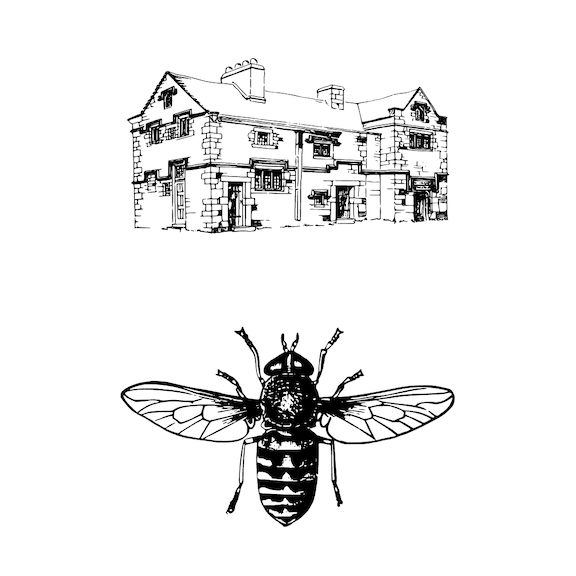
Lead Artist: Saba Akhtar
GENRE: INSTALLATION, MULTIMEDIA
TOPIC: ANXIETY, BIPOC EXPERIENCE, SCHIZOPHRENIA, TRAUMA
The Anatomy of A Home is a multi-media installation exploring a person’s relationship to home. Audiences are invited to walk through a blueprint of a house etched into the floor and observe the artifacts placed within. This is part of a larger performance project that explores Saba’s relationships to home and isolation, in her past and during COVID-19.
Special Thanks: Tijiki Morris & Jules Voderak-Hunter
Saba Akhtar is an interdisciplinary artist based in Toronto and raised in Houston, Texas. Her arts practice is focused on intergenerational trauma and grief. She exhibits this through multimedia design (installation, video, photo), playwriting and performance. Saba’s education has been heavily influenced by mentorship from peers and elders in her community. She has a deep passion for helping others share their story as well and has established a career in community-engaged arts as a facilitator and mentor in multiple organizations.
CONTENT WARNINGS
Violence
Images of the The Anatomy of a Home installation in Re:Building Resilience:
Photos by Henry Chang
Please Note: There is one virtual ticket available for the entire Re:Building Resilience Exhibition. Whether you’d like to see one project or all of them, you only need to book one ticket to access everything. The exhibition runs October 15-25, and all purchasers will be sent a link to view the virtual content. Any ticket bought prior to October 15 will receive a follow up email on the 15th with the link.
ACCESSIBILITY
Self-Care Kits are available for free curbside pickup to ticket holders. Kits can be picked up from 651 Dufferin Street between the hours of 10AM-9PM, October 15-25. If pickup is not an accessible option for you, contact justina_zatzman@workmanarts.com for accommodation.
ALSO OF INTEREST
THIS PROJECT IS PART OF THE RE:BUILDING RESILIENCE EXHIBITION.
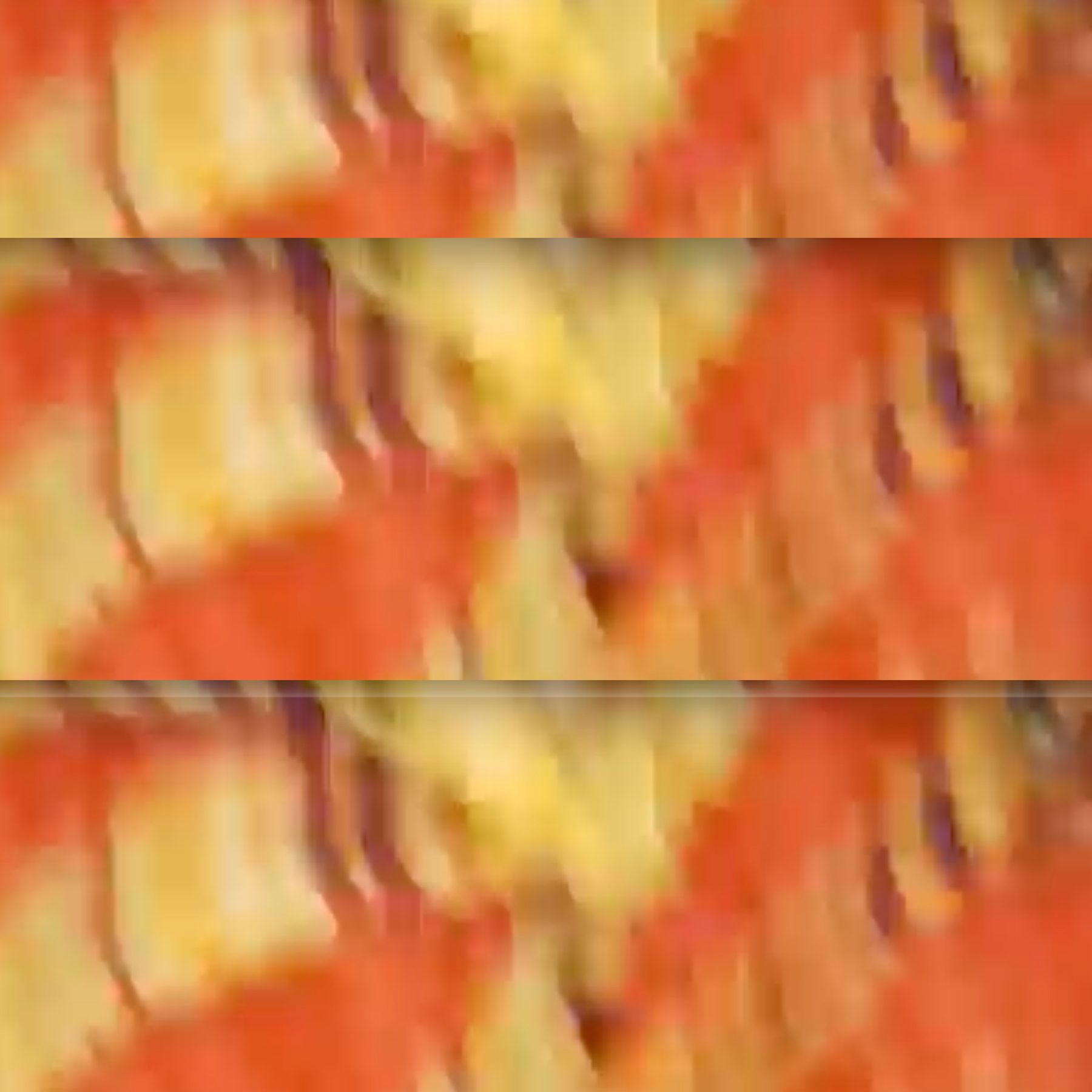
Creator: Grey K P Muldoon
GENRE: VISUAL ART
TOPIC: AUTISM, DISABILITY, TRAUMA
A colourful video projection onto a soft surface, marks the entrance to the installations – a suggestion that the guest, following the arrows, is entering a carnival fun house. A series of drifter dance documentations using hand motions and body movements to respond to and amplify the patterns of found carpets. Taken in the semi-public passageways of hotels— it explores the interpolation of class and the end of conference culture. An act of resiliency, and taking nothing for granted: watching a sunset from a goldfish bowl, spun on a ride at a carnival, your body stays still below, by becoming a blizzard, in an inside out forest. The project celebrates itinerancy of artists, mad folks and other portable persons.
Grey Muldoon (they/them) is a movement artist working primarily out of Toronto / Tkaronto and Halifax / Kjipuktuk. Grey is disciplined in performance and puppetry arts and makes immersive sculptural installations. A proud Workman Arts member, Grey is interested in close observation, picking things up and carrying them gently, and collaborating with clear-voicing and shout-noisilying. Their experience of rare cognitive relational vibrance, a.k.a. Autism, of survival system sensitivity and subtle time injuries, a.k.a complex PTSD, and the discovery of practical imagination technologies via crisises, a.k.a Madness, allows them to make their work.
Images of the Mad Carpets – Hotel Carpet Dance Projections installation in Re:Building Resilience:
Photos by Paulina Wiszowata
Please Note: There is one virtual ticket available for the entire Re:Building Resilience Exhibition. Whether you’d like to see one project or all of them, you only need to book one ticket to access everything. The exhibition runs October 15-25, and all ticket purchasers will be sent a link to view the virtual content. Any ticket bought prior to October 15 will receive a follow up email on the 15th with the link.
ACCESSIBILITY
Self-Care Kits are available for free curbside pickup to ticket holders. Kits can be picked up from 651 Dufferin Street between the hours of 10AM-9PM, October 15-25. If pickup is not an accessible option for you, contact justina_zatzman@workmanarts.com for accommodation.
كاغذ پاره ها
- Available to stream online: Fri, Oct 23, 7:00pm to Sun, Oct 25, 7:00pm
- اکران آنلاین: جمعه، ۲۳ اکتبر، ساعت ۱۹۰۰ تا یکشنبه، ۲۵ اکتبر، ساعت ۱۹۰۰
- Virtual panel/Q&A: Sun, Oct 25, 7:00pm
- گفتگوی آنلاین/ جلسه پرسش و پاسخ: یکشنبه، ۲۵ اکتبر، ساعت ۱۹۰۰
Streaming of this film is only available to viewers in Canada. Virtual Q&A is available worldwide.
اکران آنلاین این فیلم فقط برای ساکنین کانادا ممکن می باشد. جلسه ی پرسش و پاسخ مجازی برای همگان قابل دسترسی است.
Behzad Nalbandi / 2019 / Farsi with English subtitles / Iran / 62 min / North American Premiere
بهزاد نعلبندی / ۲۰۱۹ / فارسی با زیرنویس انگلیسی / ایران / دقیقه / نخستین اکران آمریکای شمالی
GENRE: ANIMATED, DOCUMENTARY
TYPE: FILM
In preparation for visits from foreign dignitaries, the authorities in Tehran clear the streets of homeless people, sex workers and drug users. Those who get picked up are taken to special detention centers outside the city. Stripped of their rights, dignity and freedom, the authorities hold them there until the outside world’s eyes are directed elsewhere. Then the men are released to go back out onto the streets. But the women are not: instead, they become official state prisoners for life. First time feature film Director Behzad Nalbandi found ways around the official channels and gained access to one of the women’s prisons, where he used a sound recorder to document the harrowing stories of its inmates. Utilizing original stop-motion animation to illustrate the accounts of violence, humiliation, poverty and addiction, as well as the Director’s own impressions of the bleak detention center. Such inventive animation allows Nalbandi to offer these “invisible” women a platform without exposing their identity. What this powerful five-years-in-the-making documentary does reveal is the grim reality concerning the position of women in Iranian society—and these women in particular.
برای بازدید های مقامات عالی رتبه خارجی، مسئولان شهرداری تهران خیابان های شهر را از بی خانمان، کارگران جنسی و معتادان پاکسازی و بازداشت شدگان را به مکانی خارج از شهر انتقال می دهند. محروم از حقوق، عزت و آزادی خود مسئولین آنها را در این اماکن نگه می دارند تا زمانی که دنیای بیرون توجهش معطوف چیز دیگری شود. سپس، مردان آزاد می شوند اما زنان می مانند و تبدیل به زندانیان حکومت برای طول عمرشان می شوند. بهزاد نعلبندی با اولین فیلم بلند خود، به یکی از این زندان های زنان دسترسی پیدا کرده و با استفاده از دستگاه ضبط صدا داستان های دلخراش زندانیان را مستند کرده است. با به کارگیری خلاقانه از تکنیک استاپ موشن، این مستند–انیمیشن وضعیت خشونت، تحقیر، فقر و اعتیاد را در این اماکن به تصویر می کشد. فیلمساز با انتخاب نوآورانه متریال و تکنیک متناسب با موضوع فیلم، فضایی را برای حضور این زنان “نامرئی“، بدون فاش شدن هویت شان فراهم می کند. این فیلم مستند تاثیر گذار که تولید آن ۵ سال طول کشیده است موقعیت ظالمانه و تلخ زنان را در جامعه ایران و بخصوص این زنان زندانی را نمایان می کند.
ACCESSIBILITY
ASL Interpreted, Open Captions, Active Listener
An Active Listener will be available Sun, Oct 25 from 7-9pm to support this program.
Your active listener for this program is Kat.
You can connect with Kat by phone (talk or text) at (647) 474-2338 or by email at katrissing@gmail.com.
CO-PRESENTED WITH
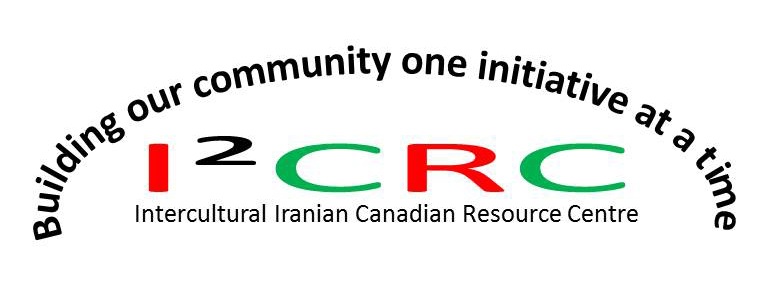
JOIN THE CONVERSATION
Following the screening of The Unseen, join us for a virtual panel with graphic artist and documentary filmmaker Behzad Nalbandi to discuss the addiction crisis in Tehran and the harsh realities of the city’s homeless population. Moderated by representatives from the Intercultural Iranian Canadian Resource Centre.
:در گفتگو همراه شوید
بعد از اتمام اکران فیلم، با ما و هنرمند گرافیست و فیلمساز بهزاد نعلبندی همراه شوید تا بیشتر درباره ی بحران اعتیاد در تهران و واقعیت های سخت جمعیت بی خانمان های شهر بحث و گفتگو کنیم. این جلسه مجازی توسط نمایندگانی از مرکز فرهنگ ایرانی– کانادایی (Intercultural Iranian Canadian Resource Centre) مدیریت می شود.
ALSO OF INTEREST
THIS PROJECT IS PART OF THE RE:BUILDING RESILIENCE EXHIBITION.
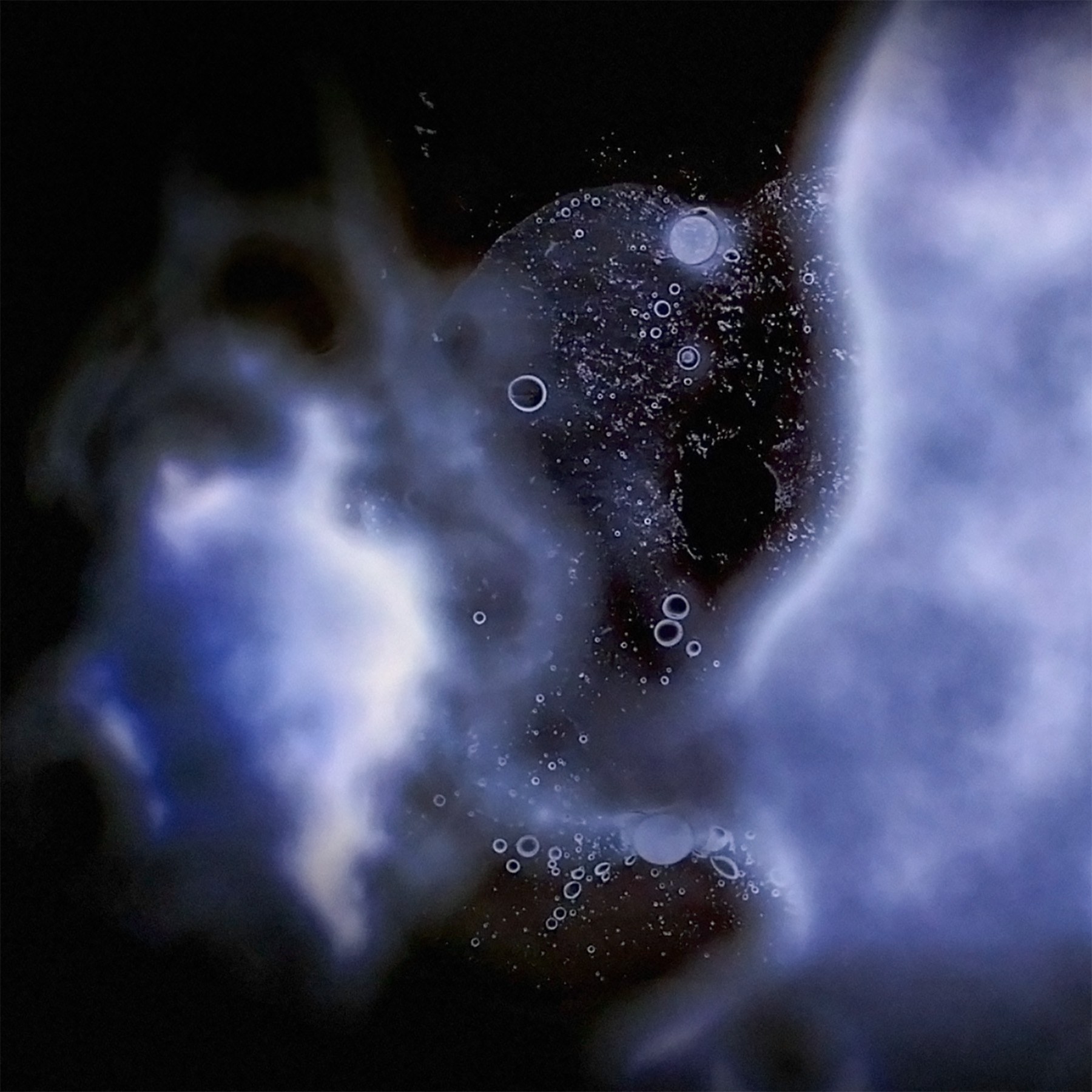
Creator: Megan Moore
GENRE: INSTALLATION, MEDIA ART, VISUAL ART
TOPIC: PSYCHIATRY, TRAUMA
Ectoplasm would leak from psychic mediums during photography sessions as a manifestation of the spirit entering the physical world. Expulsion often caused great pain to the psychic mediums creating it. At times the substance was solid and would take the shape of a face or body parts, while at other times it was fluid and contained imagery of spirits or memories. Ectoplasms is a multi-channel video installation that depicts the decay and dripping of photographs. The images initially seem static, but they begin to move around the viewer in ways that defy gravity and orientation. As the viewer tries to place the imagery, they grapple with its disappearance.
Megan Moore is a Montreal-based media artist. Through the manipulation of personal and public archives, her immersive photo and video installations offer reflections on memory, grief and the photographic medium. Megan has exhibited in Canada (FOFA Gallery, Orillia Museum of Art and History, Toronto Media Arts Centre) and Europe (Maison de la Photographie, France, Ulster Museum, UK.) In 2015 she won the Montreal Emerging Photographer award. Megan holds a BFA in Photography from Concordia University and an MFA in Studio Arts from the University of Guelph.
Images of the Ectoplasms installation in Re:Building Resilience:
Photos by Henry Chang
Please Note: There is one virtual ticket available for the entire Re:Building Resilience Exhibition. Whether you’d like to see one project or all of them, you only need to book one ticket to access everything. The exhibition runs October 15-25, and all purchasers will be sent a link to view the virtual content. Any ticket bought prior to October 15 will receive a follow up email on the 15th with the link.
ACCESSIBILITY
Self-Care Kits are available for free curbside pickup to ticket holders. Kits can be picked up from 651 Dufferin Street between the hours of 12PM-9PM, October 15-25. If pickup is not an accessible option for you, contact justina_zatzman@workmanarts.com for accommodation.
Megan Moore will be participating in the virtual panel discussion Spectral Spaces: Re-animating Historical Environs through Current Feminist Discourse on October 20, at 12 PM. Click here to book a ticket.
ALSO OF INTEREST
THIS PROJECT IS PART OF THE RE:BUILDING RESILIENCE EXHIBITION.
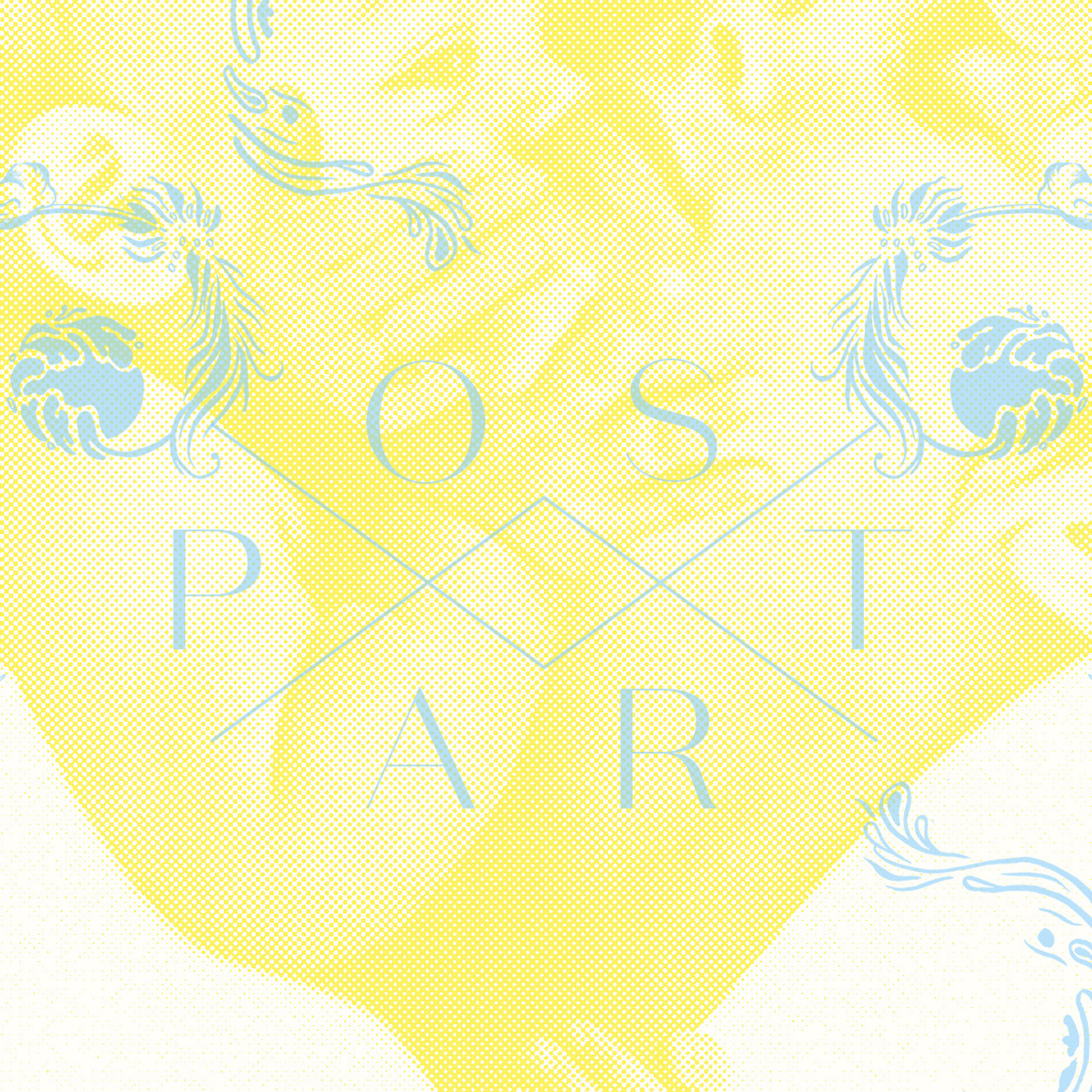
Lead Artist: Catherine Mellinger / Director: Pazit Cahlon / Illustrator and Content Creator: Nat Janin / Sound Design: Adam Harendorf
GENRE: INSTALLATION, MULTIMEDIA, VISUAL ART
TOPIC: ANXIETY, COMMUNITY, DEPRESSION, FAMILY, TRAUMA
Post-Part is a room within a room installation that draws on the short story “The Yellow Wallpaper” by Charlotte Perkins Gilman, Barbara Ehrenreich, the modern collage movement and the RGB innovation of Carnovsky. Post-Part re-imagines a 19th century-style brocade wallpaper pattern incorporating “hidden” illustrations, collage elements and sensor-triggered audio, to bring to life the experience of postpartum mood disorders, including postpartum psychosis. Handheld cellophane filters reveal collage compositions hidden within the wallpaper, and the viewer’s proximity to the wall triggers audio recordings of women’s testimony as well as “cures” prescribed in the 19th and 20th centuries.
Longernin Collective formed to create the installation work, Post-Part. Drawing on combined experiences in illustration, animation, writing, film, collage and art therapy work, the members’ individual works have been exhibited, published and screened to audiences locally and globally.
Longernin Collective would like to acknowledge funding support from the Ontario Arts Council, an agency of the Government of Ontario.

Images of the Post-Part installation in Re:Building Resilience:
Photos by Franco Pang & Paulina Wiszowata
Please Note: There is one virtual ticket available for the entire Re:Building Resilience Exhibition. Whether you’d like to see one project or all of them, you only need to book one ticket to access everything. The exhibition runs October 15-25, and all purchasers will be sent a link to view the virtual content. Any ticket bought prior to October 15 will receive a follow up email on the 15th with the link.
ACCESSIBILITY
Self-Care Kits are available for free curbside pickup to ticket holders. Kits can be picked up from 651 Dufferin Street between the hours of 12PM-9PM, October 15-25. If pickup is not an accessible option for you, contact justina_zatzman@workmanarts.com for accommodation.
Lead artist Catherine Mellinger and Director Pazit Cahlon will be participating in the virtual panel discussion Spectral Spaces: Re-animating Historical Environs through Current Feminist Discourse on October 20, at 12 PM. Click here to book a ticket.
ALSO OF INTEREST
THIS PROJECT IS PART OF THE RE:BUILDING RESILIENCE EXHIBITION.
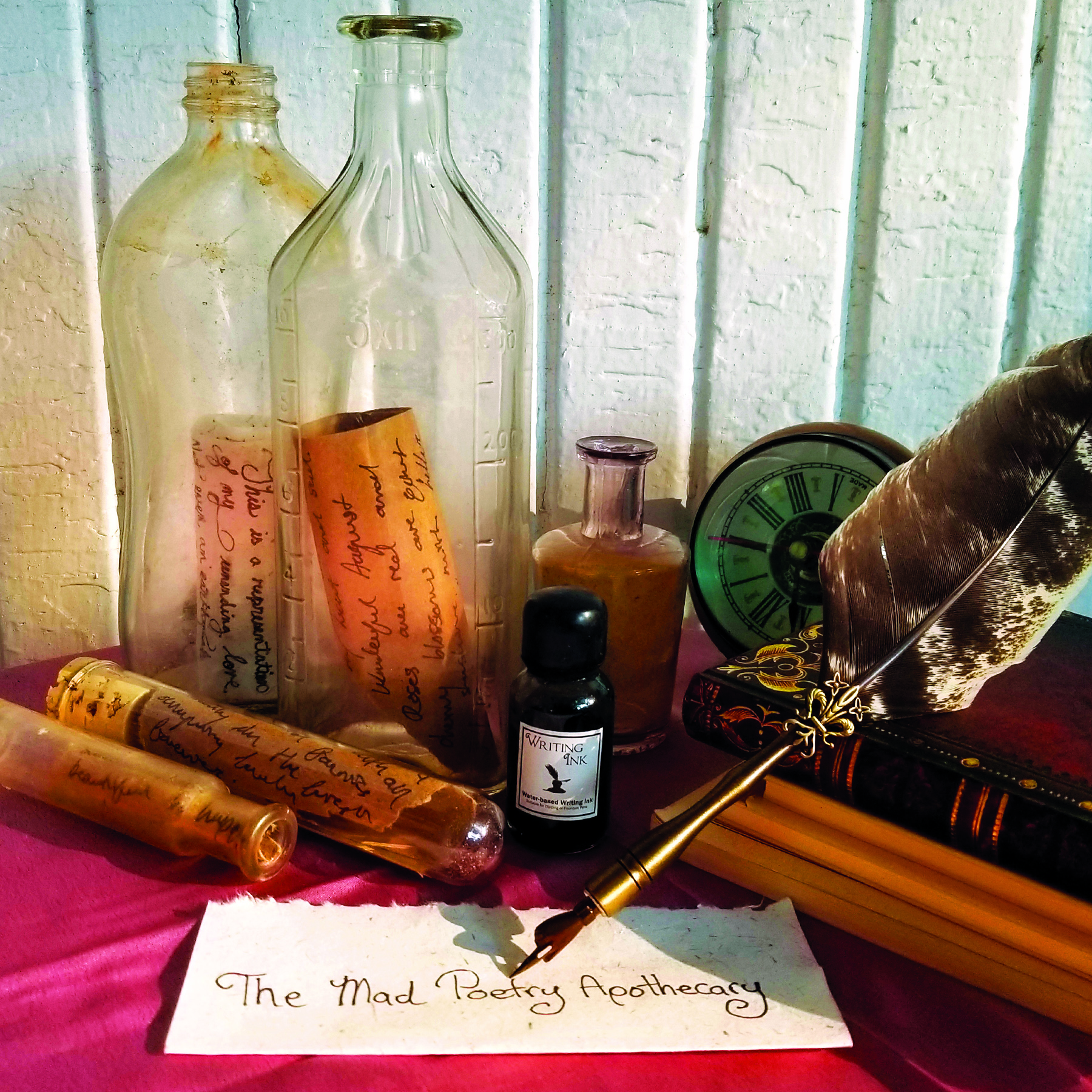
Creator: Hanan Hazime
GENRE: POETRY
TOPIC: ACTIVISM, ANXIETY, BI-POLAR DISORDER(S), BIPOC EXPERIENCE, COMMUNITY, DEPRESSION, DISABILITY, HARM REDUCTION, RACISM, SCHIZOPHRENIA, TRAUMA
TYPE: WORKSHOP
Join multidisciplinary artist and creative writer, Hanan Hazime, for an online poetry workshop and art installation. Instead of psychiatric medicine, participants of “The Mad Poetry Apothecary” will be prescribed creative prompts that encourage mental wellness. Participants will be guided through the creation of mixed-media poetry postcards and given the opportunity to virtually showcase their work. Those who would like to participate in the virtual art installation but cannot attend the online workshops have the option of submitting their poetry postcard via email. All levels of writing and artistic skills are welcome. Folks with lived experience of mental health and/or addiction issues are highly encouraged to contribute their voices to this project.
Click here to view the virtual Mad Poetry installation.
Hanan Hazime is a multidisciplinary artist, creative writer, community arts educator and writing instructor living in Tkaronto/Toronto. She also identifies as a Lebanese-Canadian Muslimah Feminist and Mad Pride Activist. Through her intersectional and interdisciplinary artwork, Hanan aims to push boundaries, question arbitrary binaries, dispel stigmas and shatter stereotypes. Her primary mission as an arts educator is to provide accessible arts education to marginalized communities with a special focus on crafting safe, empowered spaces for Muslims, individuals with mental health challenges, folks with disabilities and BIPOC youth to discover and enhance their writing and art skills.
Online Workshop on ZOOM
Two Dates Available
- Wed, Oct 21, 3 PM
- Sat, Oct 24, 6 PM
If you’d like to participate in the workshop over email, please click here to register.
ACCESSIBILITY
ASL interpretation or live transcription during this event is available by request; please contact justina_zatzman@workmanarts.com if you require these or other services to take part.
Self-Care Kits are available for free curbside pickup to ticket holders. Kits can be picked up from 651 Dufferin Street between the hours of 12PM-9PM, October 15-25. If pickup is not an accessible option for you, contact justina_zatzman@workmanarts.com for accommodation.
Hanan Hazime will be participating in the virtual panel discussion Literary Balms: the Healing Properties of Art and Text on October 19, at 4 PM. Click here to book a ticket.
ALSO OF INTEREST
THIS PROJECT IS PART OF THE RE:BUILDING RESILIENCE EXHIBITION.
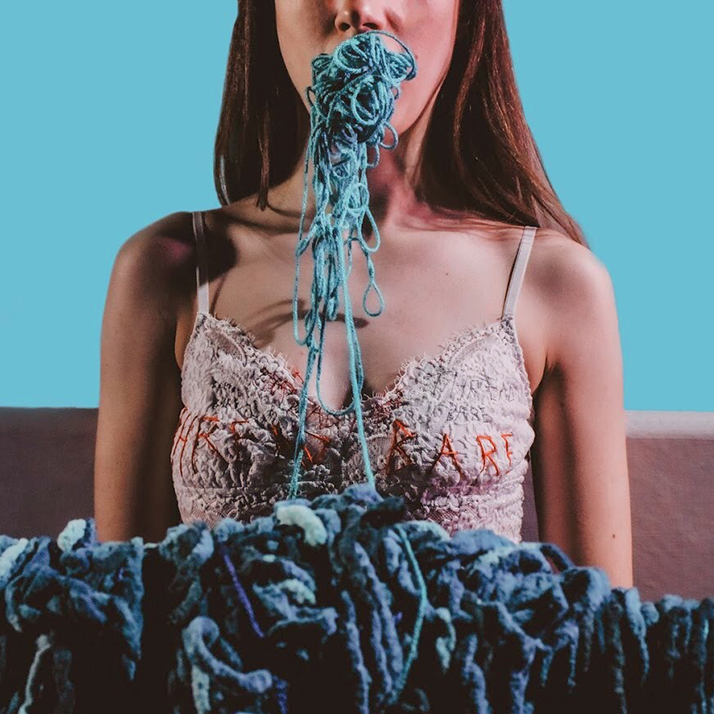
Co-Creator and Curator: Alexandra Caprara / Co-Creator: Raechel Kula
GENRE: INSTALLATION, INTERACTIVE, MULTIMEDIA, POETRY, VISUAL ART
TOPIC: COMMUNITY, SEXUAL VIOLENCE, TRAUMA
ThreadBare is an interactive textile installation that centers the voices of survivors of sexual and domestic violence and abuse. The piece features a collection of poetry and prose submitted by survivors, sewn into clothing and fabric and interwoven within the piece. Audiences are invited to observe and interact with the structure, which responds to movement using lighting and sound. This piece was created to elevate the stories and experiences of survivors through the repurposing of fabric and clothing and aims to foster conversation, reflection and a shared sense of solidarity and hope.
Alexandra Caprara is a multidisciplinary artist and writer from Toronto. She is a graduate from York University’s Theatre and Creative Writing programs and has worked internationally as a designer and director.
Raechel E. Kula is a multi-disciplinary artist with a background in software and information technology. She brings a systems approach to the dramaturgy and design of interactive and performative works for live audiences.
CONTENT WARNINGS
Rape and/or Sexual Violence
Images of the ThreadBare installation in Re:Building Resilience:
Photos by Henry Chang
Please Note: There is one virtual ticket available for the entire Re:Building Resilience Exhibition. Whether you’d like to see one project or all of them, you only need to book one ticket to access everything. The exhibition runs October 15-25, and all purchasers will be sent a link to view the virtual content. Any ticket bought prior to October 15 will receive a follow up email on the 15th with the link.
Join Alexandra Caprara and Raechel Kula on Tues, Oct 20 at 3PM for an Instagram Live event to interact in real-time as they walk you through their artwork and answer your questions. Follow @workmanartsto to get notified when we go live.
ACCESSIBILITY
ASL Interpreted, Active Listener
An Active Listener will be available Tues, Oct 20 from 3-5pm to support this program.
Your active listener for this program is Kat.
You can connect with Kat by phone (talk or text) at (647) 474-2338 or by email at katrissing@gmail.com.
Self-Care Kits are available for free curbside pickup to ticket holders. Kits can be picked up from 651 Dufferin Street between the hours of 12PM-9PM, October 15-25. If pickup is not an accessible option for you, contact justina_zatzman@workmanarts.com for accommodation.
Alexandra Caprara and Raechel Kula will be participating in the virtual panel discussion Literary Balms: the Healing Properties of Art and Text on October 19, at 4 PM. Click here to book a ticket.
ALSO OF INTEREST
- Available to stream online: Fri, Oct 16, 9 - 11 AM
- Available to stream online: Fri, Oct 16, 7 - 9 PM
- Virtual panel/Q&A: Fri, Oct 16, 10:30 AM; replayed after 7 PM screening
- Streaming of this film and virtual panel is available to viewers worldwide.
- ணினியில் பார்க்க: அக்டோபர் 16, காலை 9-11
- கணினியில் பார்க்க: அக்டோபர் 16, மாலை 7-9
- கணினி வழி கலந்துரையாடல்: அக்டோபர் 16, காலை 10:30; மீண்டும் பார்க்கலாம் அக்டோபர் 16, மாலை 7 மனி திரையிடலுக்கு பிறகு
Arun Karthick / 2020 / Tamil with English subtitles / India / Netherlands / Singapore / 78 min / Toronto Premiere
அருன் கார்த்திக் / 2020 / தமிழ், ஆங்கில துணை உரையுடன் / இந்தியா/ நெதர்லாந்து/ சிங்கபூர் / 78 நிமிடம் / டொரோன்டொ முதல் வெளியீடு
GENRE: FICTION
TYPE: FILM
“இஸ்லாத்திற்க்கு எதிராக வளர்ந்துவரும் உச்சகட்ட வெறுப்பினூடே, இஸ்லாம் மத்த்தை பேணுவோர் அனைவரும் வெரும் ஒரு புல்ளிவிவரமாக, முகமற்ற தொடர்ந்து தாக்கப்படும் சனக்கூட்டமாக ஆக்கப்பட்டுள்ள காலத்தில், ஒரு மனுசனின் தனித்துவத்தை ஆணித்தரமாக வலியுறுத்துகிறார் கார்த்திக். படத்தின் அதீத அழகு அதனுள் எந்தவித பெரிய நாடகமோ, உரத்த பிரகடனமோ இல்லாததுதான். ஒரு காமிரா நாசிரை (குமரன் வளவன்) அவரது தினசரி வாழ்வில் பிந்தொடர்கிறது, அவ்வளவே. அவர் துணிக்கடையில் வேலைக்கு செல்கிறார், மனைவியை காதலிக்கிறார், உடன் பணிபுரிபவரை தமது கவித்திறனால் கவர்கிறார், சீடு பணம் பற்றியும், தன்னை நம்பியுள்ள மாற்றுதிறனாளி உறவினர் ஆன ஒருவரை மற்றி கவலைப் படுகிறார். - பாரதி சிகாரவேல், தி ந்யூஸ் மினிட்
In these times of heightened Islamophobia, when Muslims are reduced to statistics, to just a faceless community under siege, Karthick is determined to re-establish the individual’s singularity. The film stuns because there is no drama, no strident declarations. There’s just a camera following Nasir (Koumarane Valavane) around as he gets through his day as a salesman in a sari shop. He romances his wife, holds his co-workers spellbound with his poetry, worries about chit-funds and a young relative with disabilities who is dependent on him."
– பாரதி சிகாரவேல், தி ந்யூஸ் மினிட் Bharathy Singaravel, The News Minute
முதல்முறையாக படம் இயக்கி உள்ள அருன் கார்த்திக் திலிப் குமாரின் கதை ஒன்றினை மூலமாக கொண்டு உணர்வுபூர்வமான படம் எடுத்துள்ளார். தமிழகத்திலுள்ள கோயம்புத்தூரில் வாழும் நாசிர் என்னும் இஸ்லாத்தை பேணும் குடும்பஸ்த்தரின் கதைதான் இந்த படம். கோவை மாவட்டத்தில் பரவி வரும் இந்து மத அடிப்படை வாதத்தின் கோர குரல் ஒளிபெருக்கிகளில் தொடர்ந்து ஒளிக்கின்றன. நாசிர் வேலை செய்யும் துணிக்கடையின் முதலாளி முஸ்லீம்களின் மேல் கொண்ட வெறுப்பினை தொடர்ந்து வேளிப்படுத்துகிறார். கடைக்கு வரும் வாடிக்கையாளர்கள் நாசிரை துச்சமாய் எண்ணி மதிப்பின்றி நடத்துகின்றனர். இதில் நாசிருக்கு வீட்டு கவலைகள் எழும்பி அவர் அபு தாபி சென்று உழைத்துச் சம்பாதிப்பதை பற்றி யோசிக்கிறார். நகரத்தின் பரபரப்பினூடே அமைதியான சாதாரனமான நாசிரின் தின்சரி யதார்த்தங்ககளை இயக்குனர் கார்த்திக் உயிரோட்டத்துடன் நம்முன் கொண்டு வருகிறார். அதே சமயம் நாசிரை சுற்றி புறளும் செய்திகளும் ஆங்காங்கே நடக்கும் உரையாடல்கள் இவ்யதார்த்ததின் ஓரங்களில் பதுங்கியிருக்கும் வன்முறையை நினைவுபடுத்துகிறது.
This gentle portrait from sophomore feature filmmaker Arun Karthick is based on a short story by Dilip Kumar. It follows Nasir, a Muslim family man in Coimbatore, Tamil Nadu, where Hindu nationalism has taken on more dangerous forms in recent years. Propaganda constantly booms from loudspeakers everywhere in public spaces. The owner at the textile store where he works makes little effort to hide his contempt for Muslims while customers treat Nasir as a doormat. In the meantime, Nasir starts worrying about his wife and wonders whether he would be better off as a migrant labourer in Abu Dhabi. With equanimous, stunning images of everyday life, Director Karthick brings us fully into Nasir’s prosaic world Still, off-screen news reports and casual conversations remind us of the violence that hangs in the peripheries.
ACCESSIBILITY
ASL Interpreted, Open Captions, Active Listener
An Active Listener will be available to support this program.
Your active listener for this program is Amanda.
You can connect with Amanda by phone (talk or text) at (647) 696-0893 or by email at amanda.virtualdesk@gmail.com.
CO-PRESENTED WITH
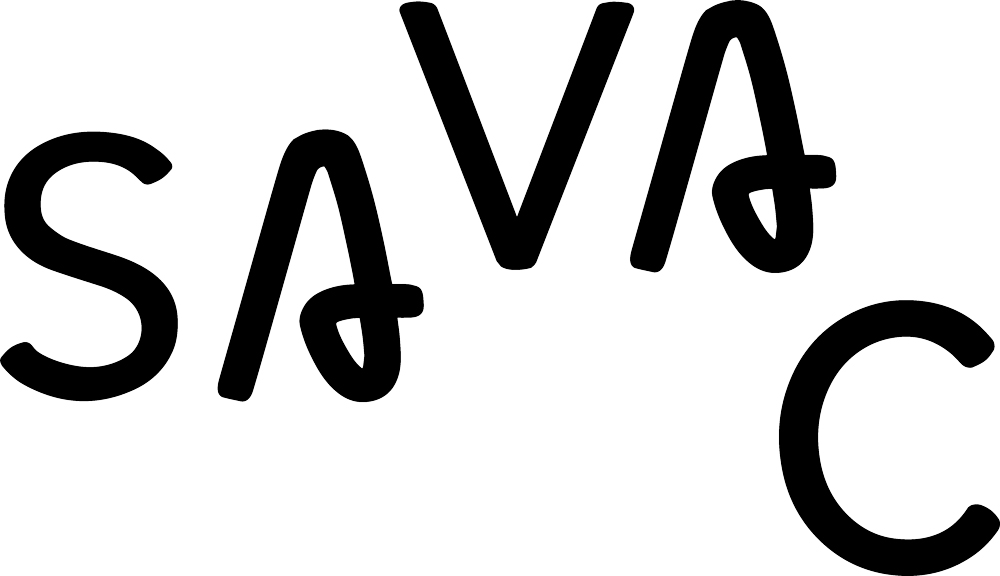
TAMIL WORLD INITIATIVE
JOIN THE CONVERSATION
Panelists for this film, in conversation with Director Arun Karthick, will address issues of art-making during the context of Right wing Hindu fundamentalism, Islamophobia and casteism in the Tamil speaking world. Panel in Tamil and English with translation.
நாசிர், கலந்துரையாடலில் சேருங்கள்
கருத்து முன்வைக்கும் நபர்கள் இயக்குனர் அருன் கார்த்திகுடன் கலந்துரையாடுவர். இதில், இந்து மதவாதம், சாதி வெரி, இஸ்லாத்தை வெறுத்தல் அகிய உண்மைகள் நம்மை சூழ்ந்துள்ள இக்காலத்தில், தமிழ்ச் சூழளில் கலை உருவாக்கம் பற்றி பேசுவர். கலந்துரையாடல் தமிழ் ஆங்கிலம் இரண்டிலும் மொழிபேயர்ப்புடன் நடைபேரும்.
ALSO OF INTEREST
- Available to stream online: Mon, Oct 19, 8:45pm to Thu, Oct 22, 8:45pm
- Virtual Q&A: Thu, Oct 22, 5pm
Streaming of this film is only available to viewers in Ontario, Canada. Virtual Q&A is available worldwide.
Martine Deyres / 2019 / French with English subtitles / France / Switzerland / Belgium / 77 min / Toronto Premiere
Martine Deyres / 2019 / français-sous-titres anglais / France / Suisse / Belgique / 77 min / Première torontoise
GENRE: DOCUMENTARY
TOPIC: TRAUMA
TYPE: FILM
La version française suvira.
In the Saint-Alban psychiatric clinic in France’s Lozère region, they didn’t use straightjackets, solitary confinement or other forms of coercion. Patients moved freely, received ergonomic therapy, worked at a nearby farm and even went on trips with supervisors. During World War II, the institute also housed refugees, including many Jews.
Weaving recently discovered archival materials with current interviews, this captivating documentary presents the instigators of such unconventional approaches between 1936 and the mid-1970s: Spanish Dr. Tosquelles, a communist persecuted by Franco, and his colleague Lucien Bonaffé, both pioneers of ‘institutional psychology’. They emphasized social and cultural activities that supported patients in different ways – a fruitful approach that has since fallen out of favour, but which was also a source of inspiration for surrealists like Paul Éluard, Art Brut pioneer Jean Dubuffet and trailblazer of de-colonisation theories, Frantz Fanon. Although over 45,000 psychiatric patients died in French hospitals between 1939-1945; Les heures heureuses is a testament and urgent appeal to apply courageousness and inventiveness in today’s mental health healing spaces.
A l’hôpital psychiatrique de Saint-Alban dans le département de la Lozère en France, il n’y avait pas de camisole de force, pas d’enfermement solitaire ni d’autres formes d’oppression. Les patients se déplaçaient librement, bénéficiaient d’une thérapie ergonomique, travaillaient dans une ferme avoisinante et faisaient même des excursions avec leurs soignants. Pendant la Seconde Guerre mondiale, l’institution avait abrité des réfugiés parmi lesquels de nombreux juifs.
Conjuguant des archives récemment retrouvées avec des entrevues actuelles, ce documentaire passionnant s’intéresse aux novateurs de ces démarches atypiques entre 1936 et le milieu des années 70 : le docteur espagnol Tosquelles, communiste persécuté par Franco, et son collègue Lucien Bonaffé, tous deux des pionniers de « la psychologie institutionnelle ». Ils mettaient en valeur les activités sociales et culturelles qui aidaient leurs patients de diverses manières – une démarche bénéfique qui a été mise de côté depuis mais qui fut aussi une source d’inspiration pour les surréalistes comme Paul Éluard ou pour le pionnier de l’Art Brut Jean Dubuffet ou encore pour l’initiateur des théories de la décolonisation Franz Fanon. Bien que plus de 45,000 internés soient morts dans les hôpitaux psychiatriques français entre 1936 et 1945, Les heures heureuses s’érige en témoignage et constitue un appel urgent au courage et à la créativité dans les lieux actuels de thérapie de santé mentale.
Screening with
Les Voix du dedans
Elina Chared | 2019 | France | French with English subtitles | 25 mins
Elina Chared/2019/France/Français-sous-titres anglais/25 min
A portrait film of a woman who fights to exist in tandem with her gift for hearing voices. In a cinematic verité glimpse of daily life, somewhere between suffering, optimism and recovery. Marieanne intimately conveys how she continually re-creates, performs and sometimes loses faith.
Un film portrait d’une femme qui lutte pour vivre en tandem avec sa faculté d’entendre des voix. Dans cet aperçu du genre cinéma vérité de sa vie quotidienne, quelque part entre souffrance, optimisme et reconstruction, Marianne explique en détails comment, continuellement, elle se réinvente, agit et quelque fois perd confiance
ACCESSIBILITY
ASL Interpreted, Open Captions, Active Listener
An Active Listener will be available Thu, Oct 22 from 5-7pm to support this program.
Your active listener for this program is Kat.
You can connect with Kat by phone (talk or text) at (647) 474-2338 or by email at katrissing@gmail.com.
CO-PRESENTED WITH
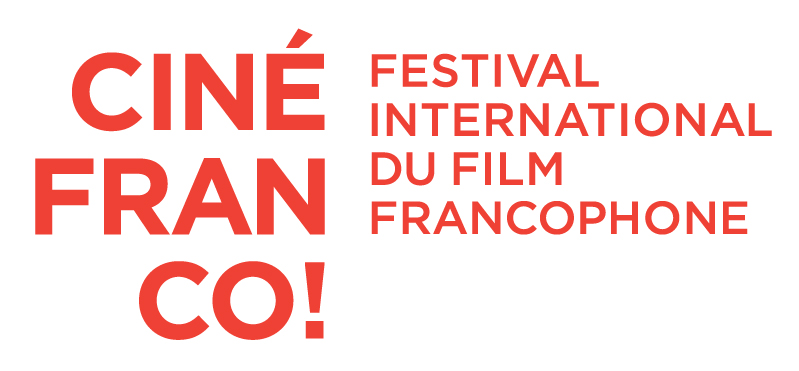
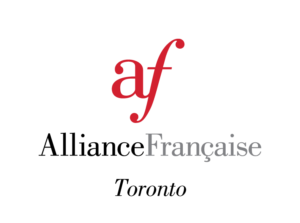
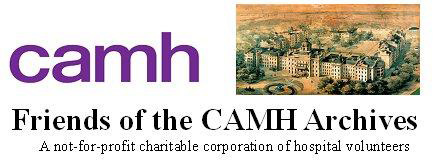
JOIN THE CONVERSATION: Q&A with Director Martine Deyres, moderated by Cinefranco's Artist and Executive Director Marcelle Lean
JOIGNEZ-VOUS À LA CONVERSATION: Questions/Réponses avec la réalisatrice Martine Deyres et Marcelle Lean, Directrice artistique générale de Cinéfranco, comme animatrice.
Following the screening of Les heures heureuses, join filmmaker Martine Deyres to discuss her latest film and her remarkable use of archival material to tell the story of the French psychiatric institution Saint-Alban.
Après avoir visionné le film Les heures heureuses, retrouvez la documentariste Martine Deyres pour discuter de son dernier film et de son remarquable travail d’archives qui racontent l’histoire de l’hôpital psychiatrique français de Saint-Alban.
